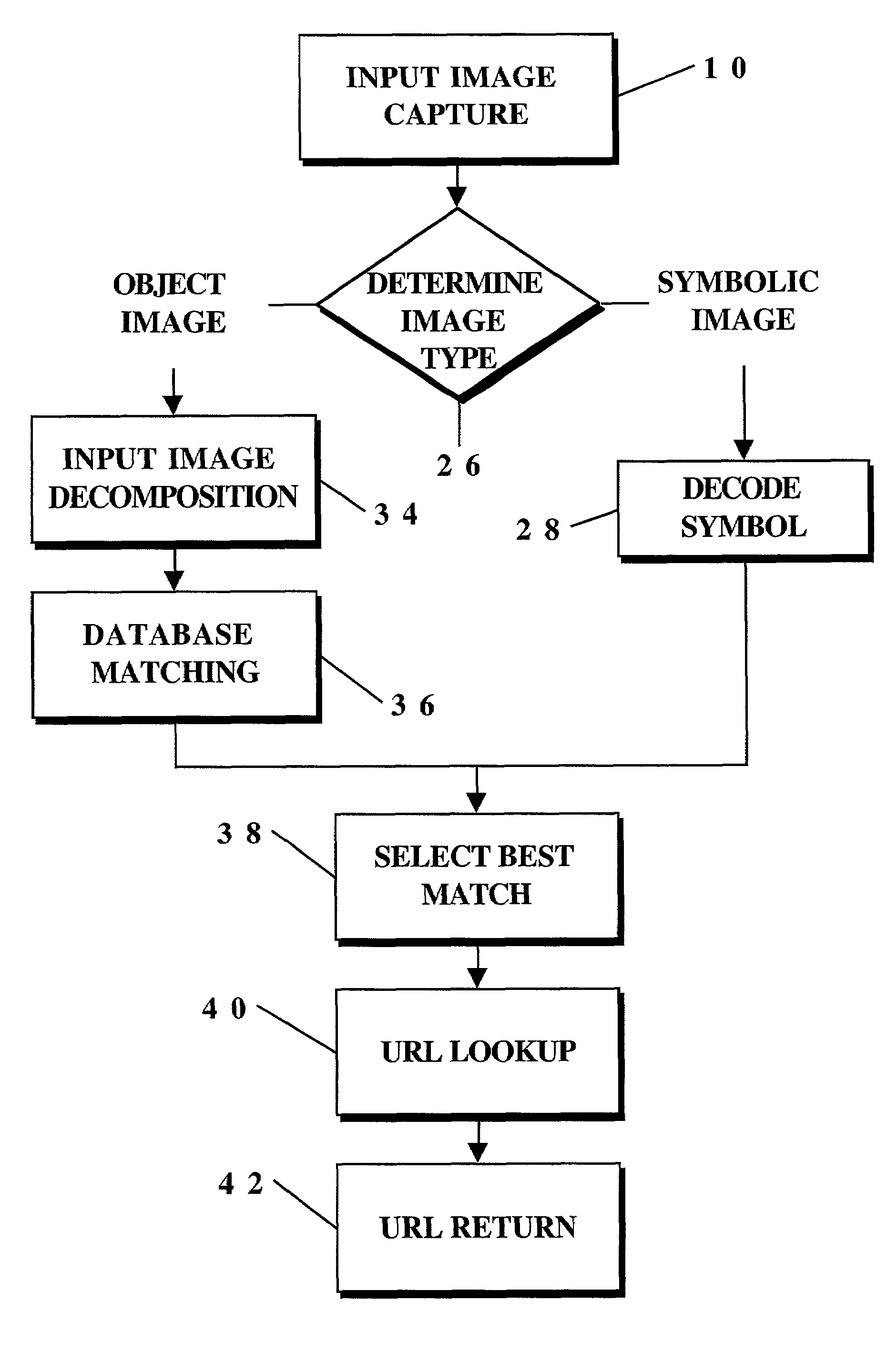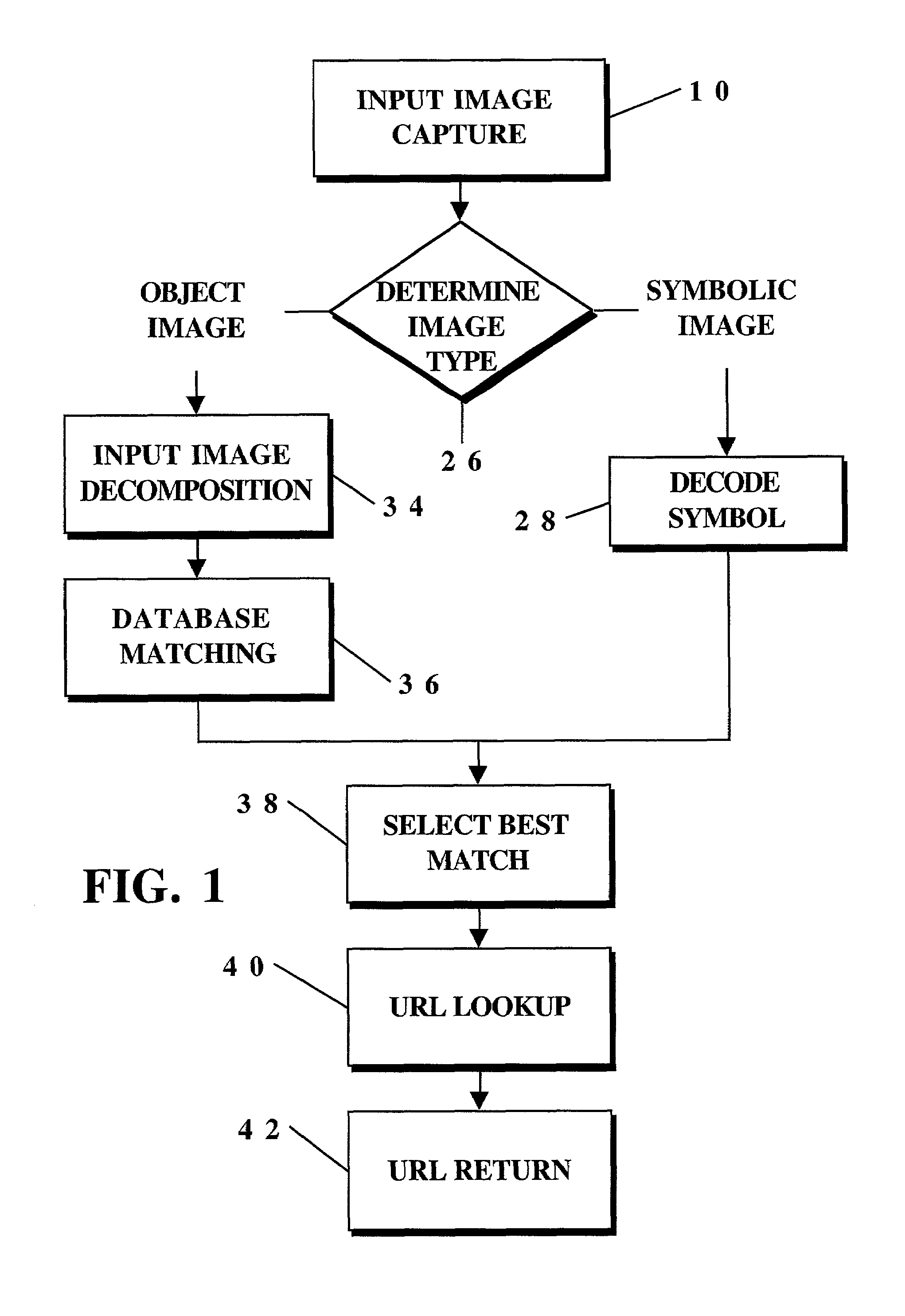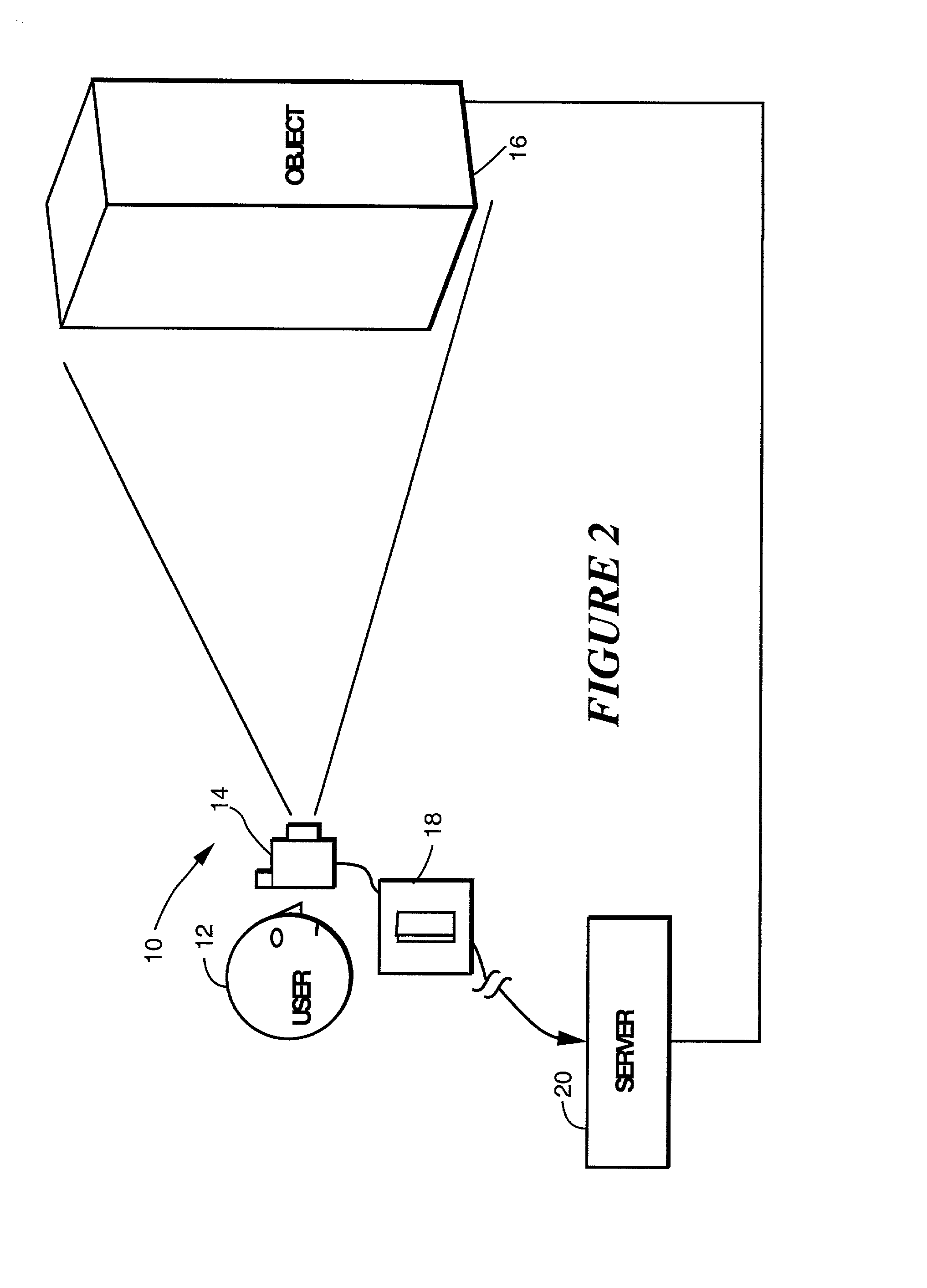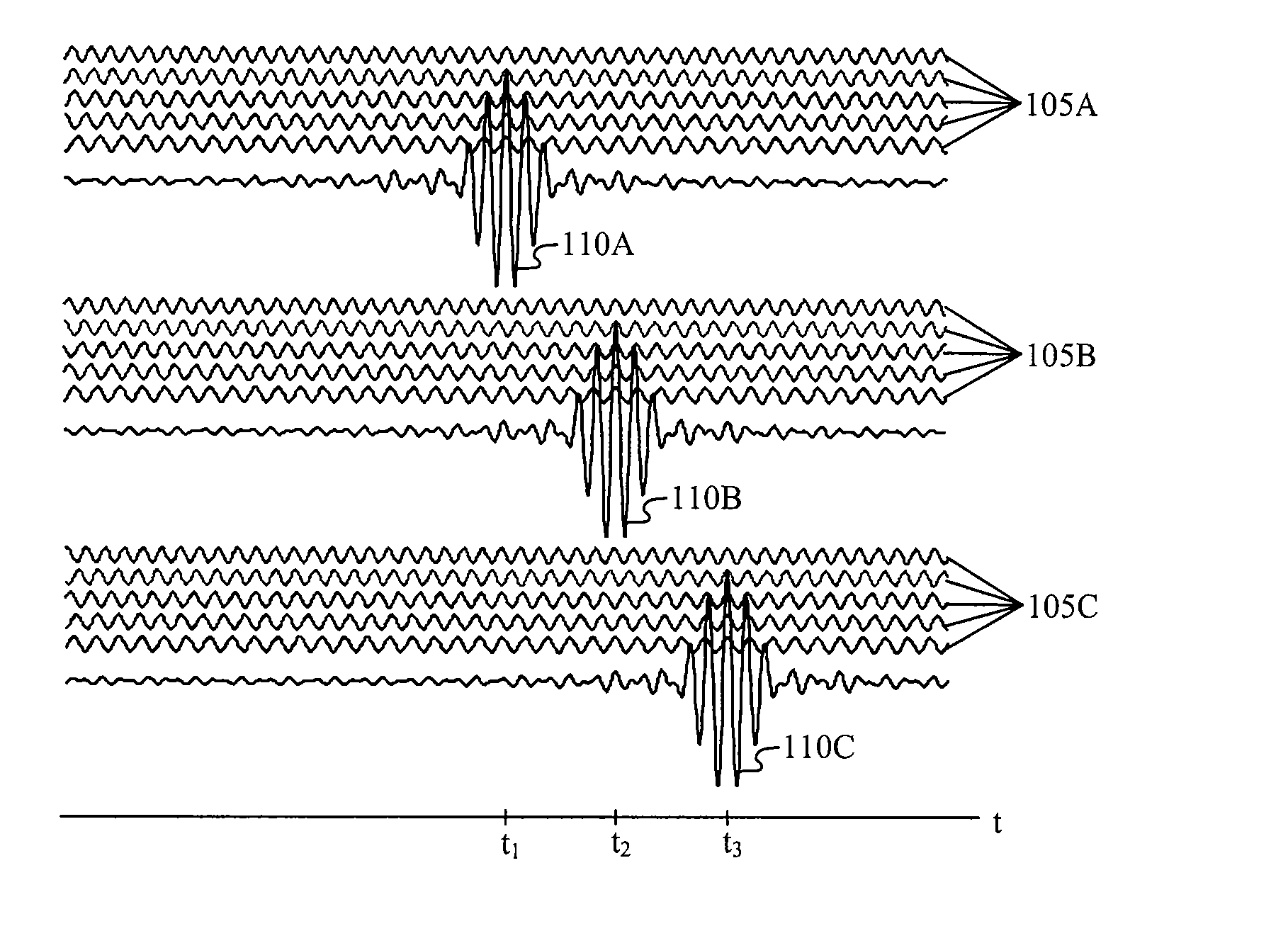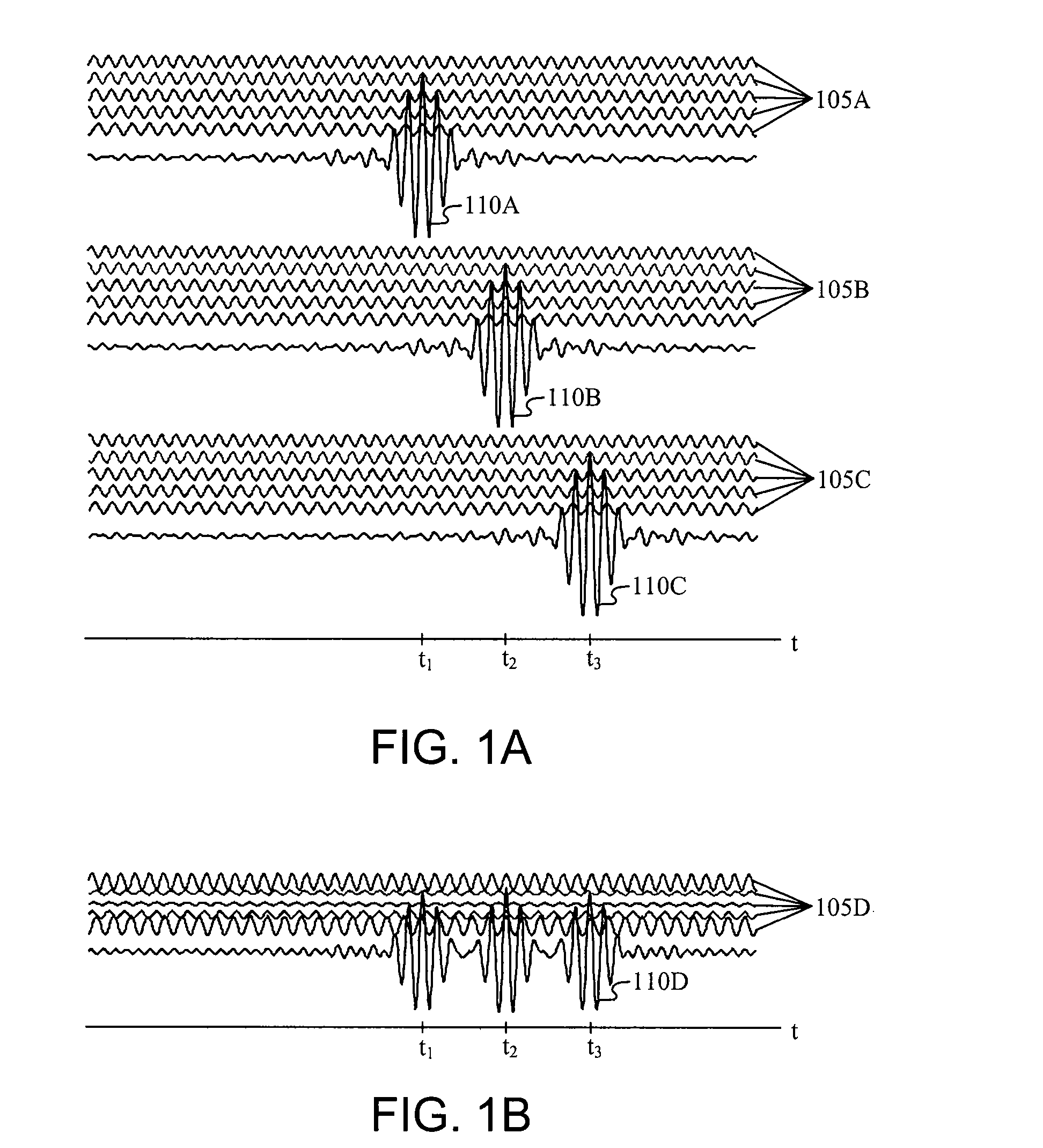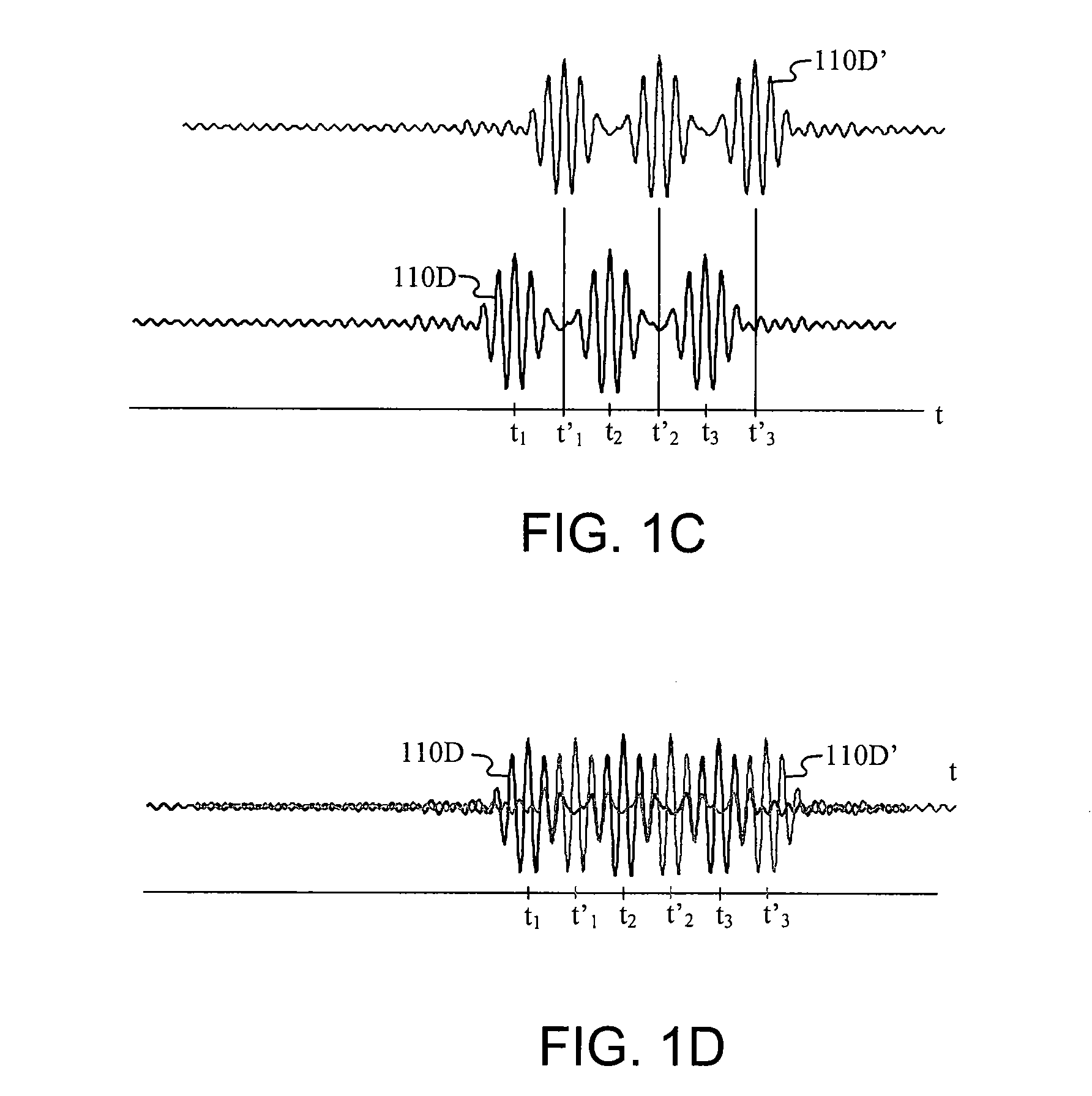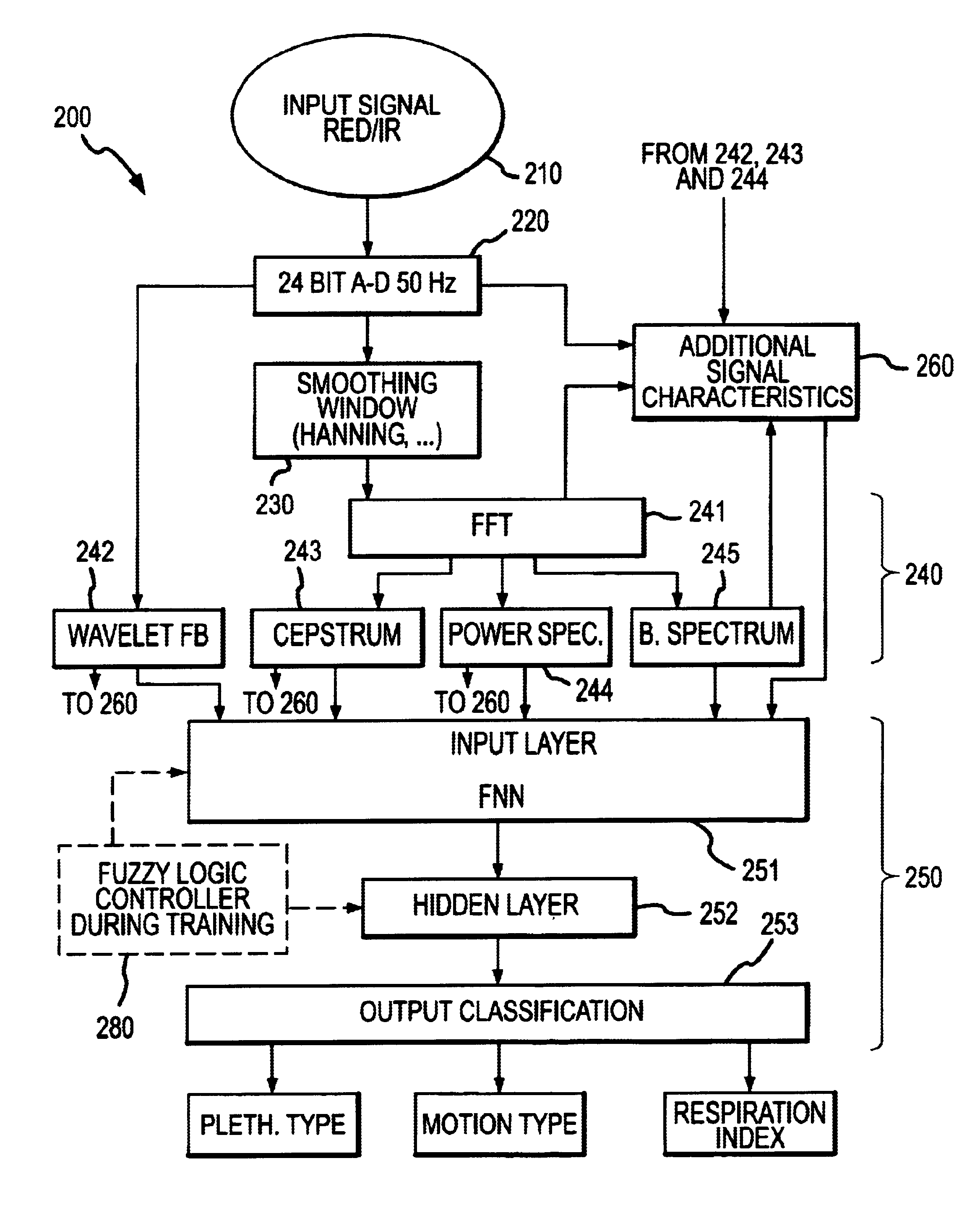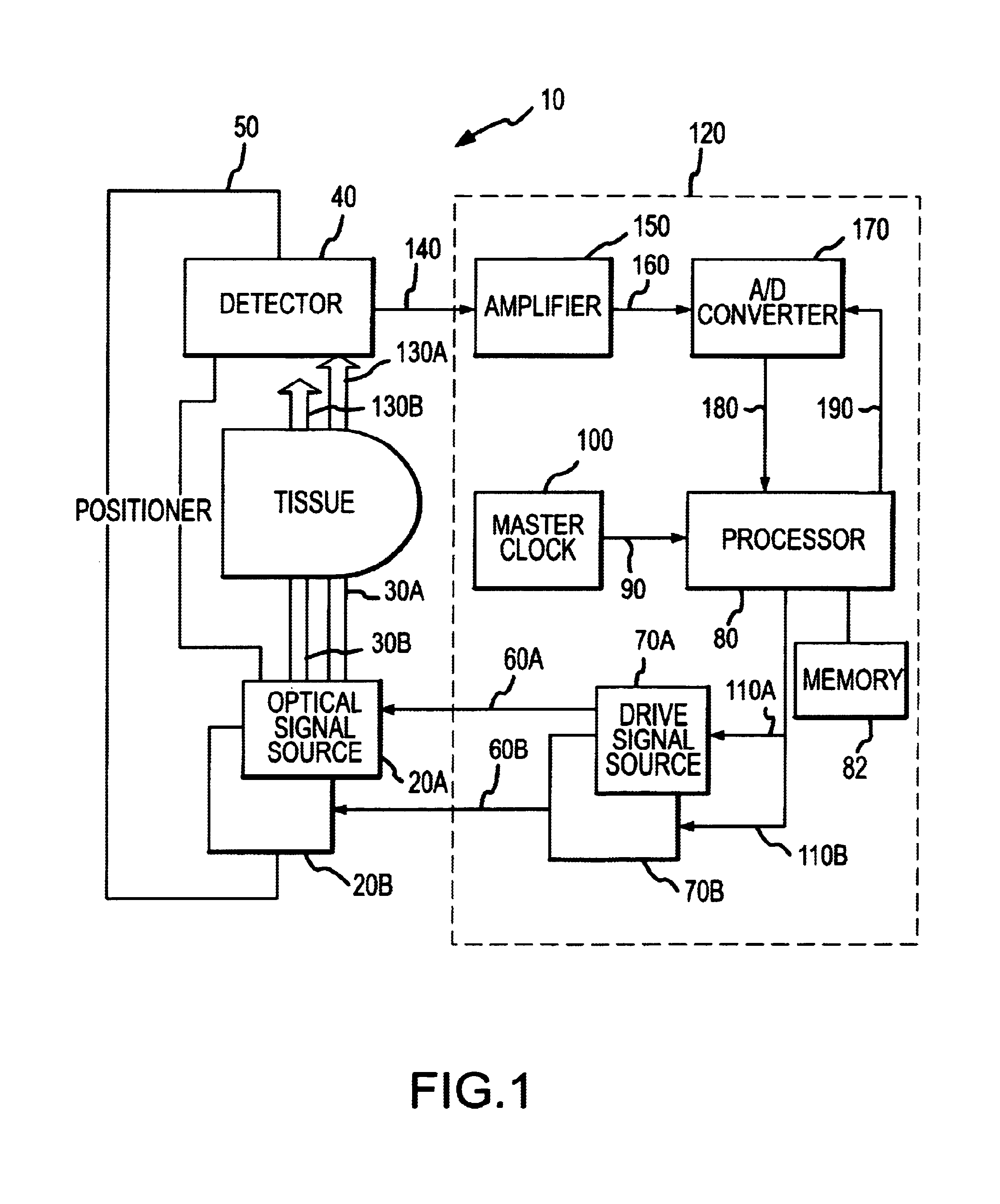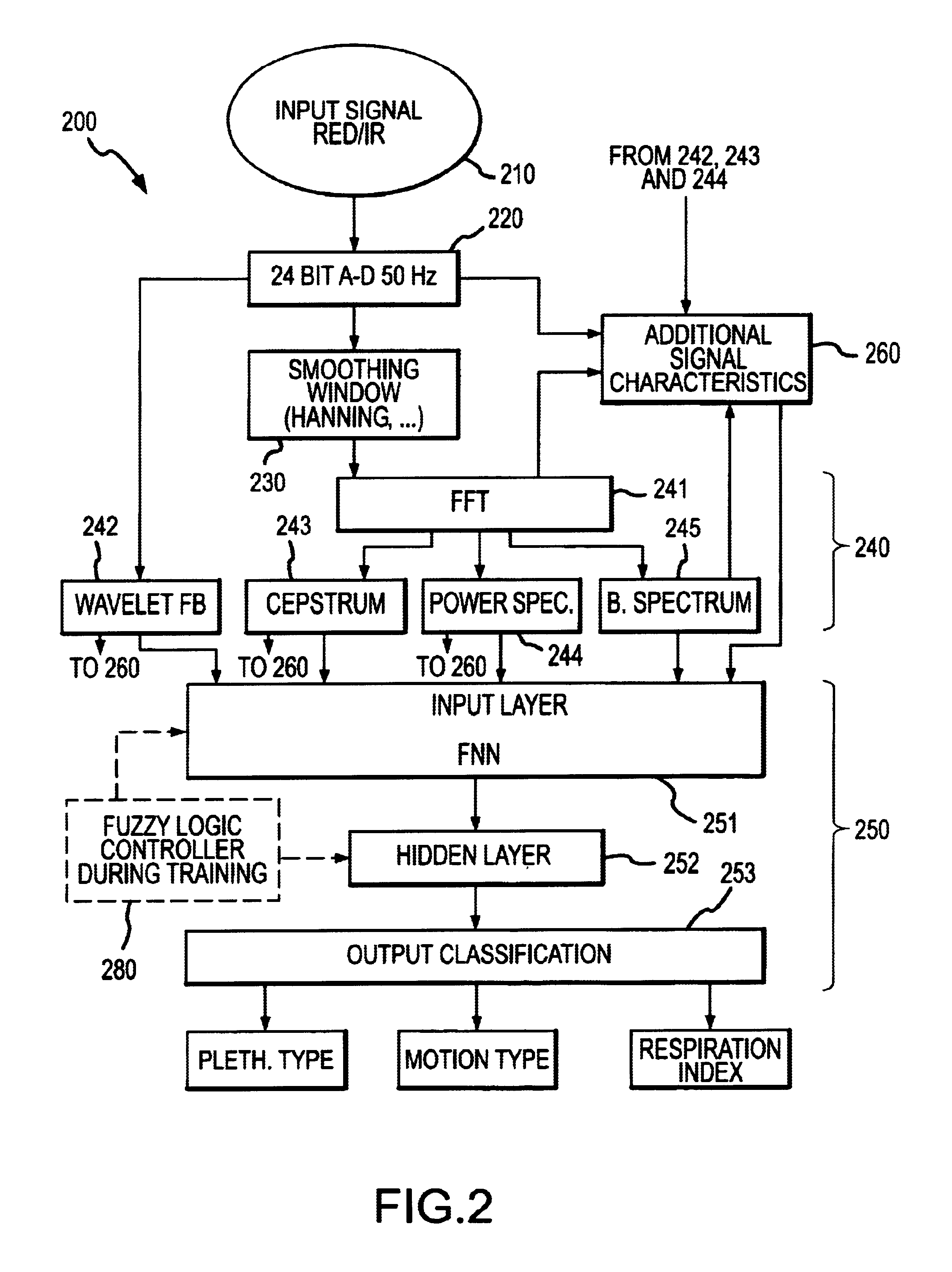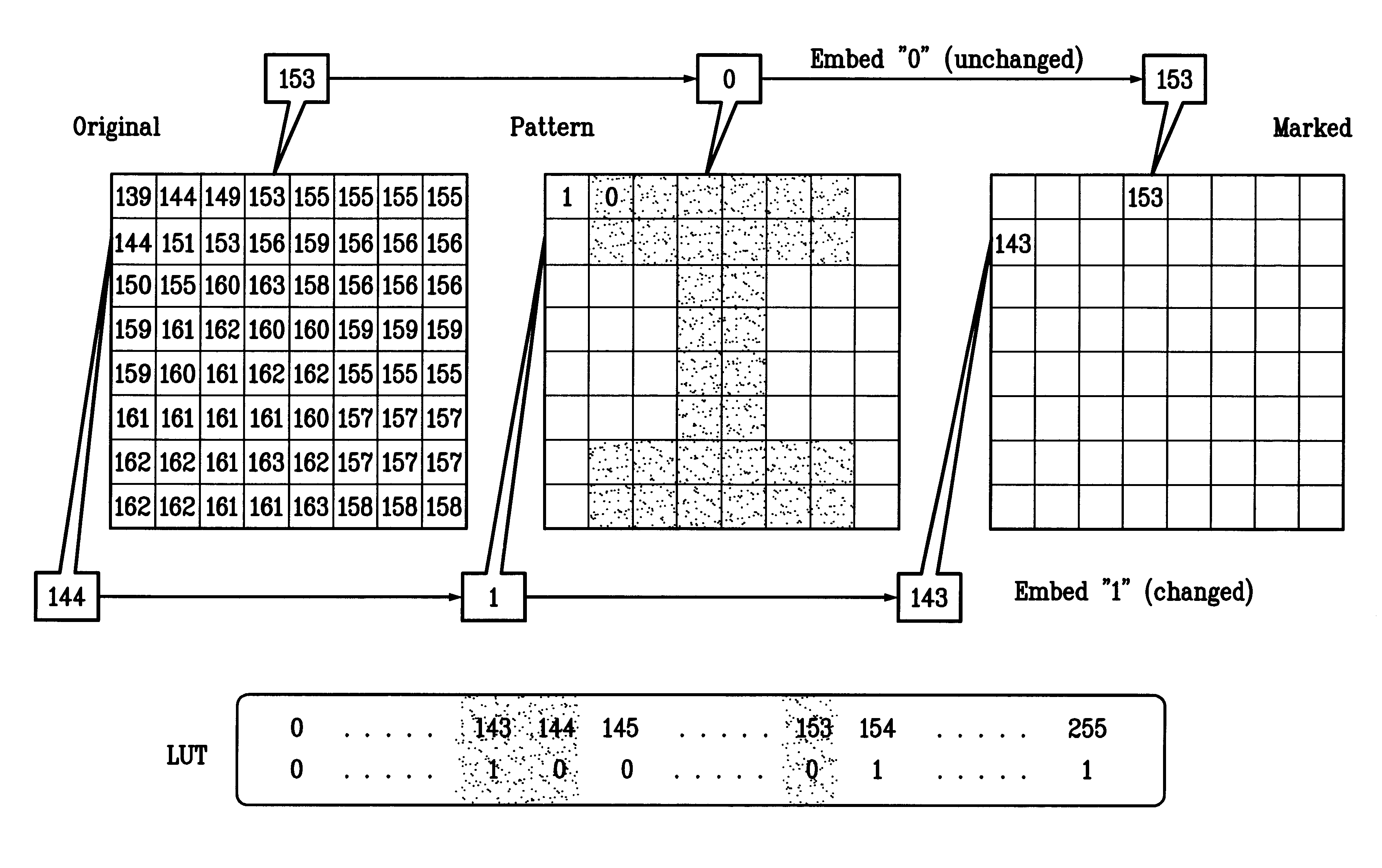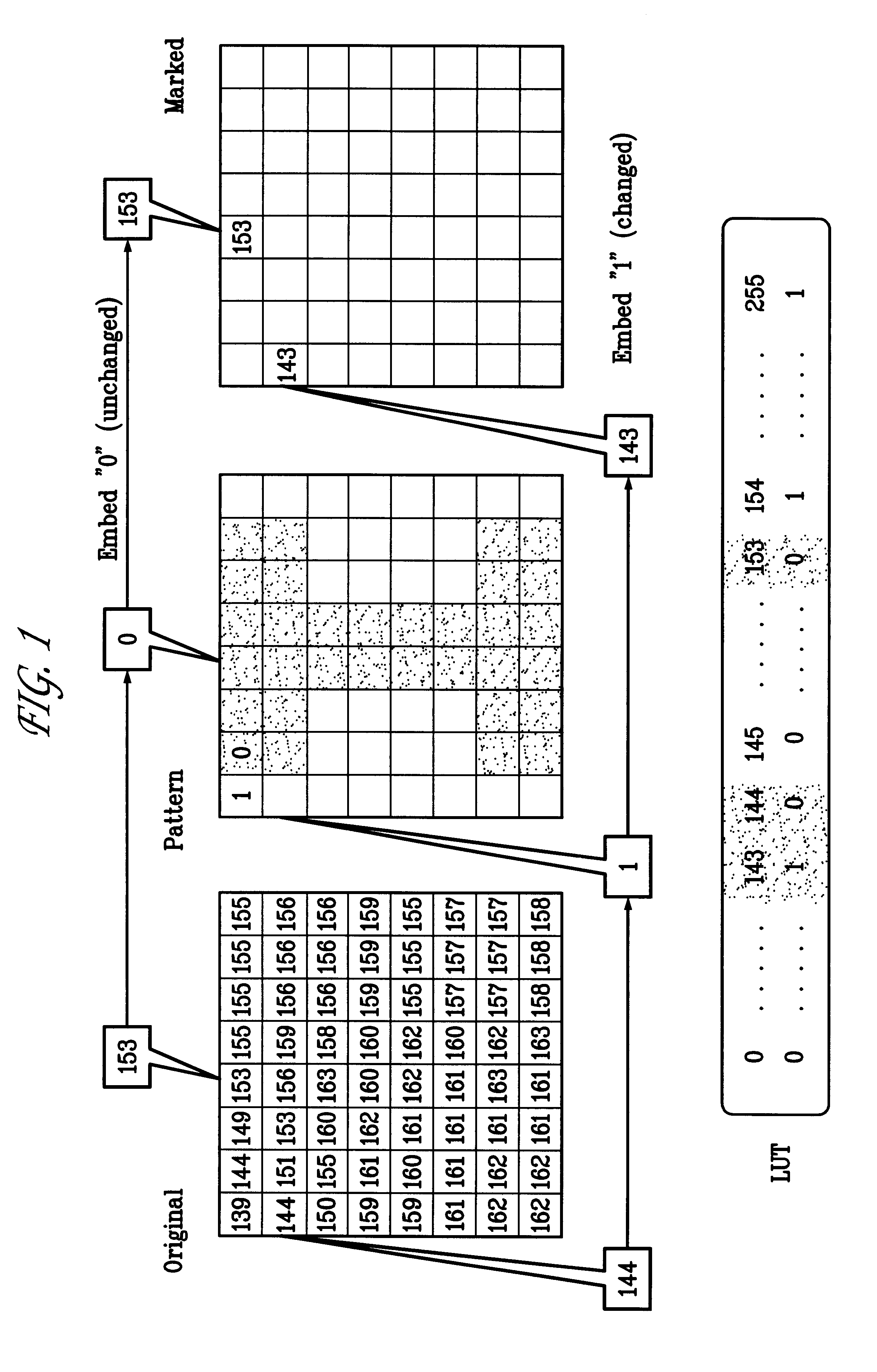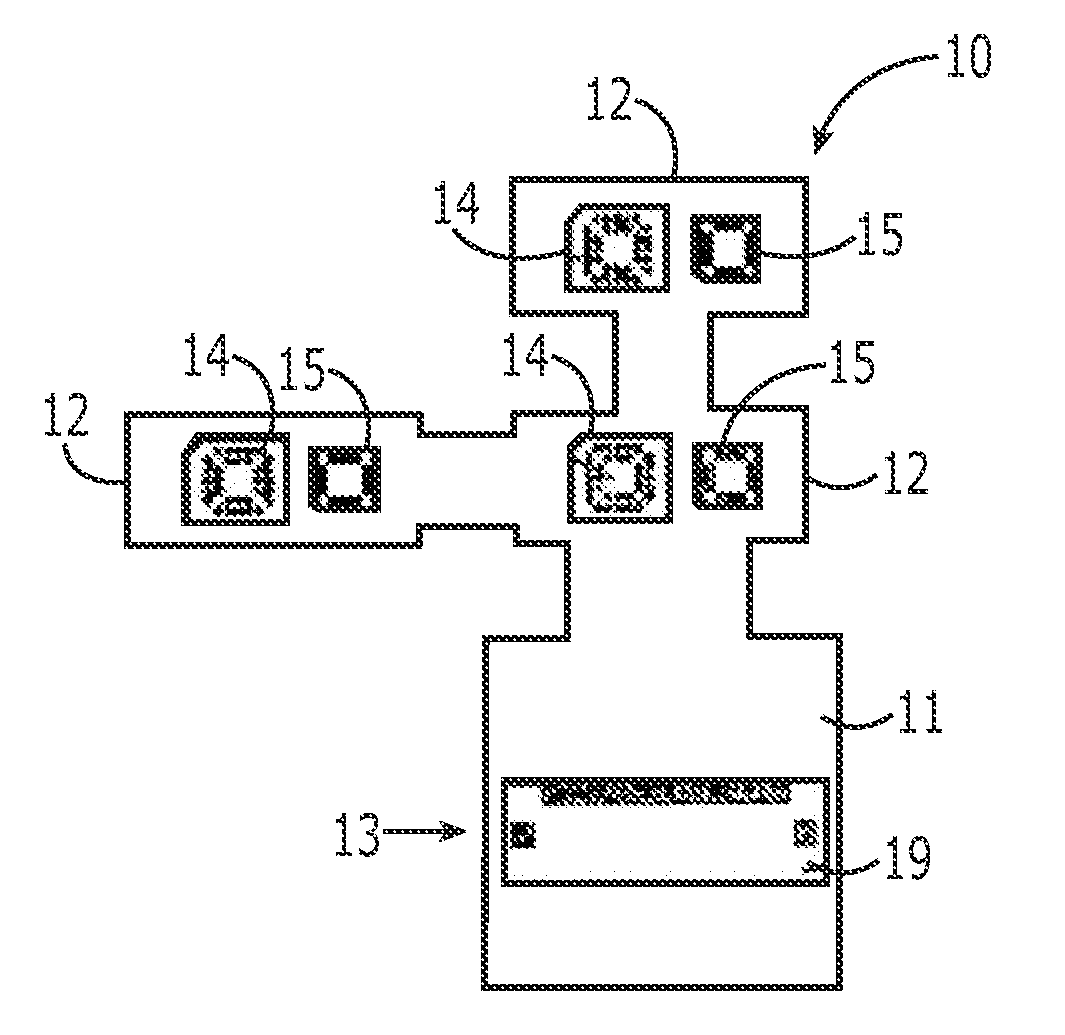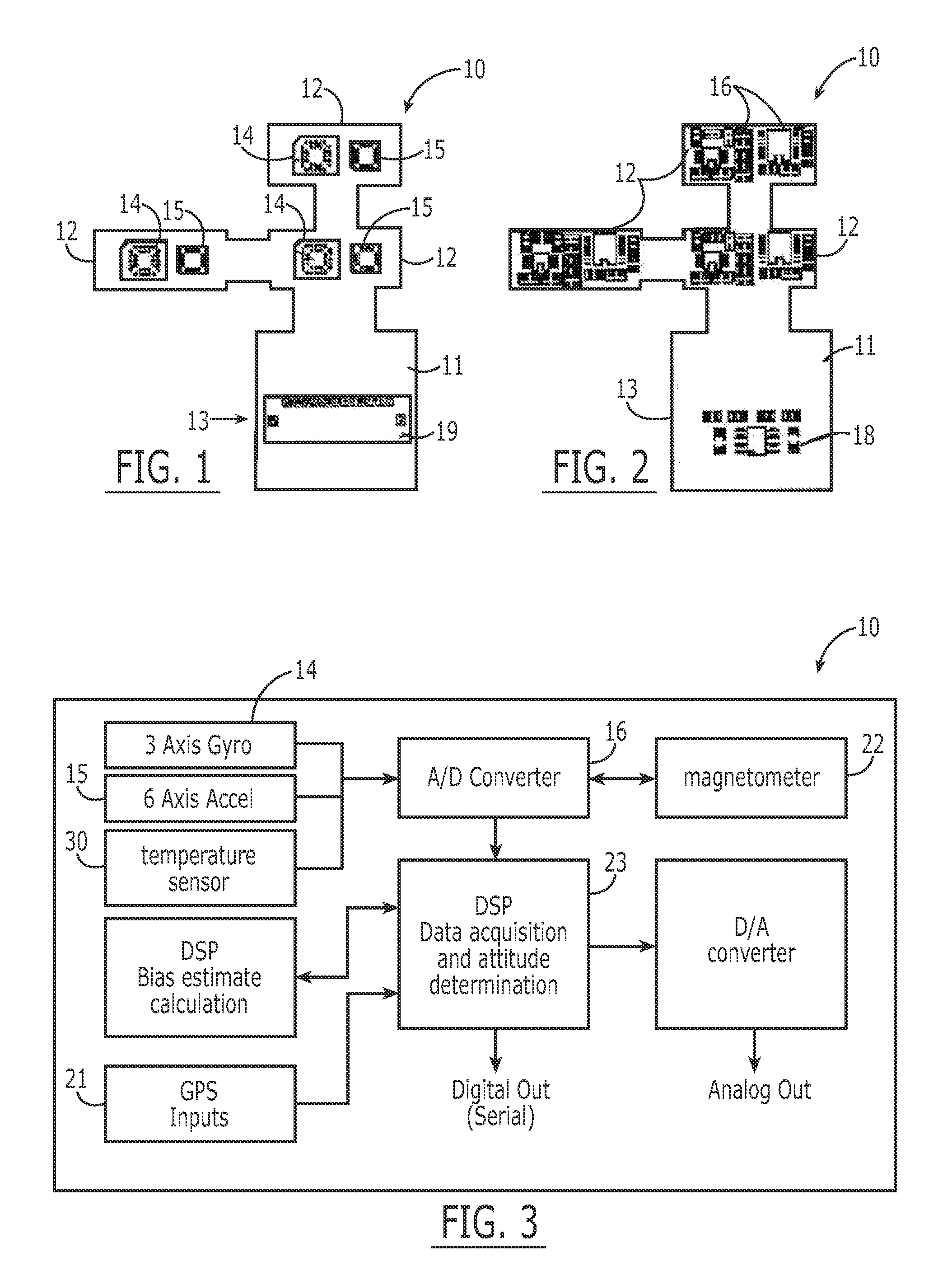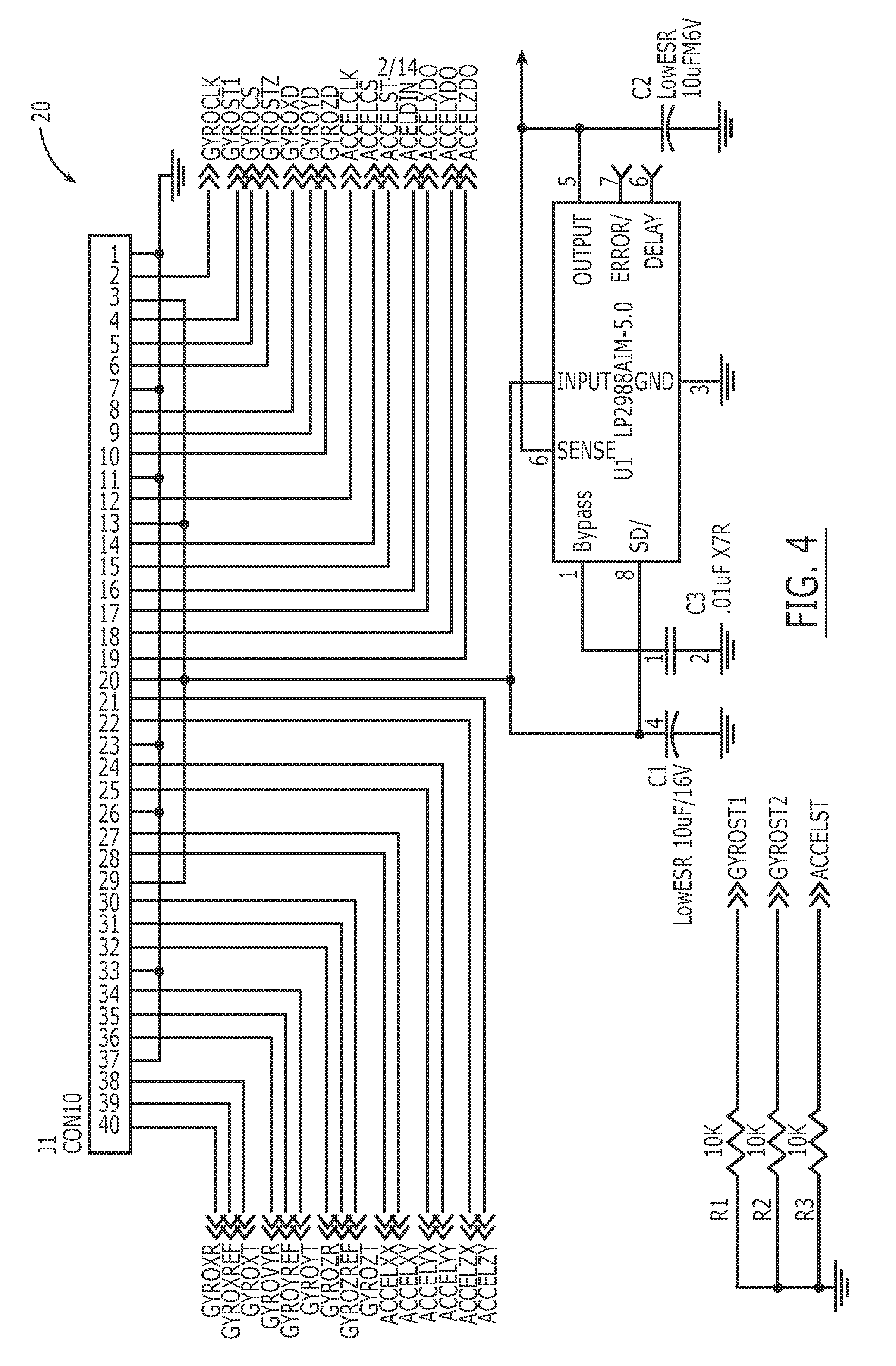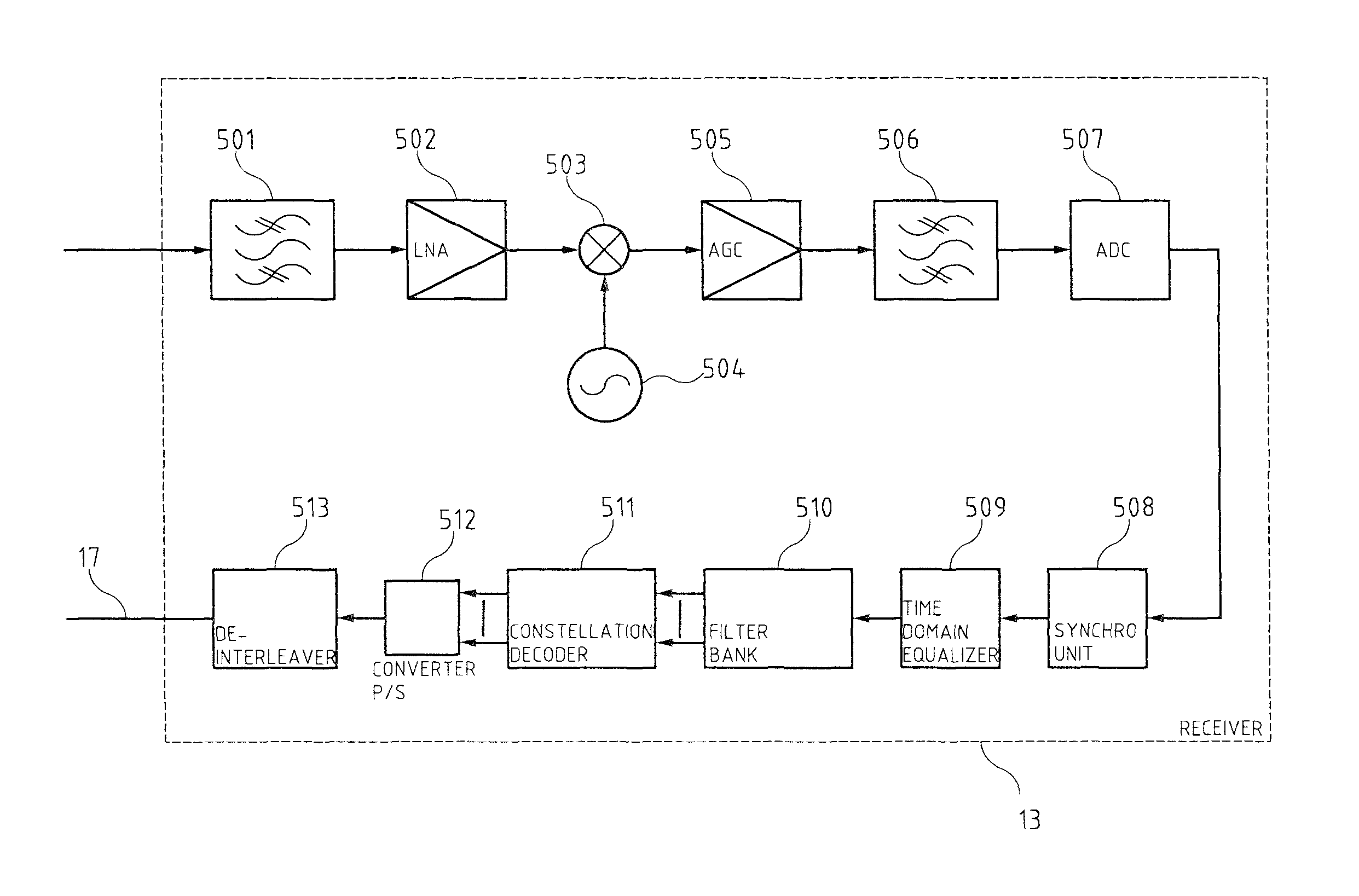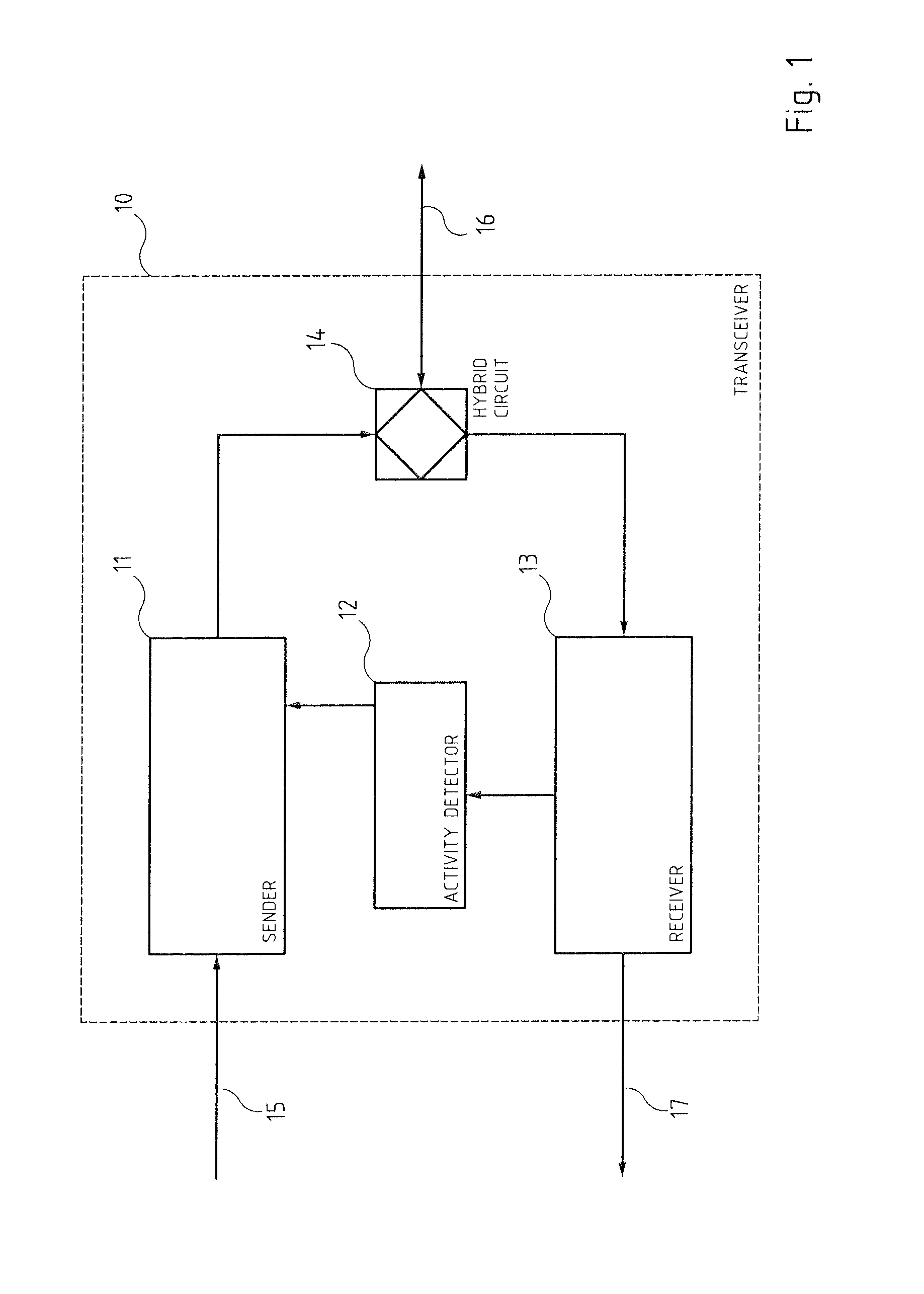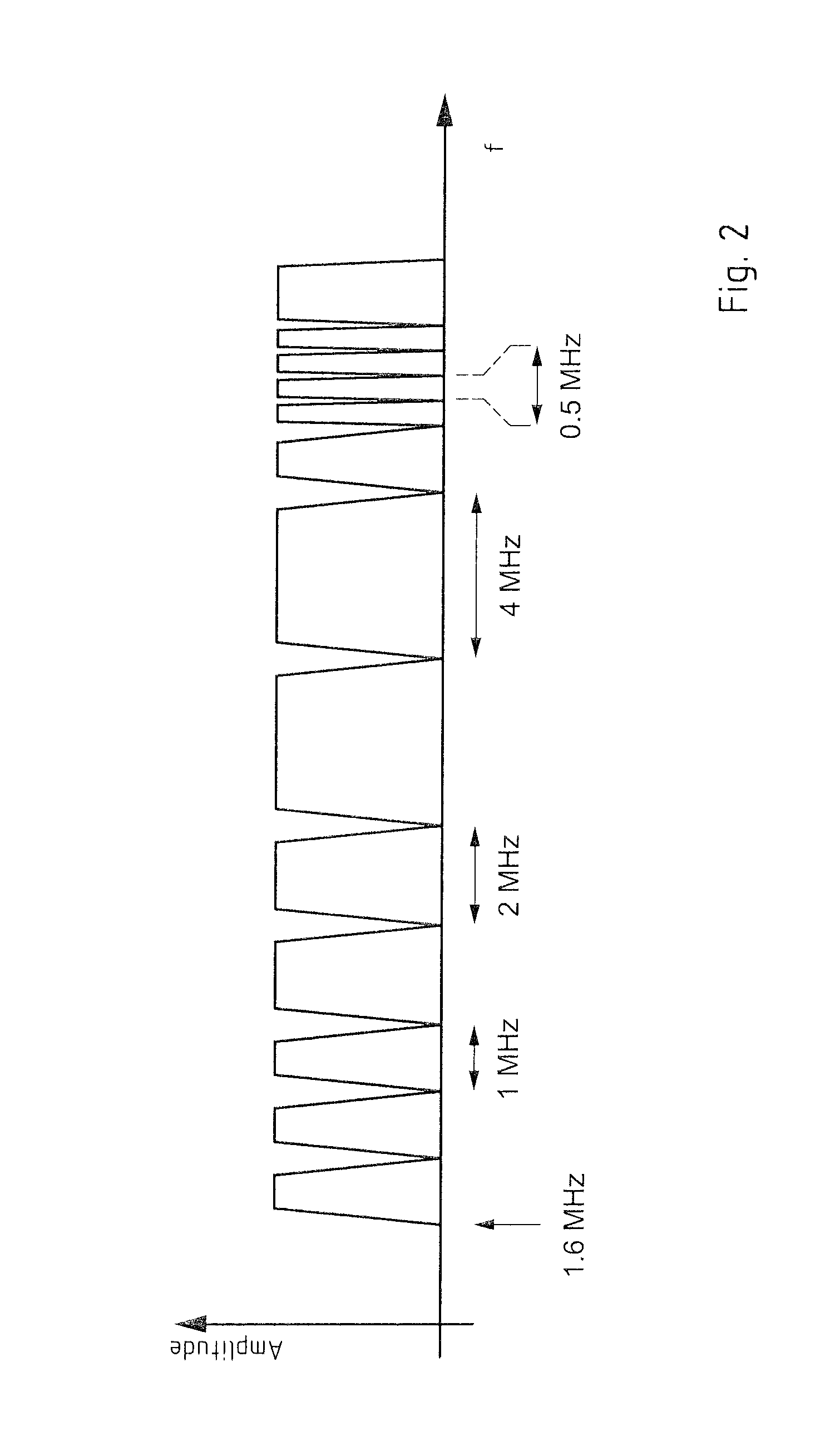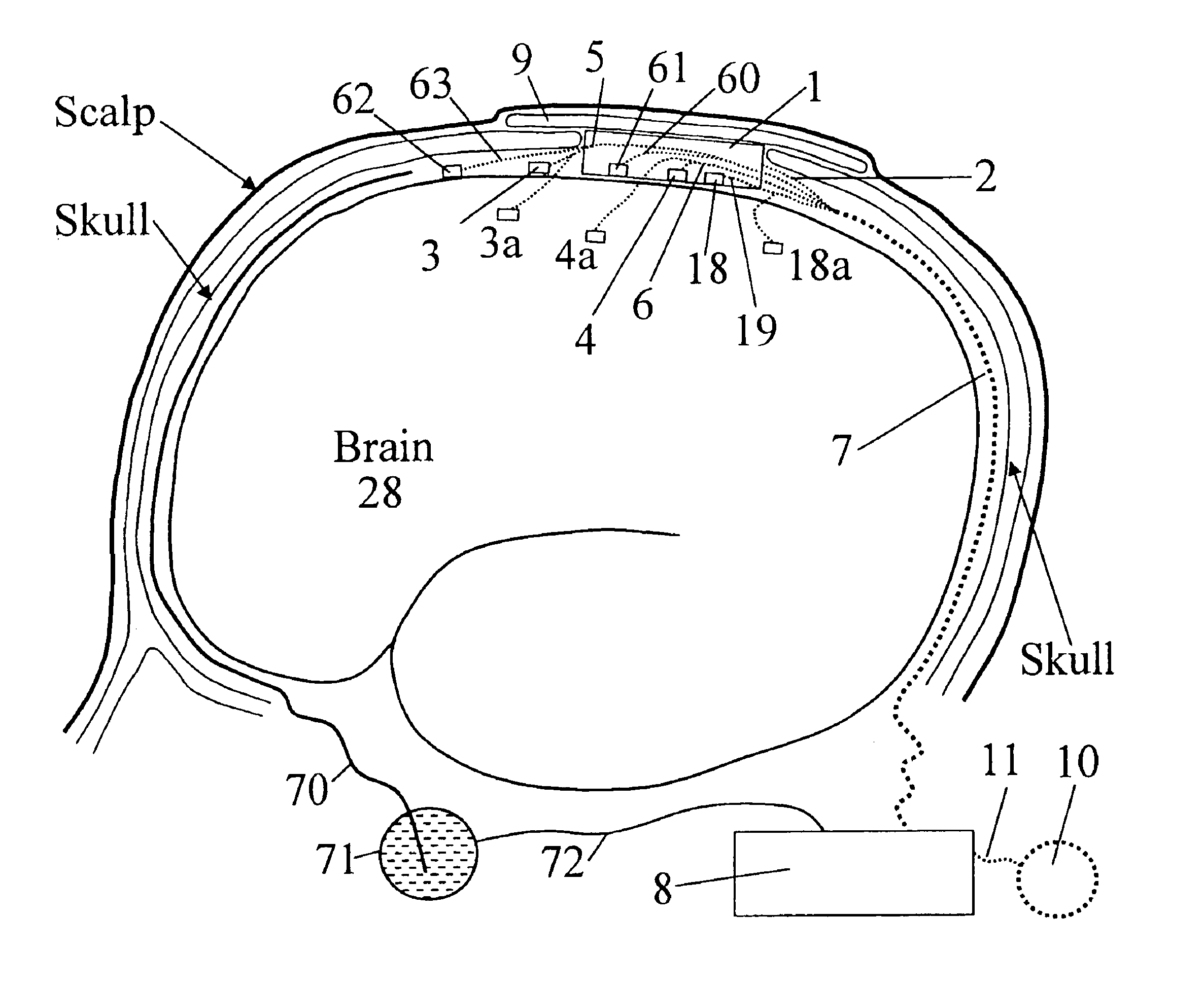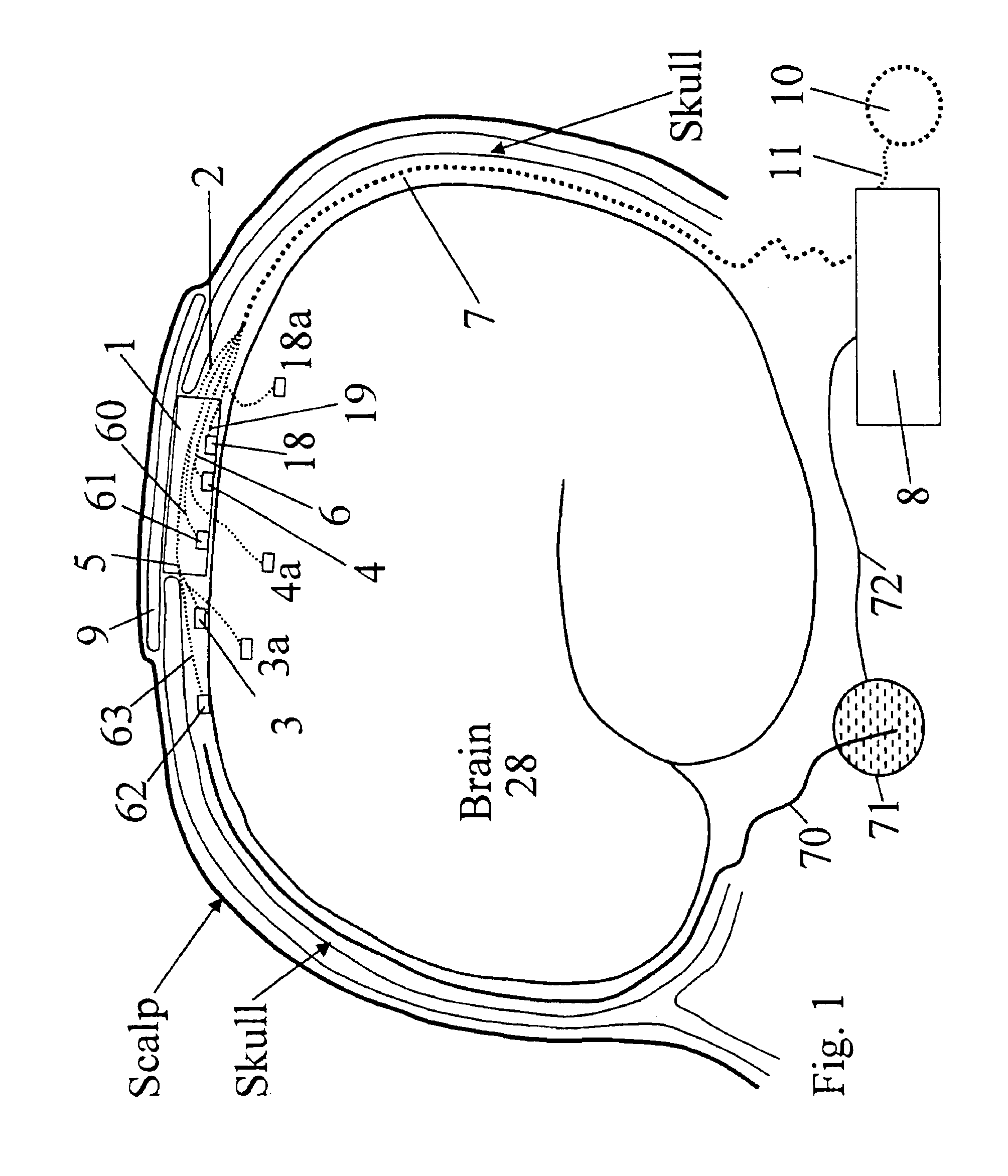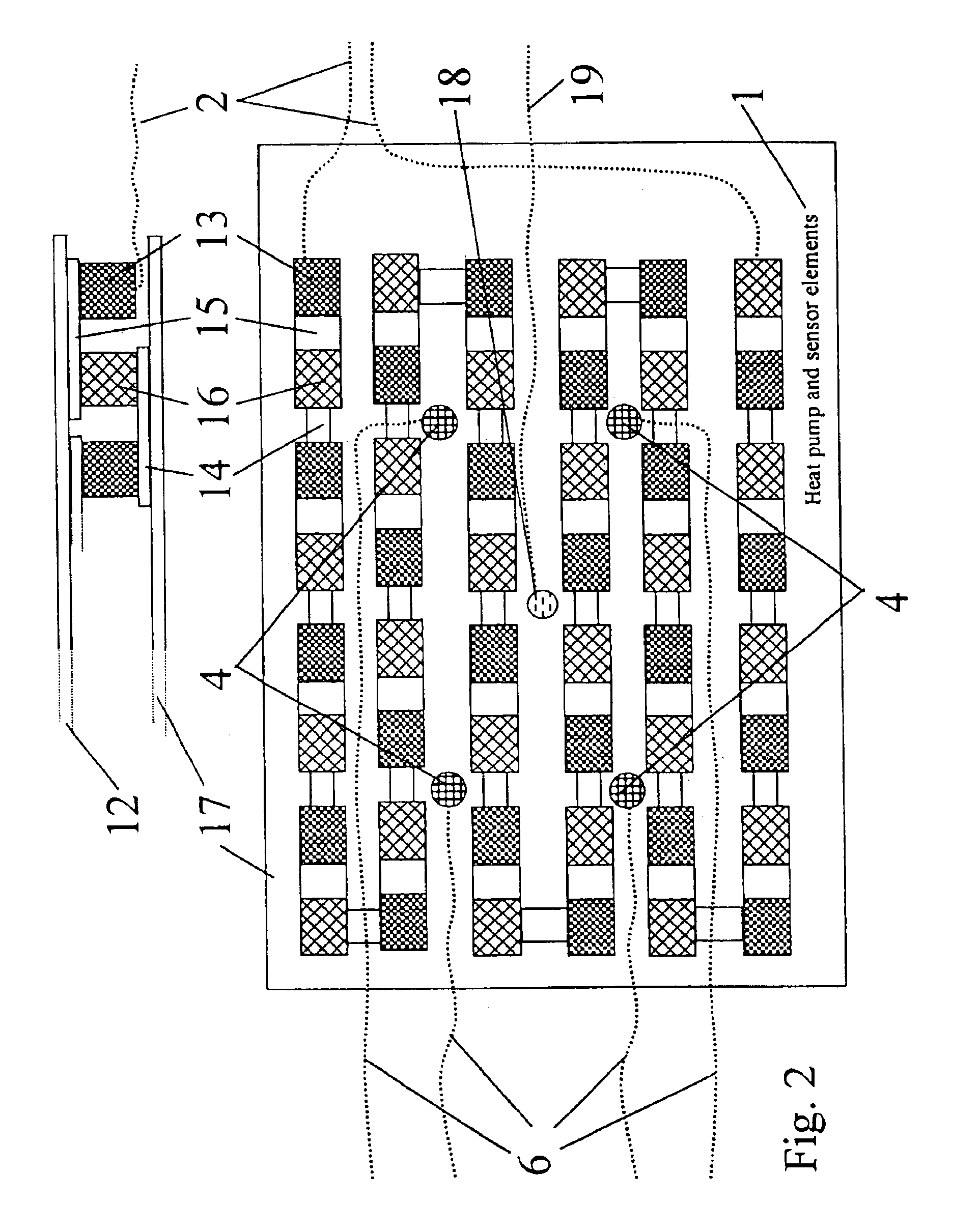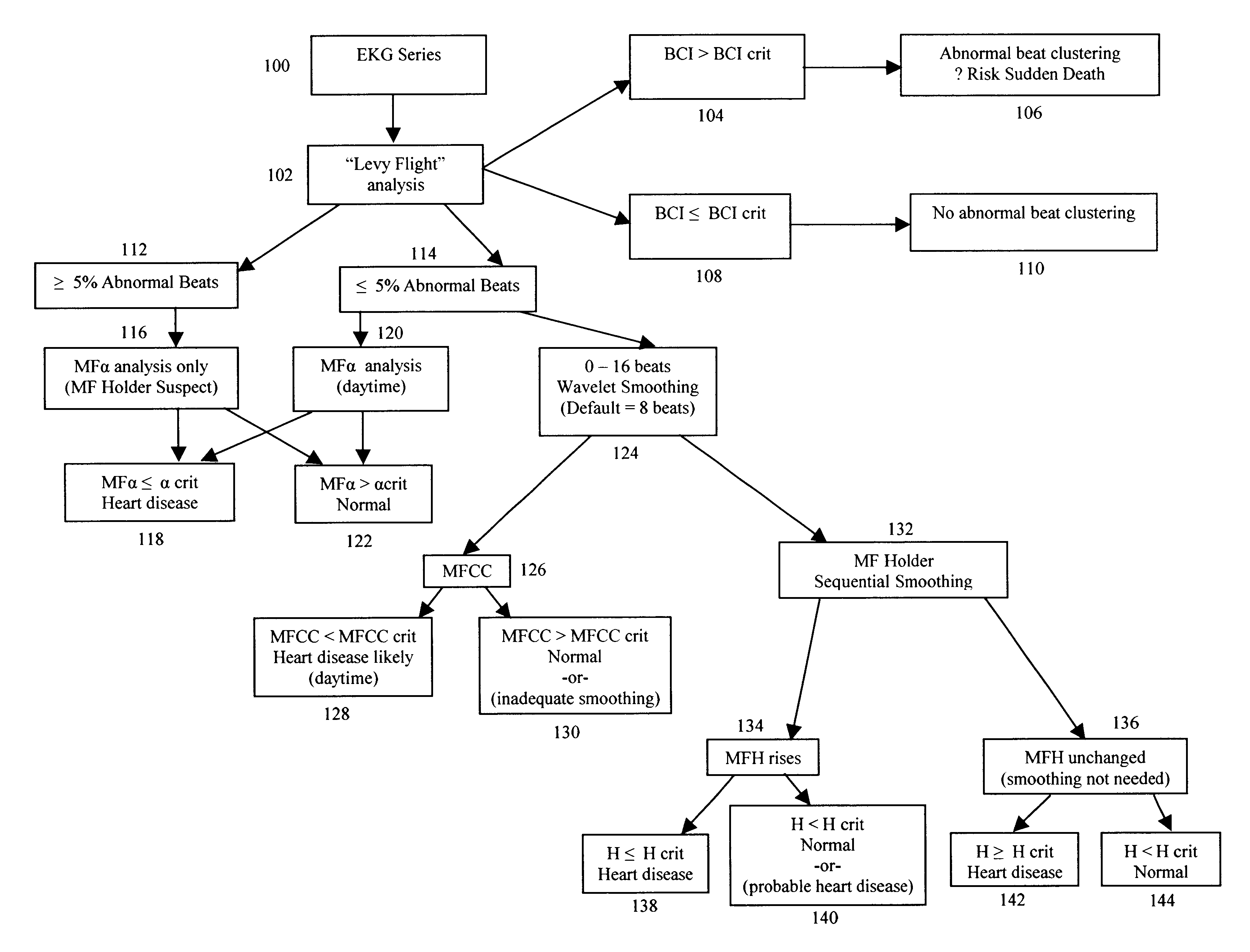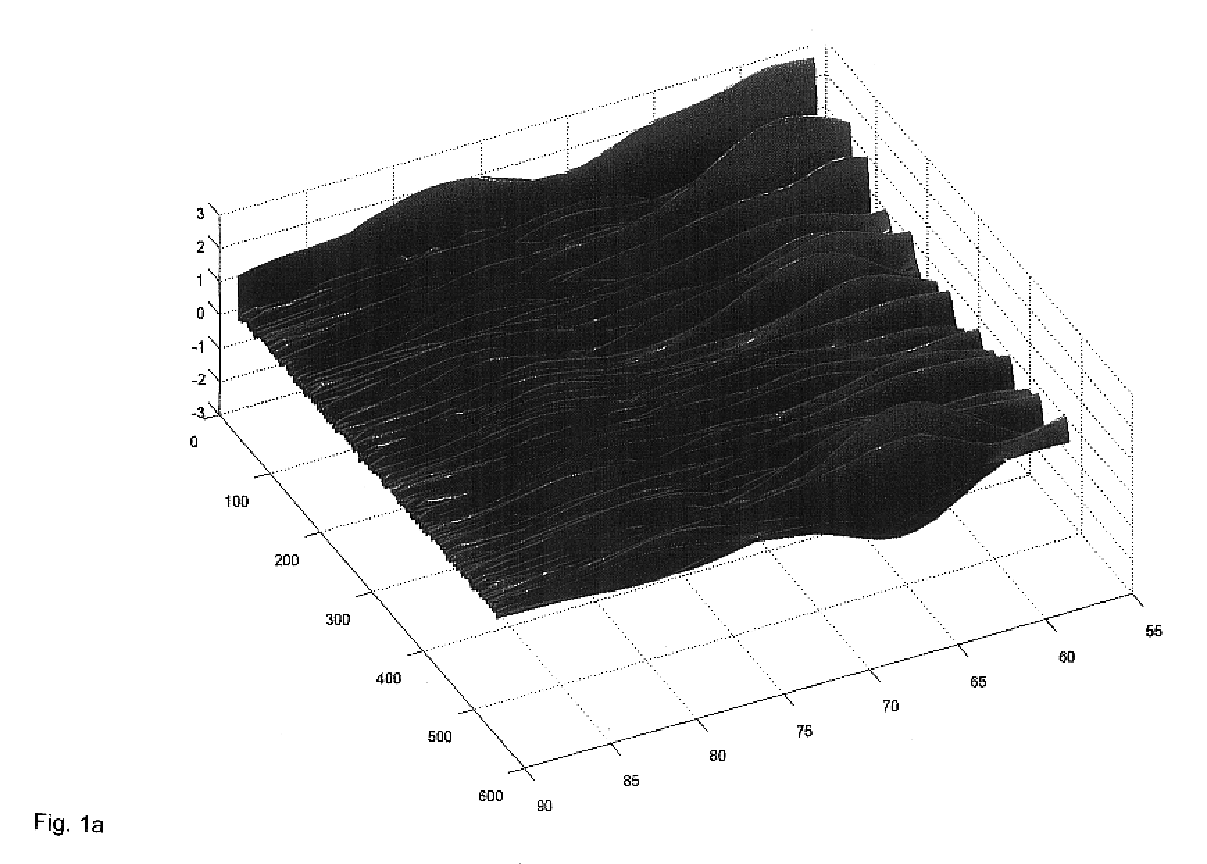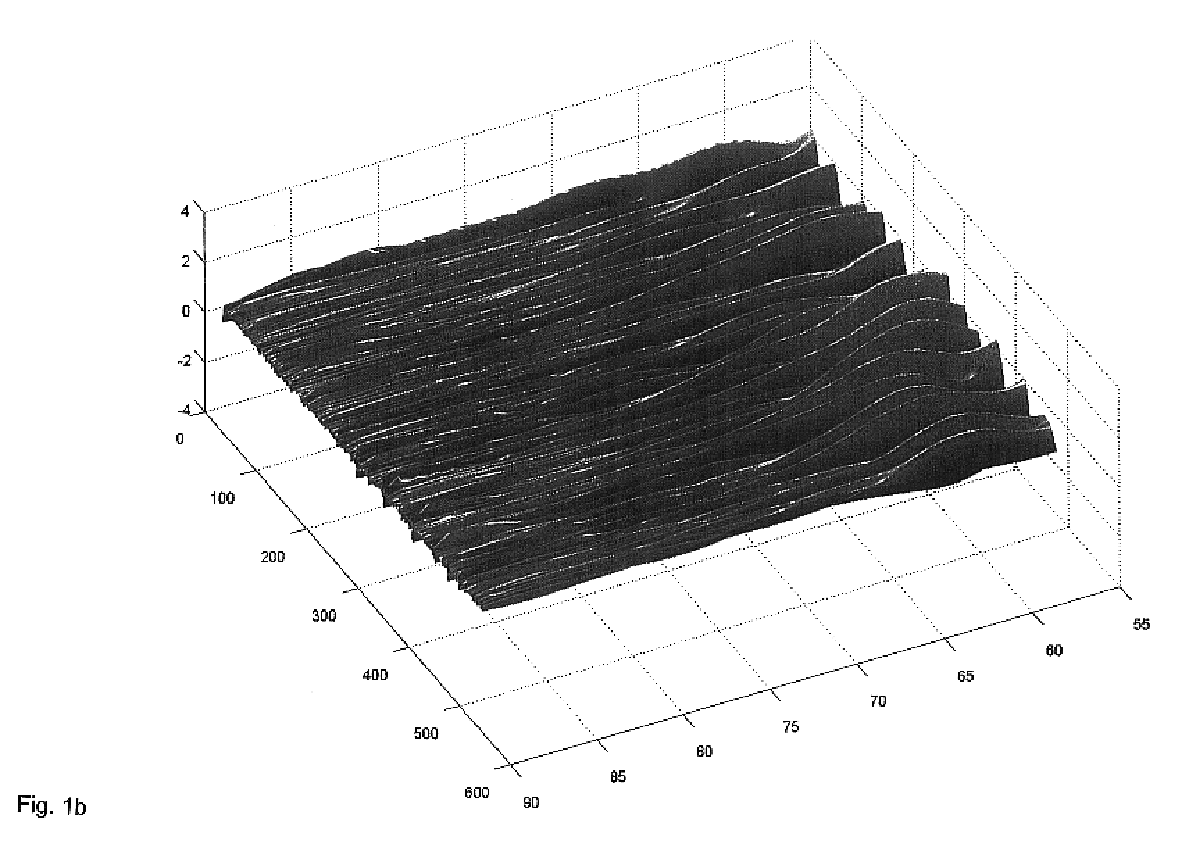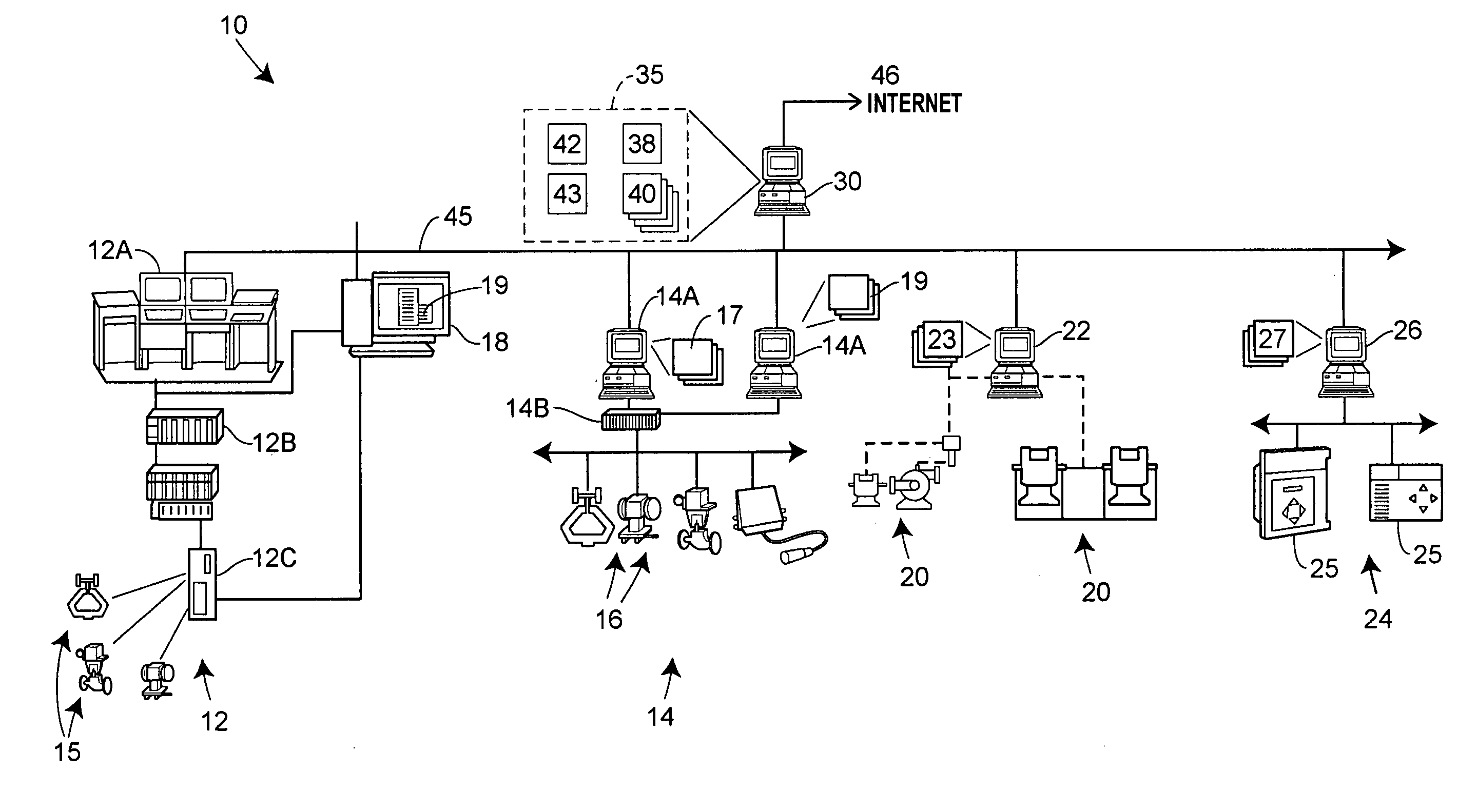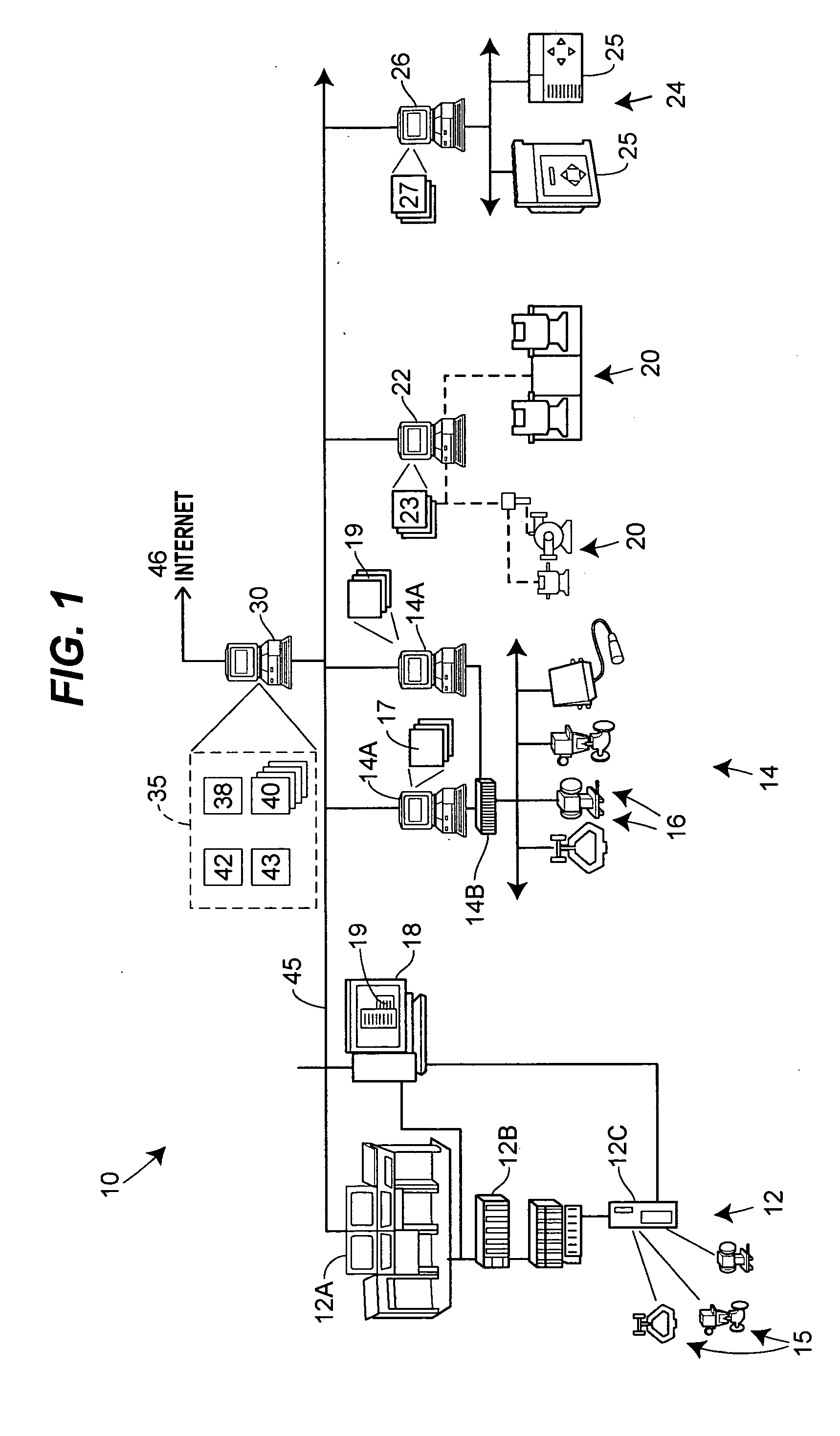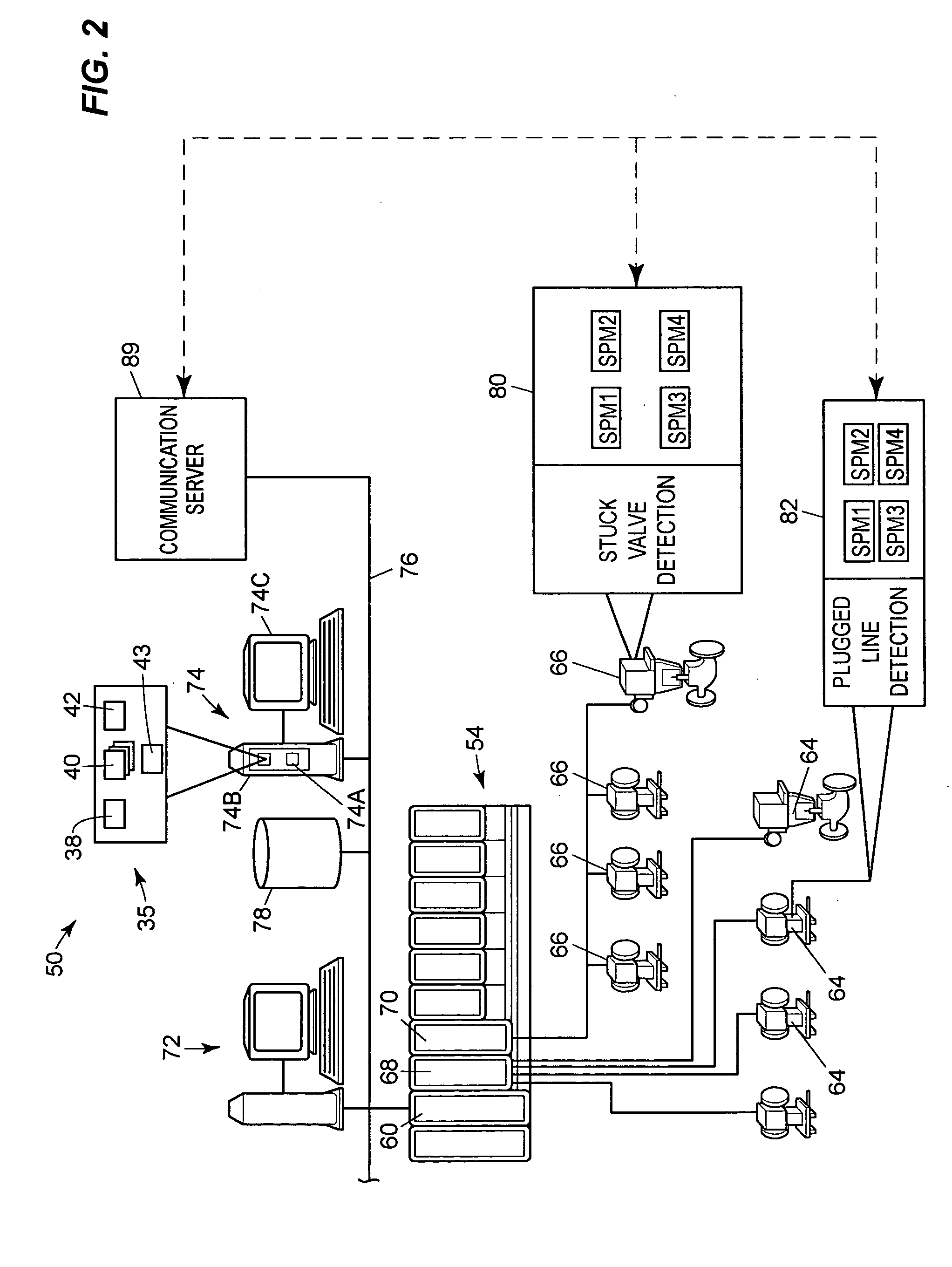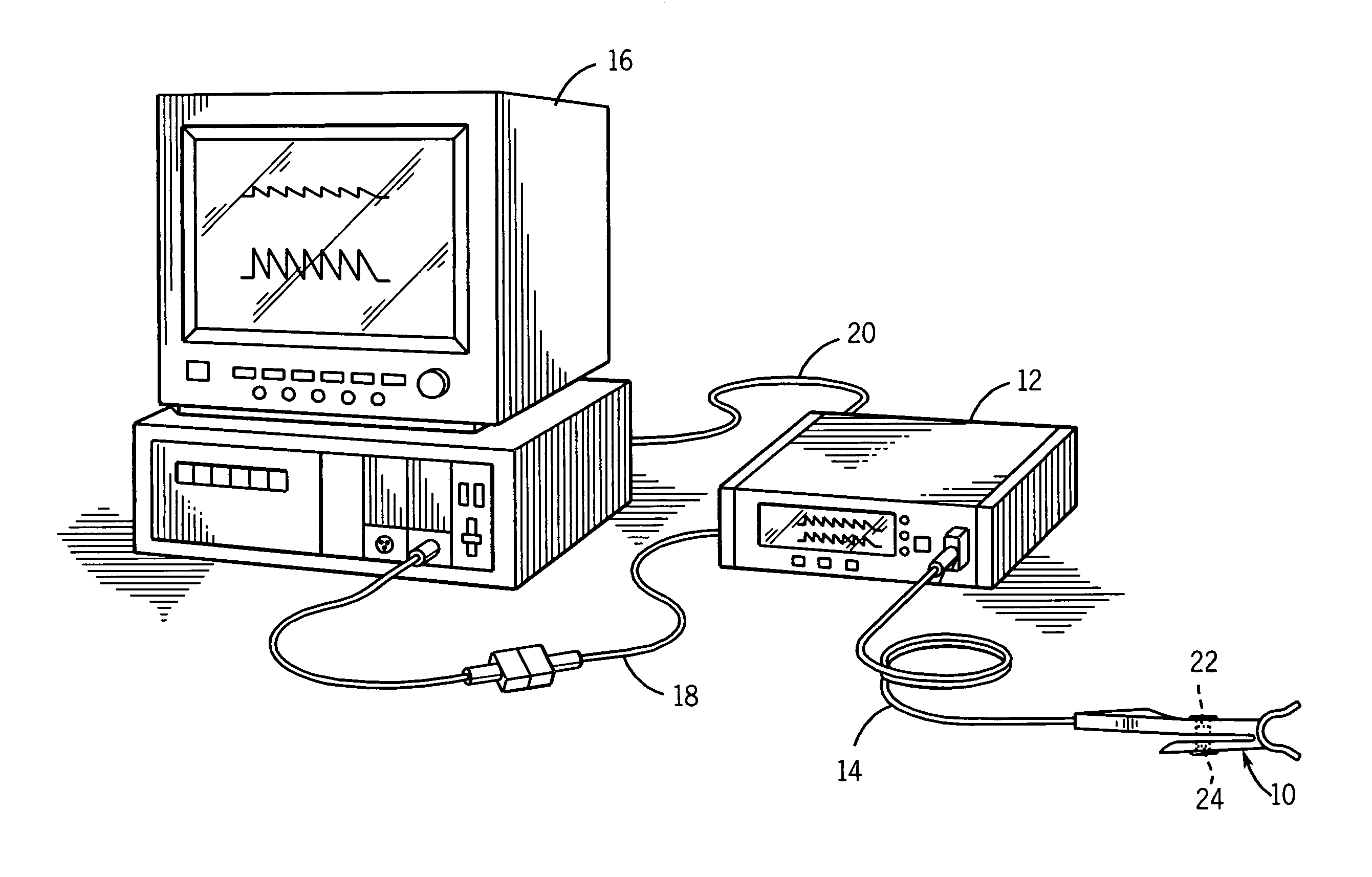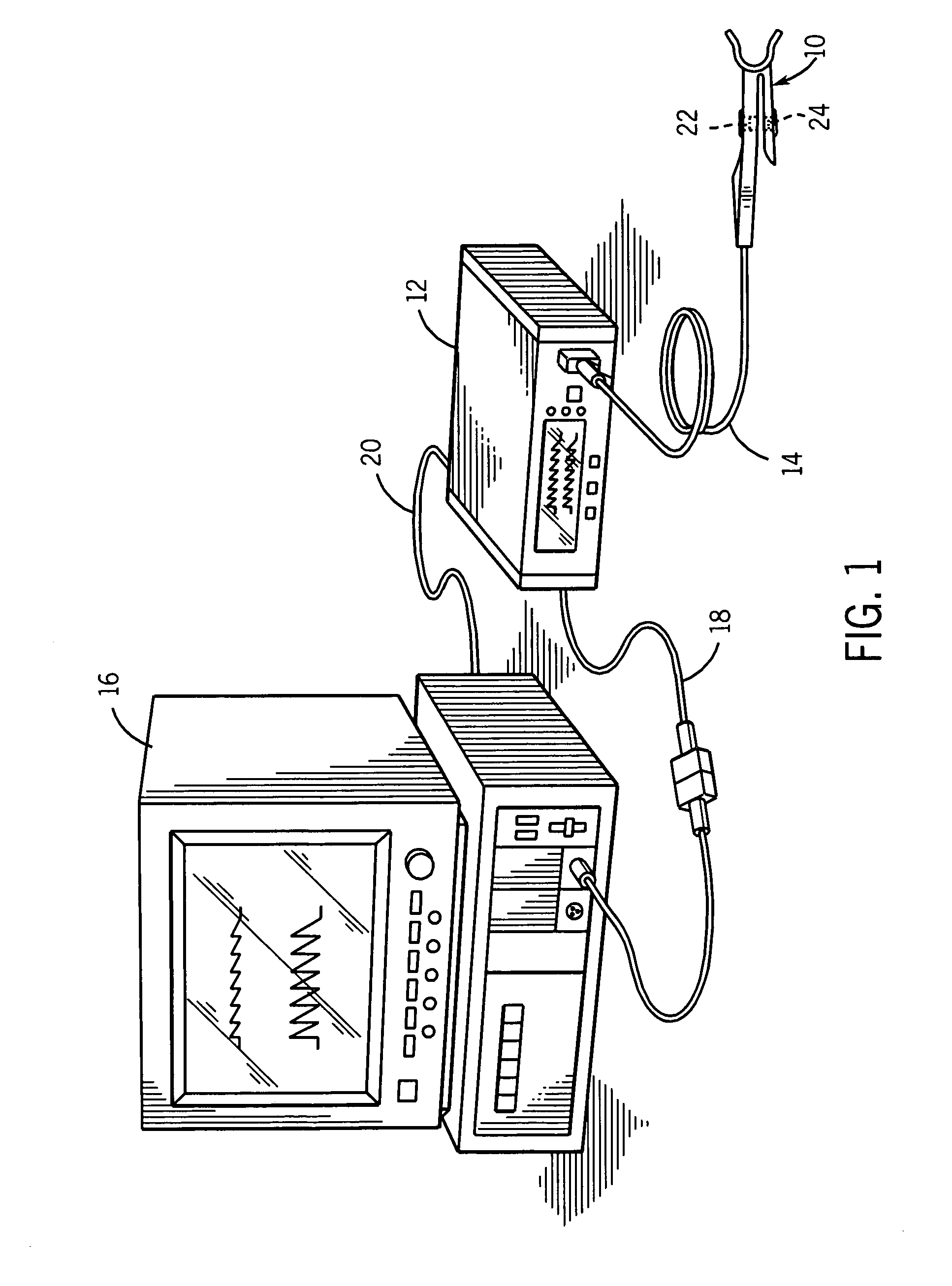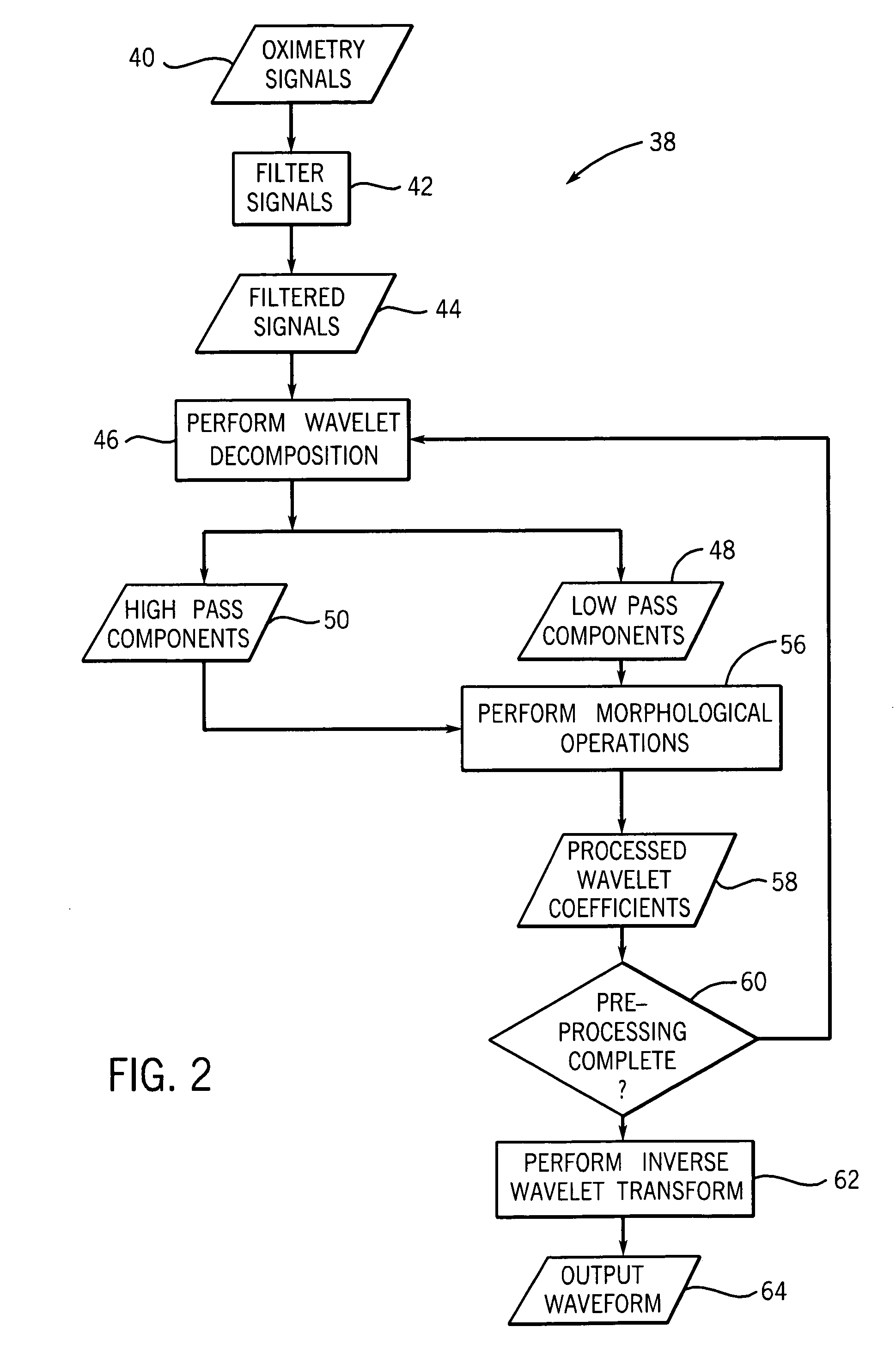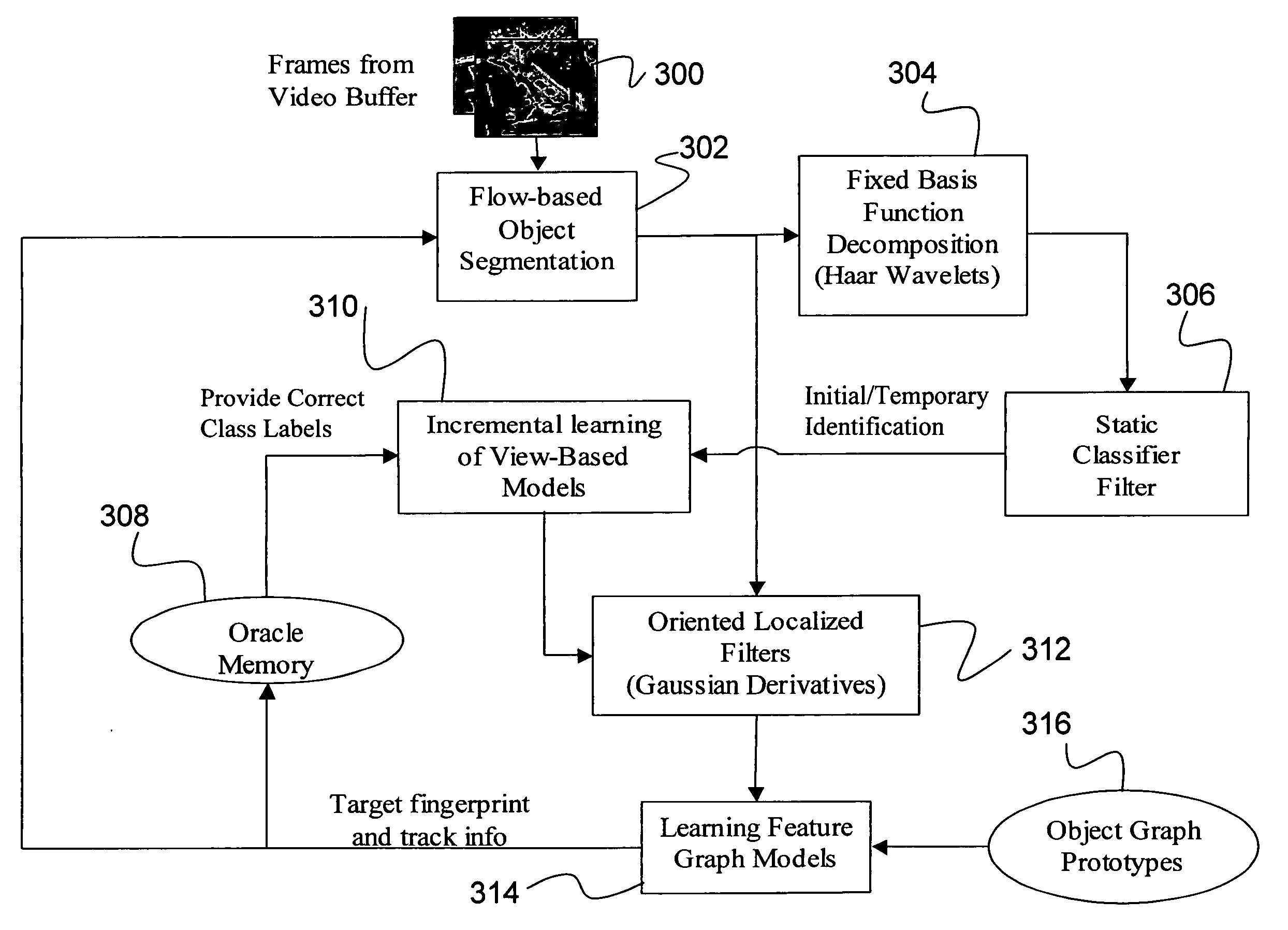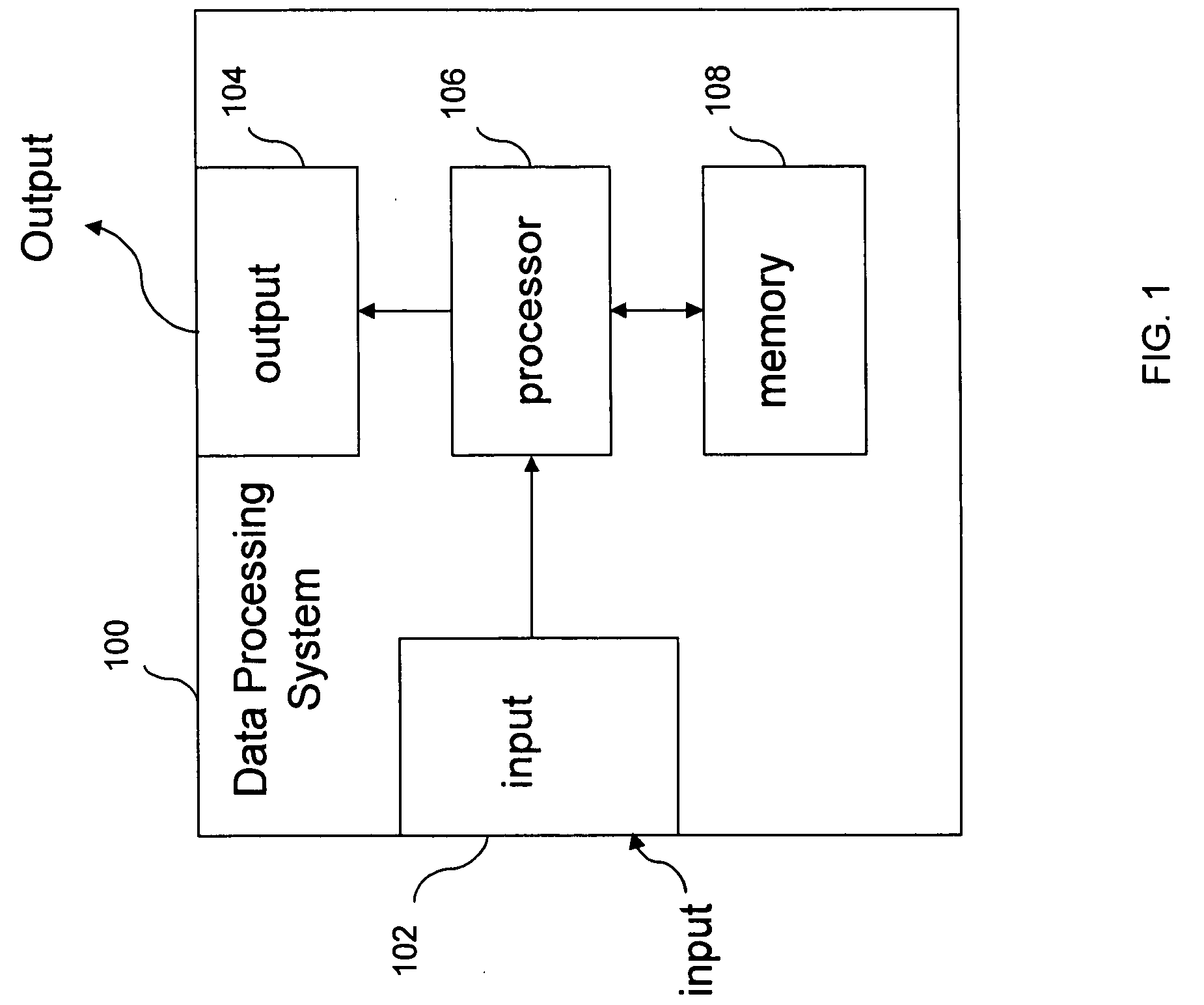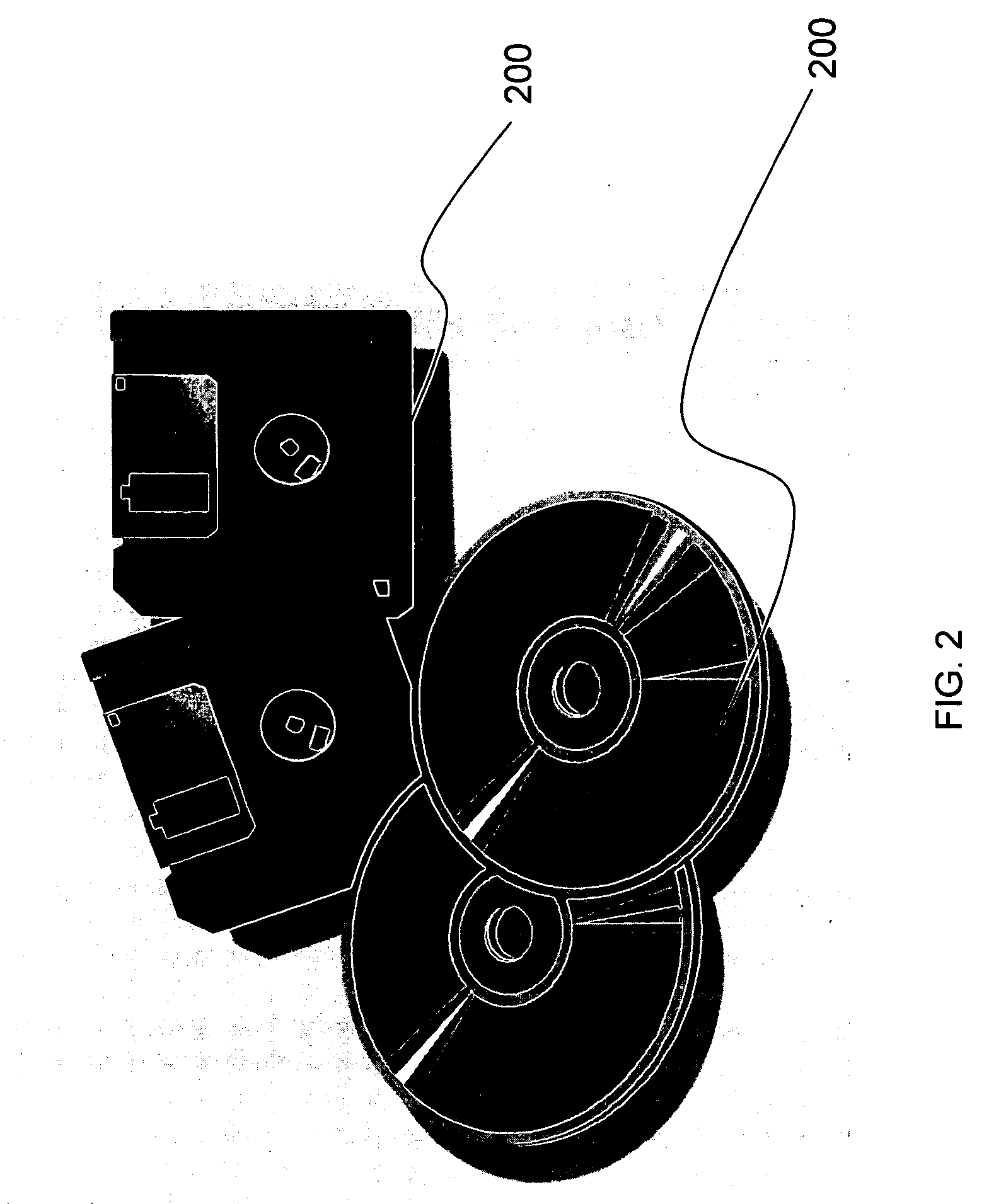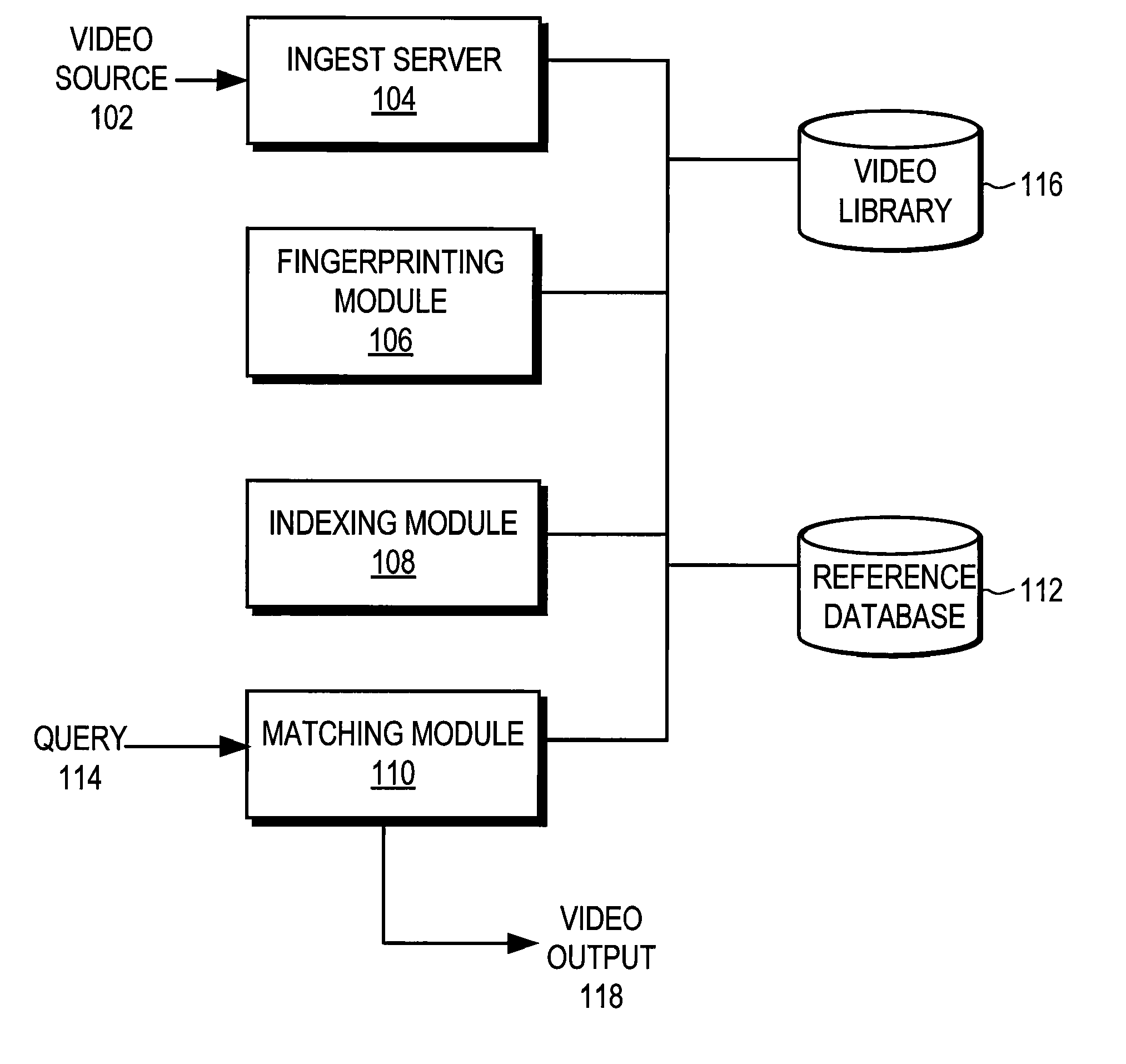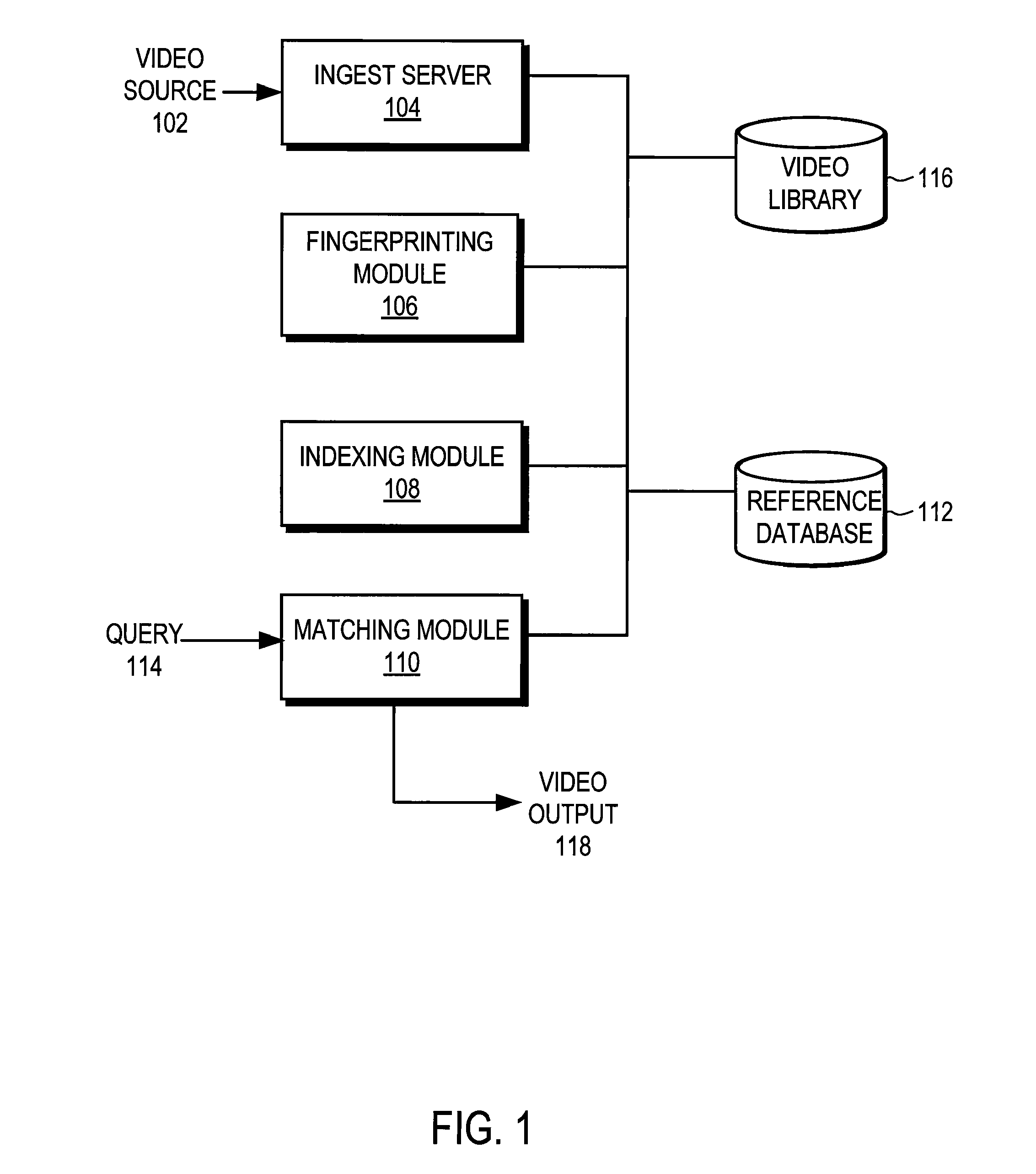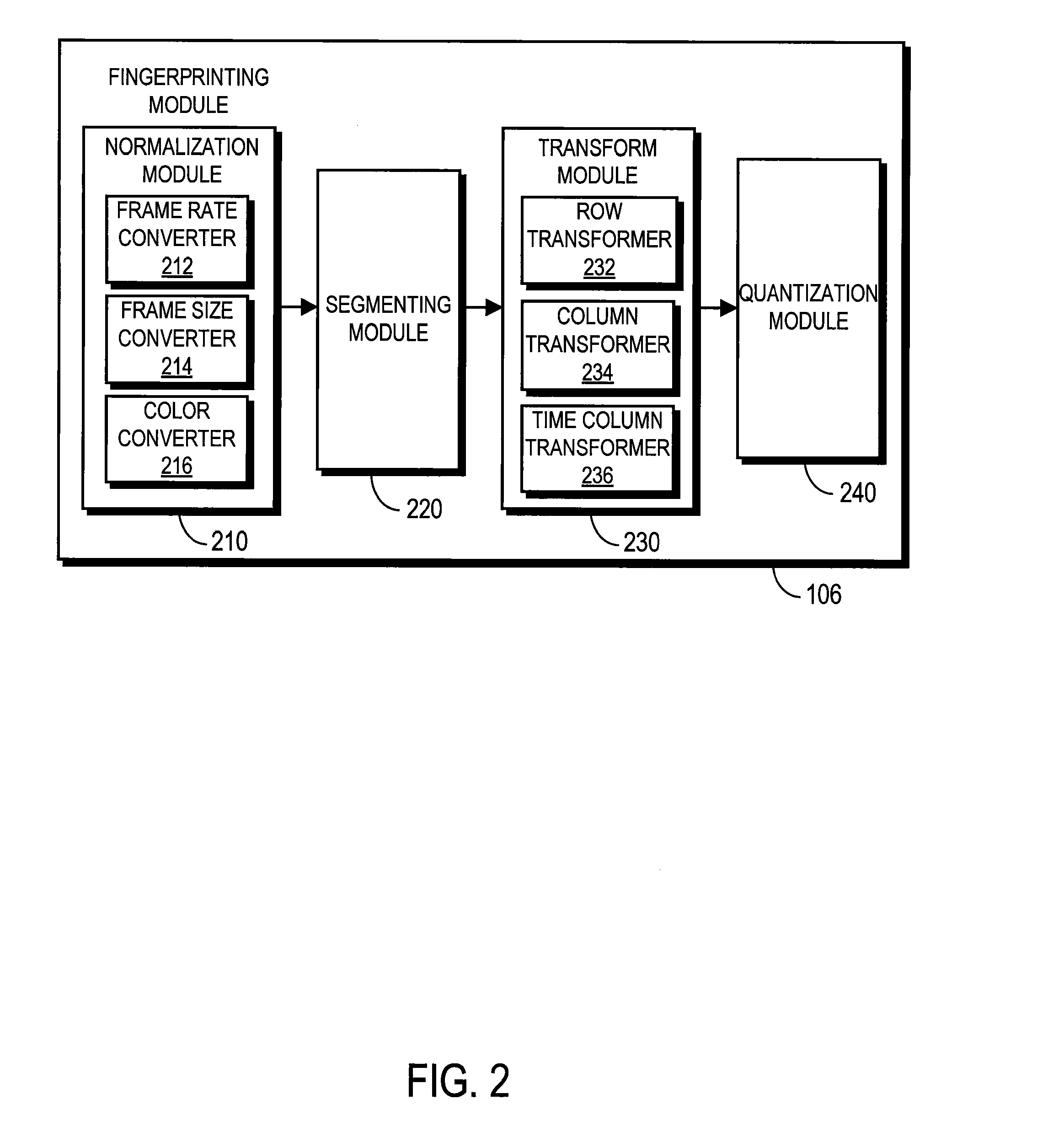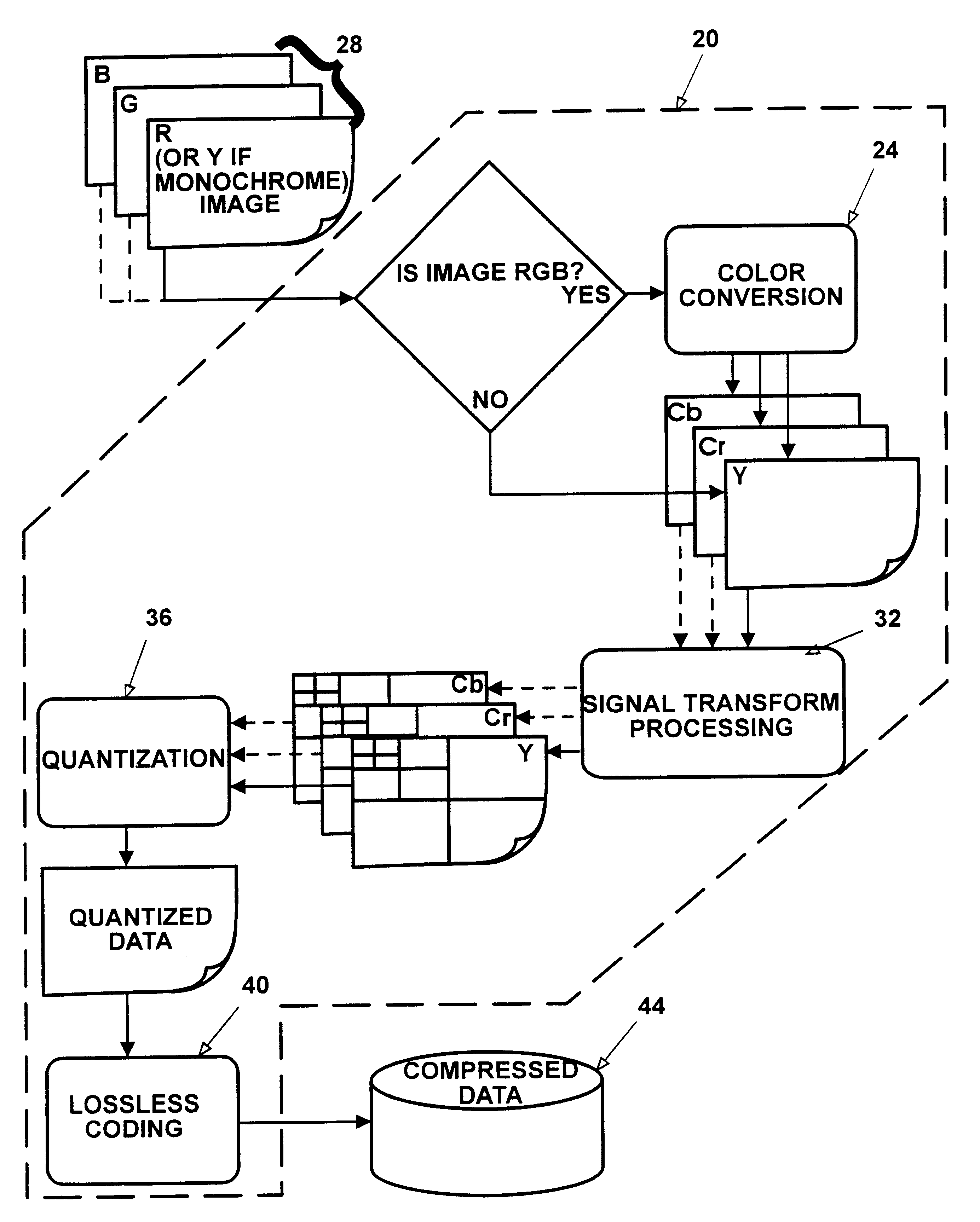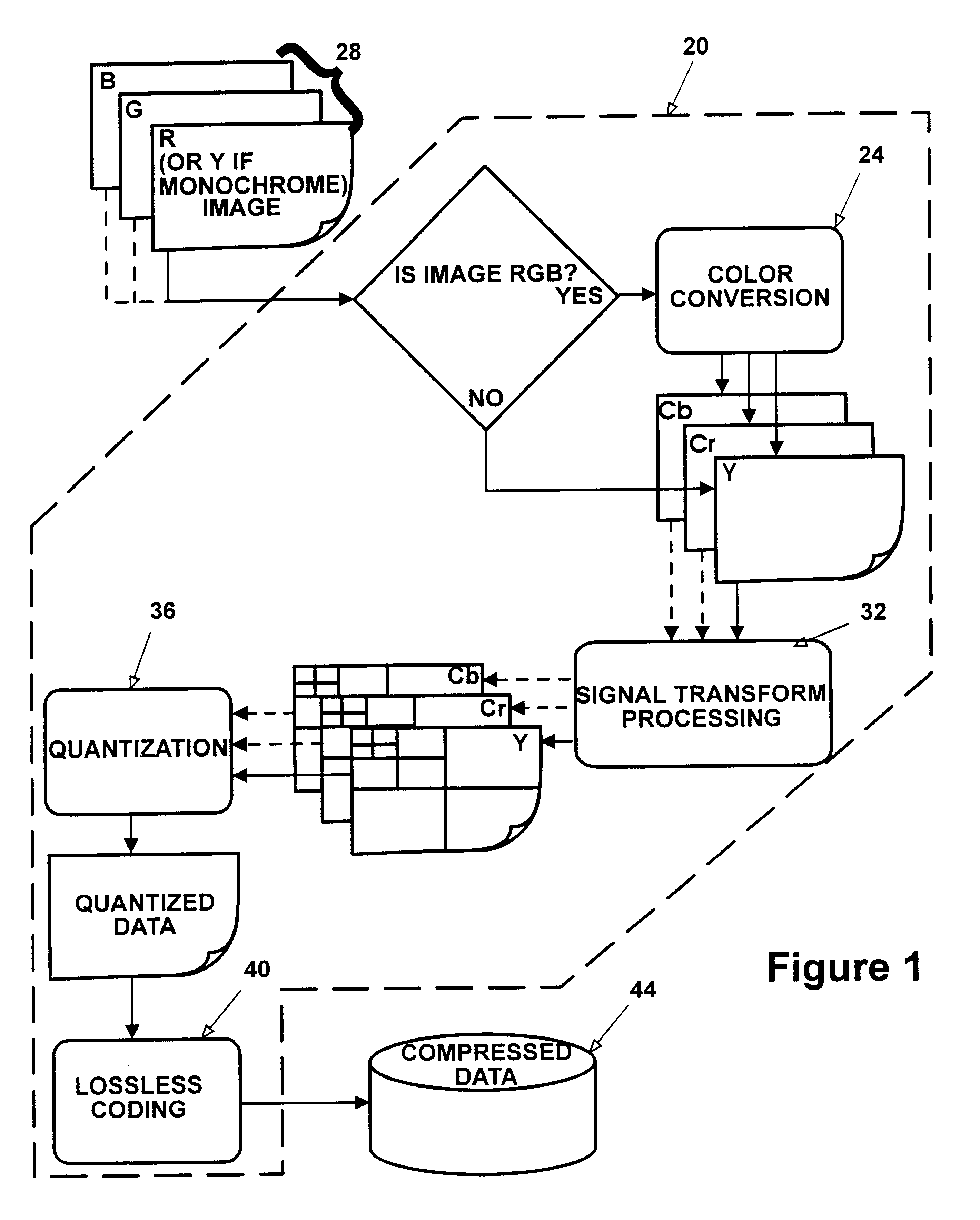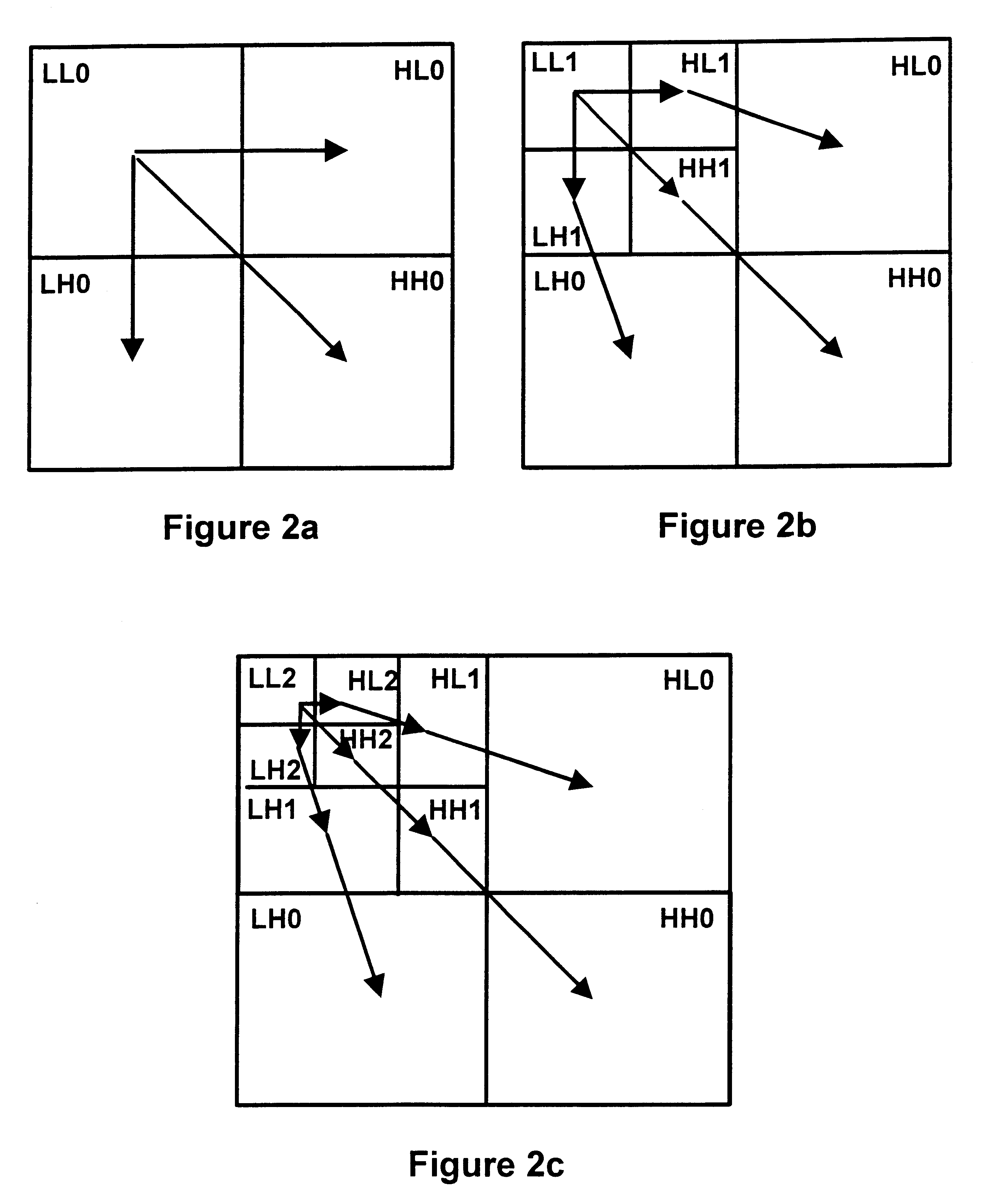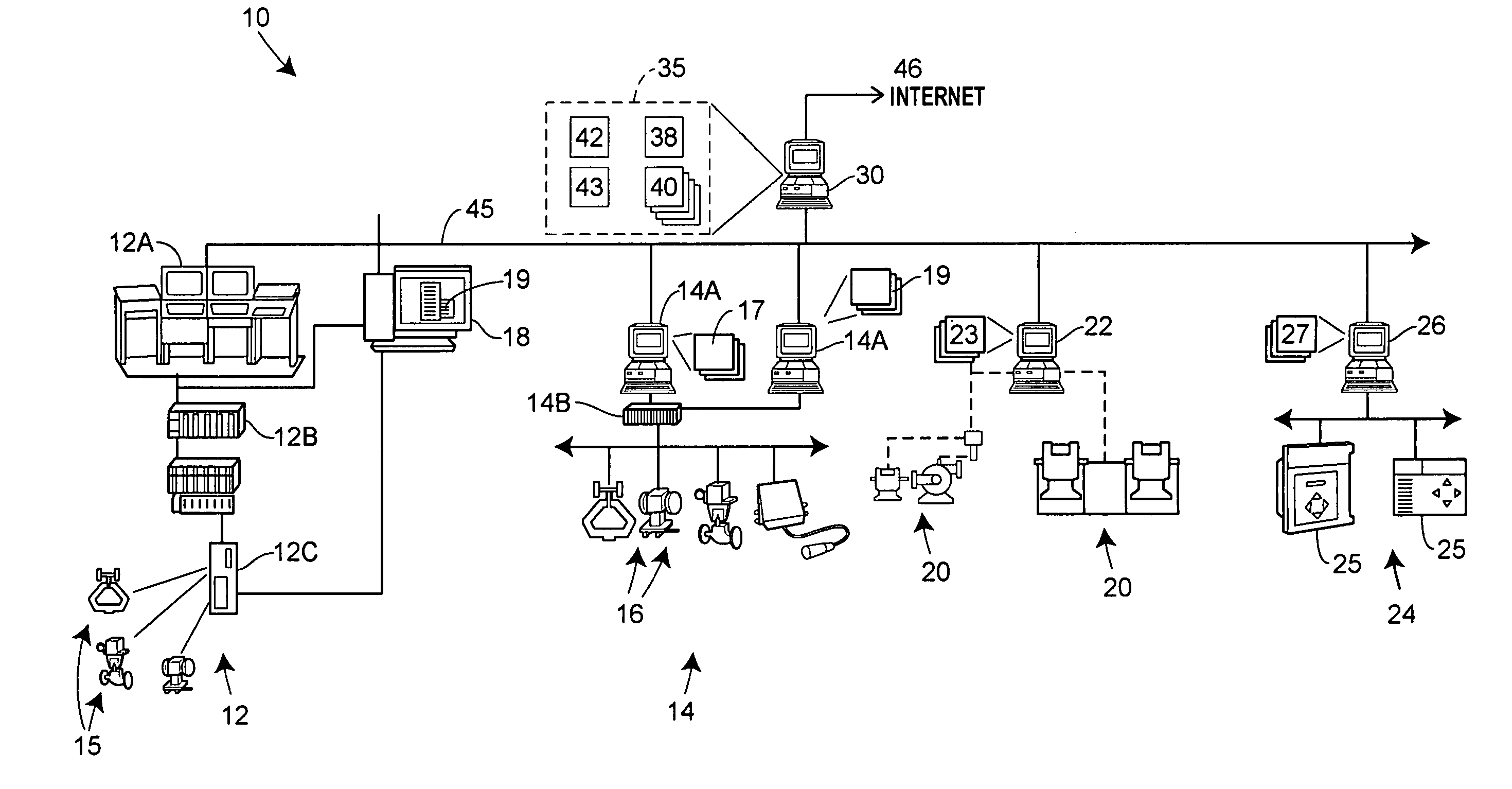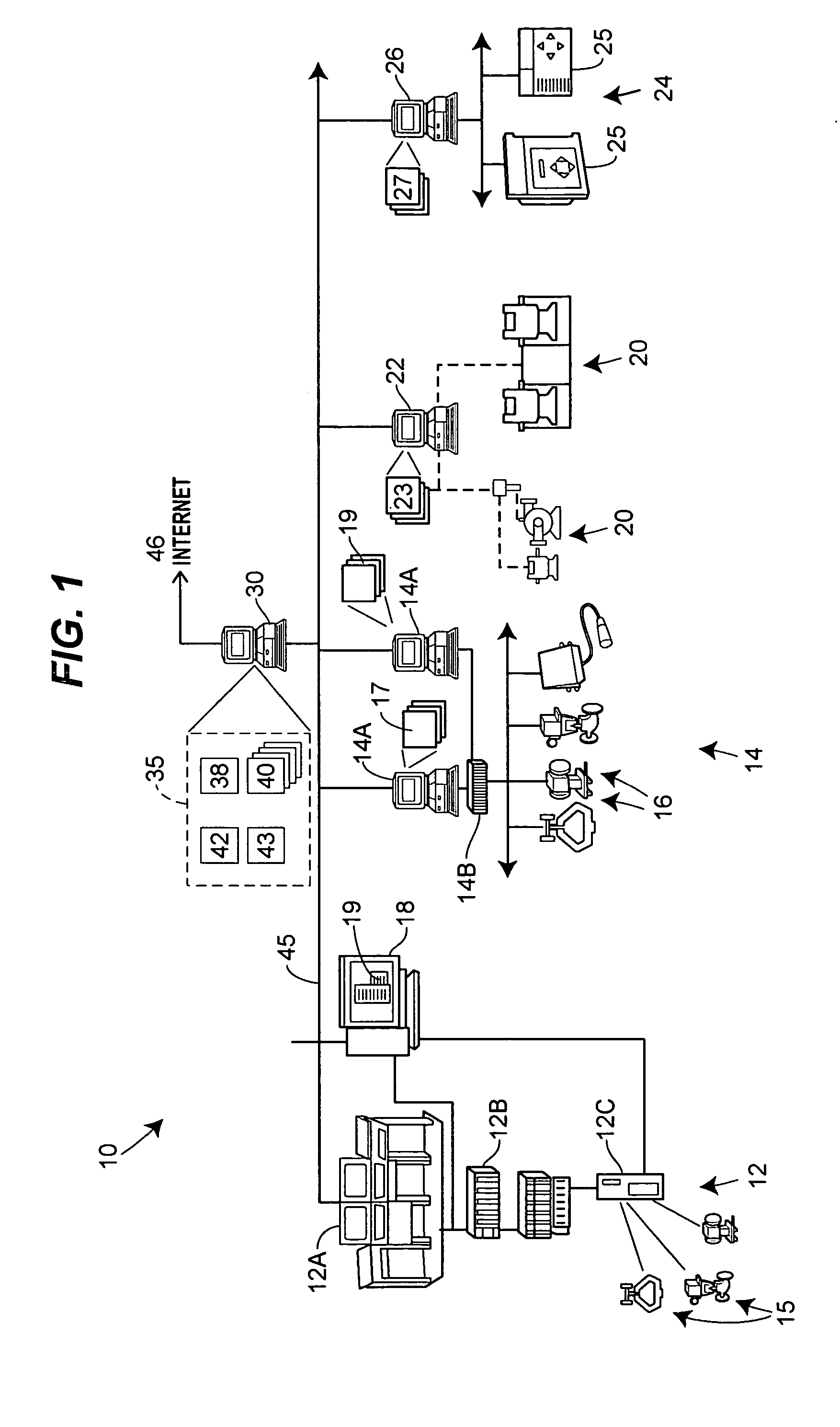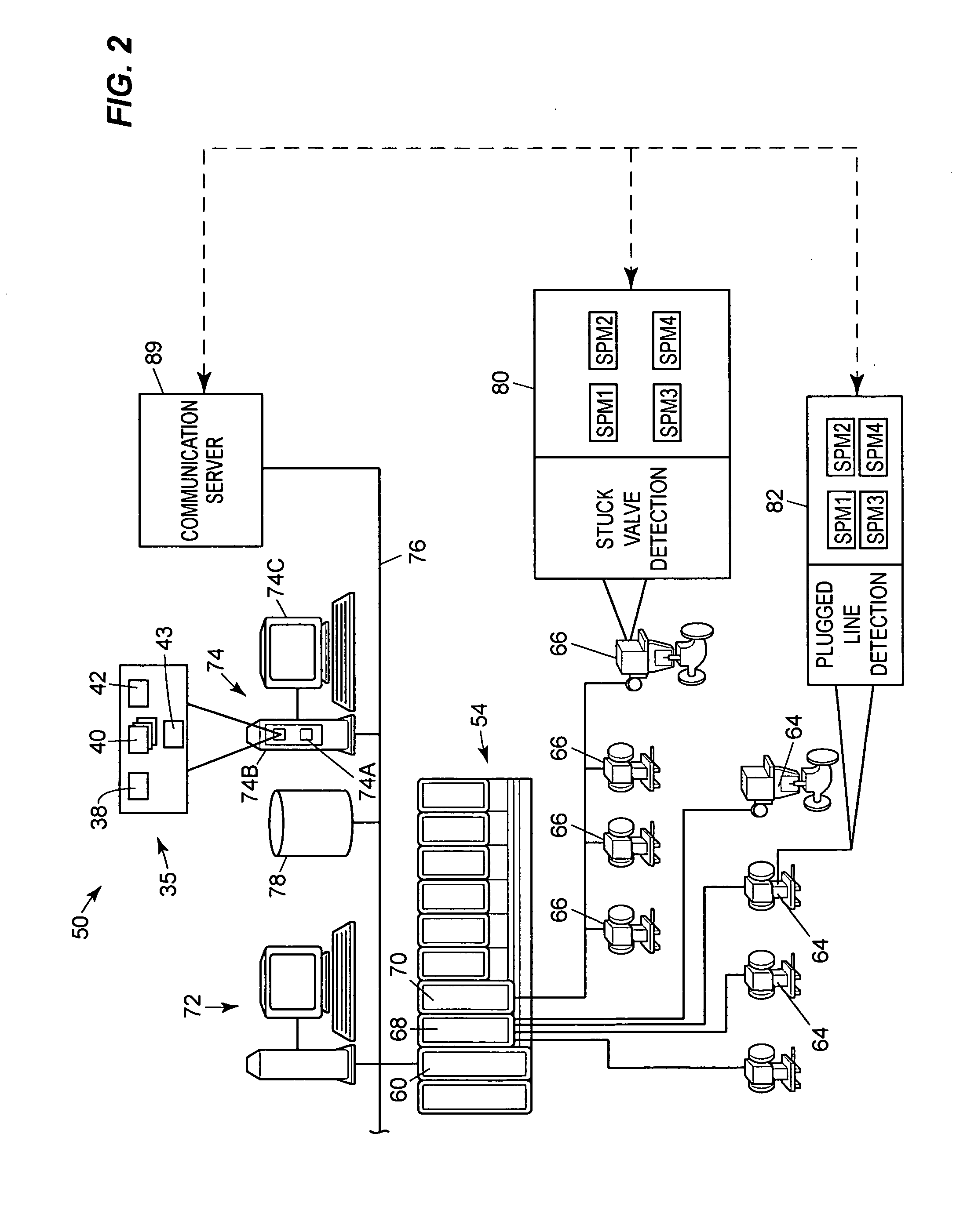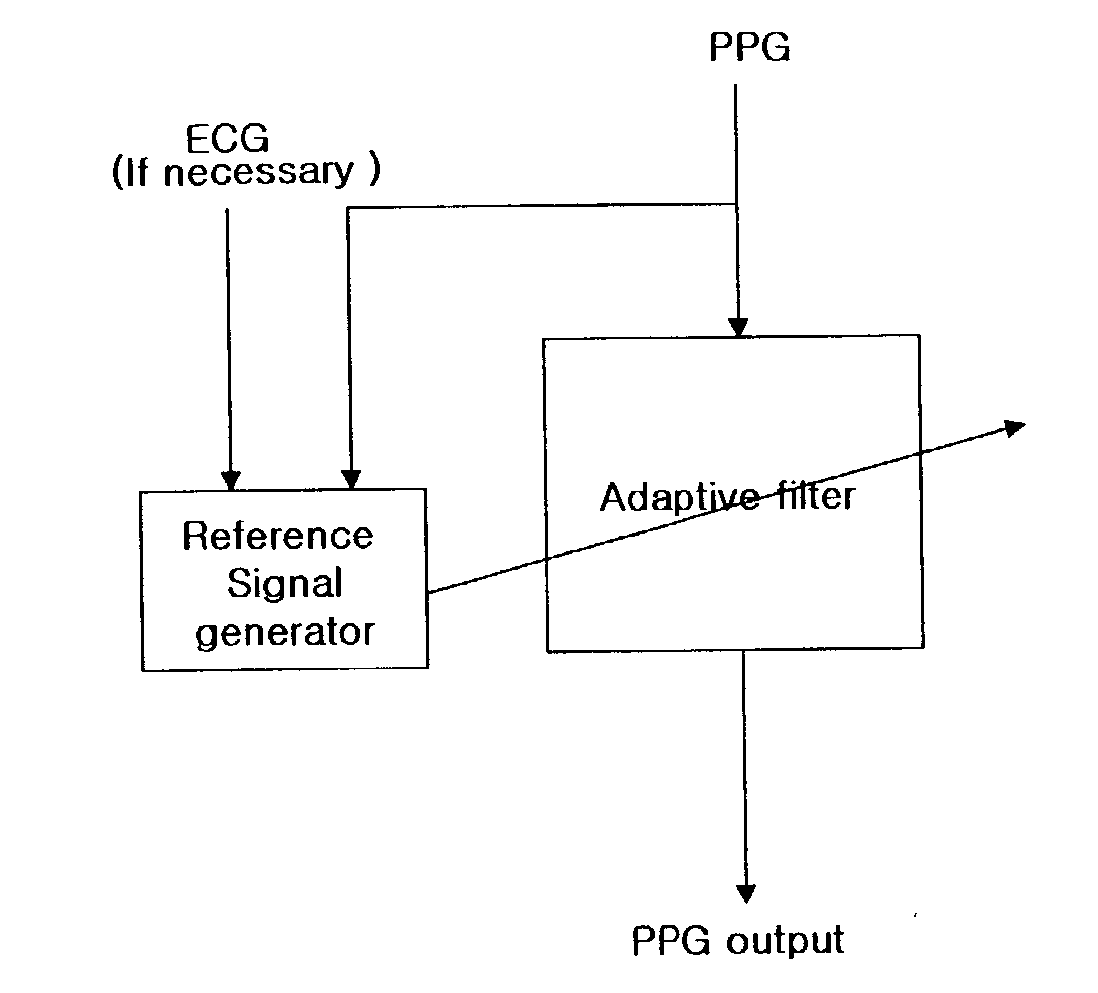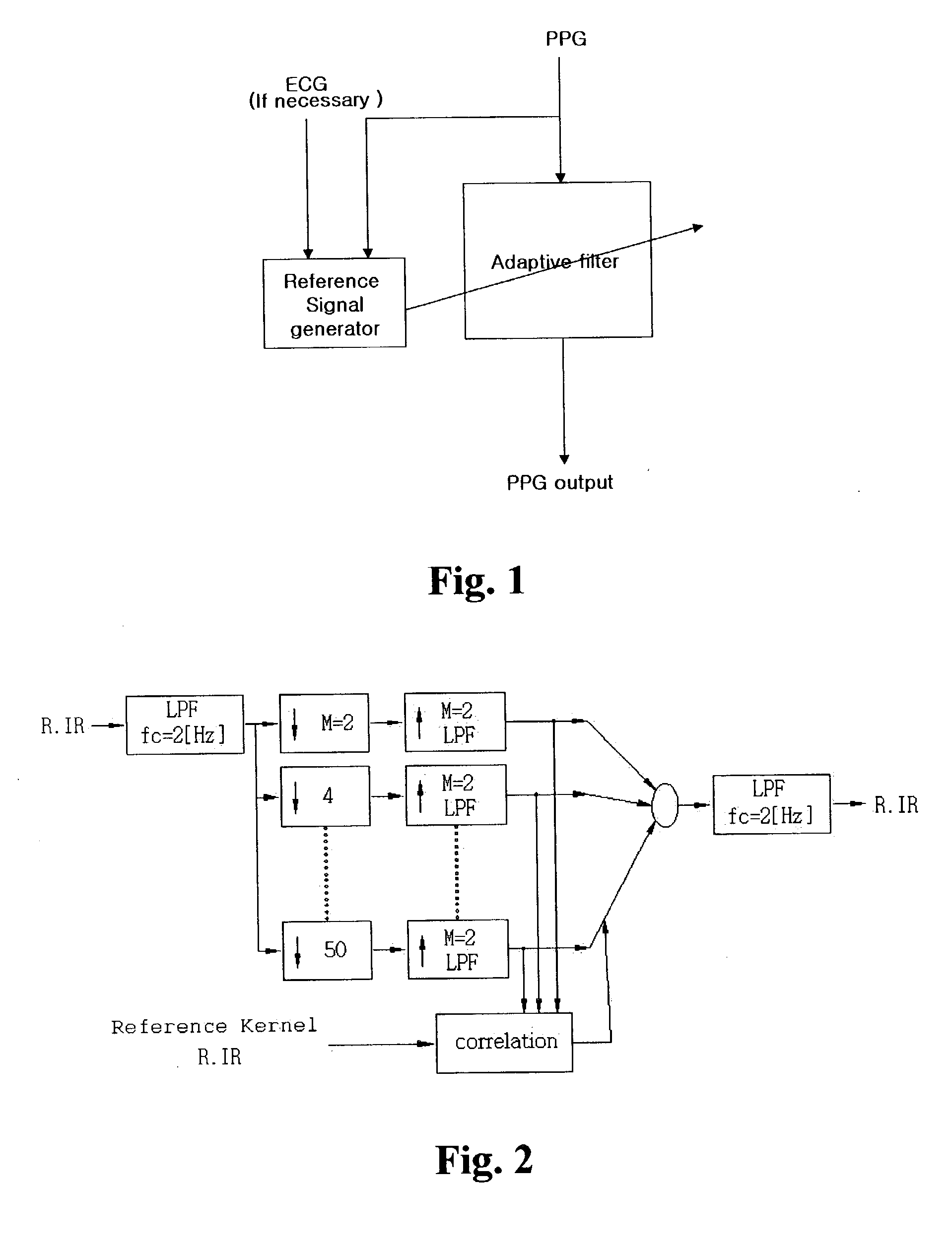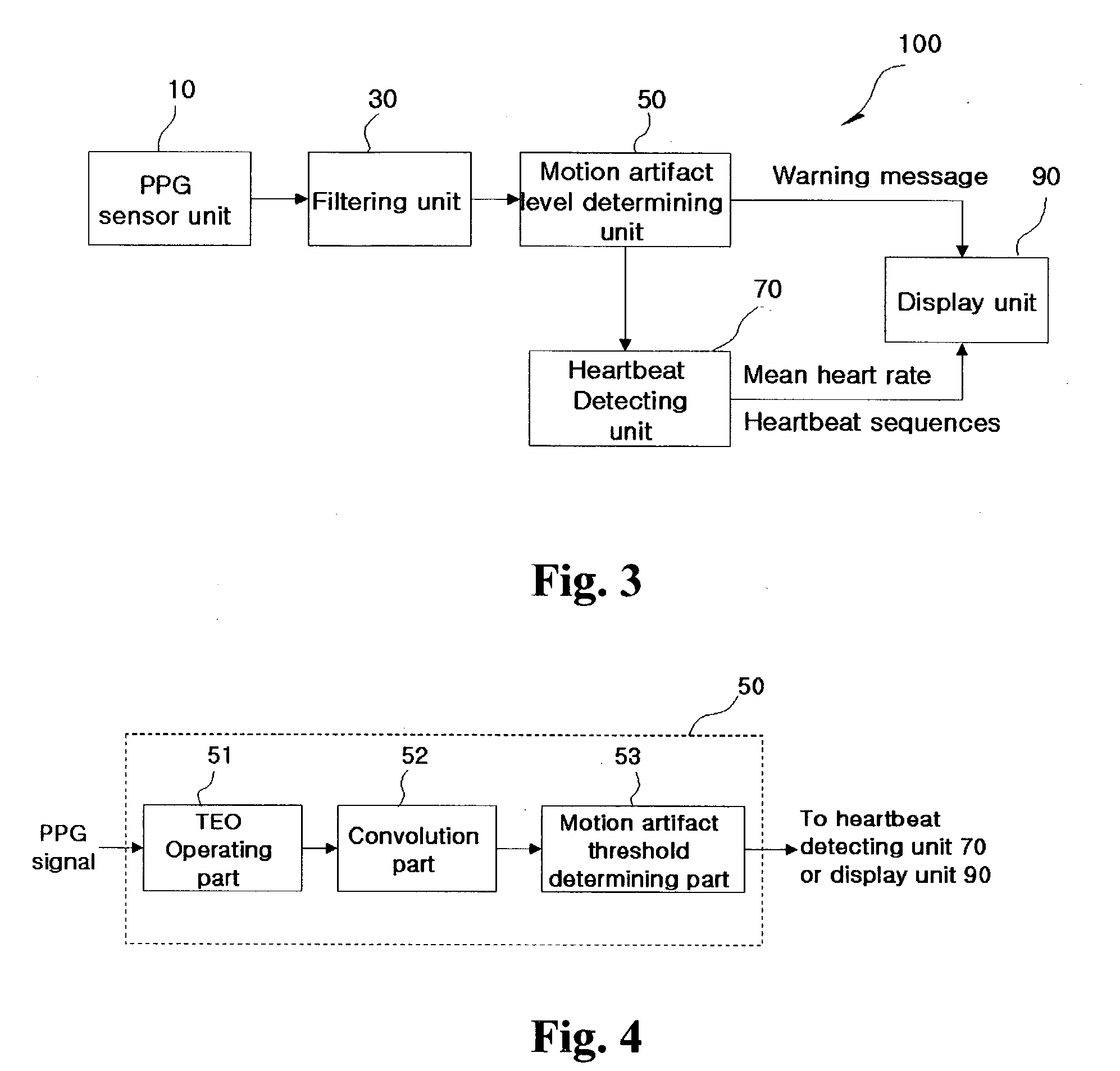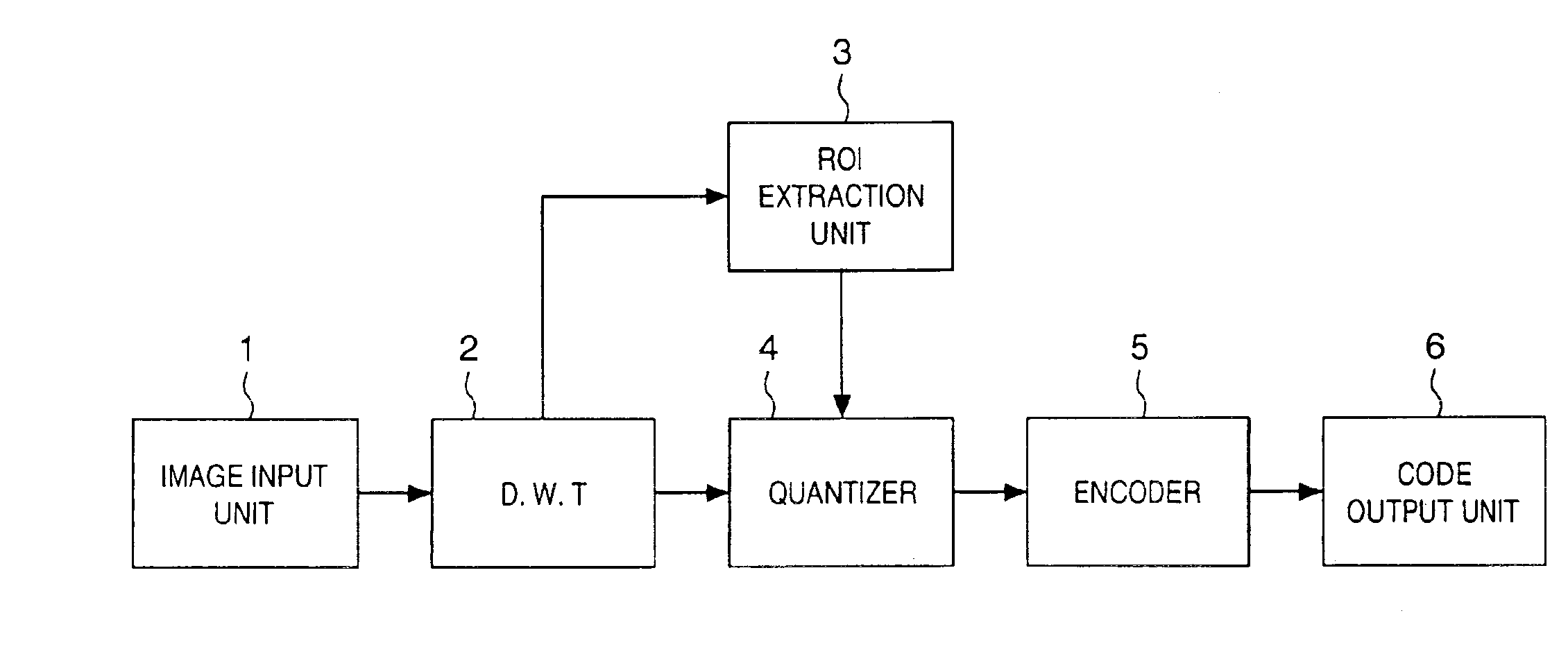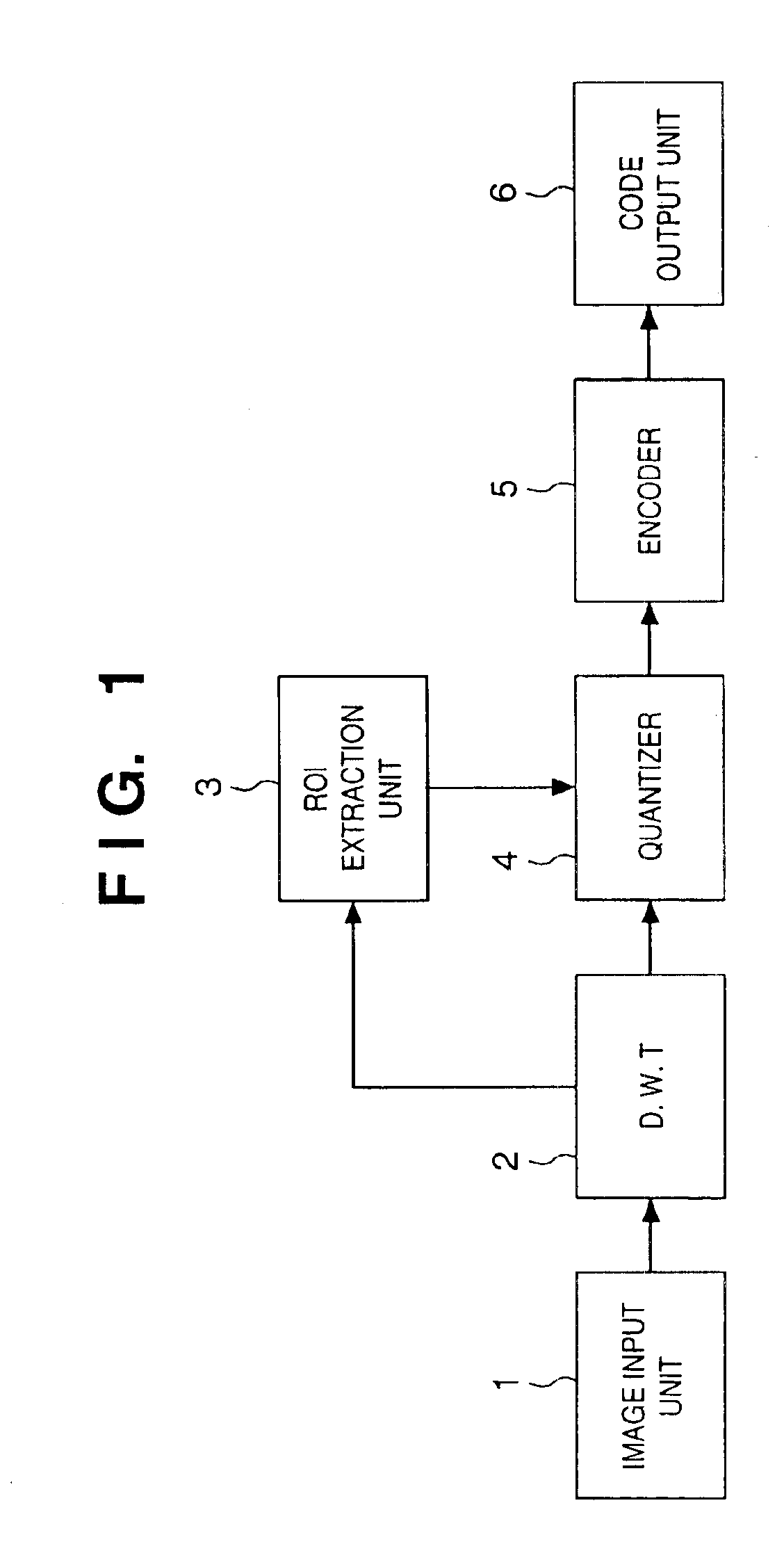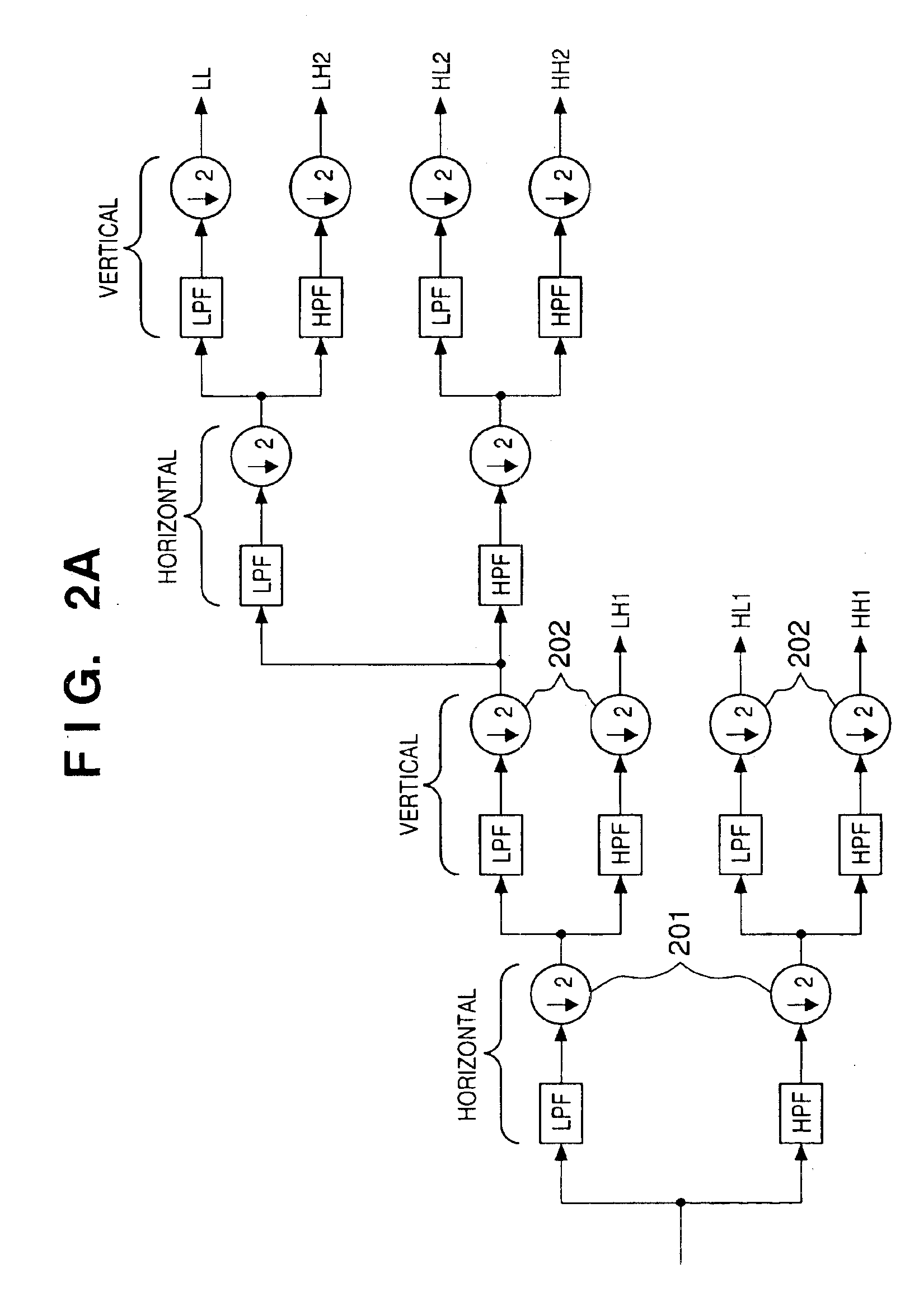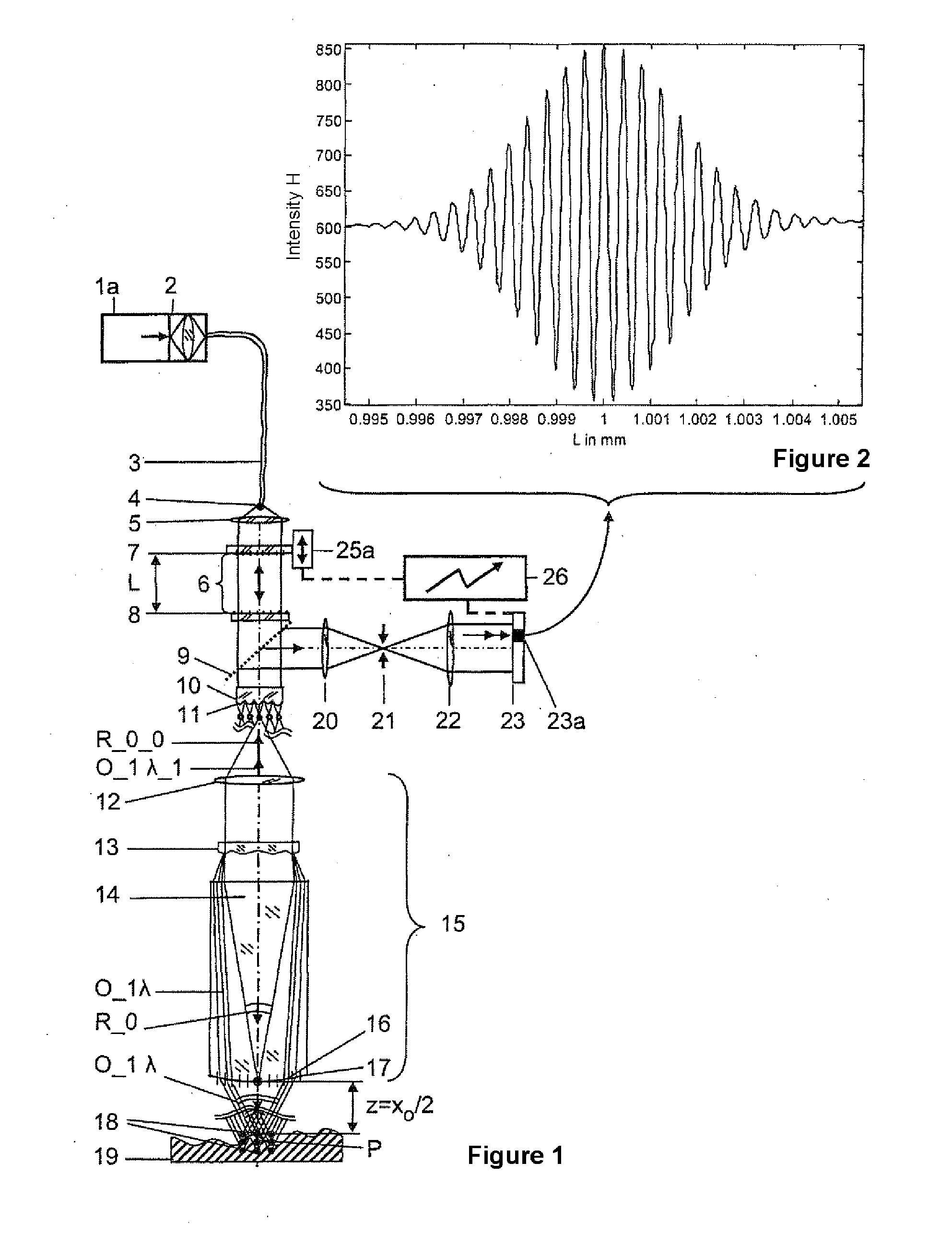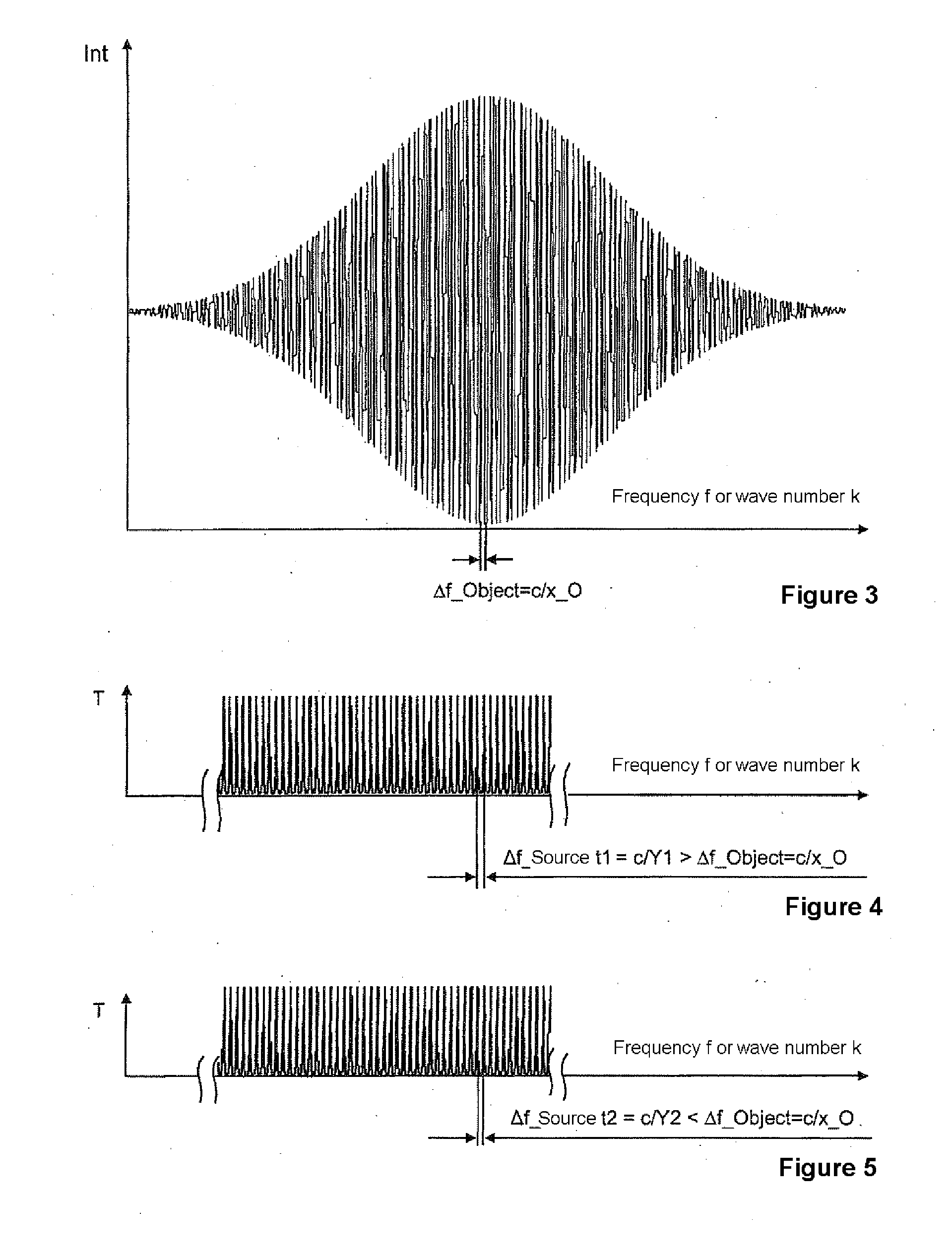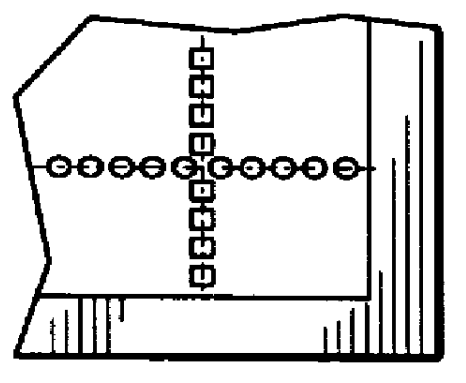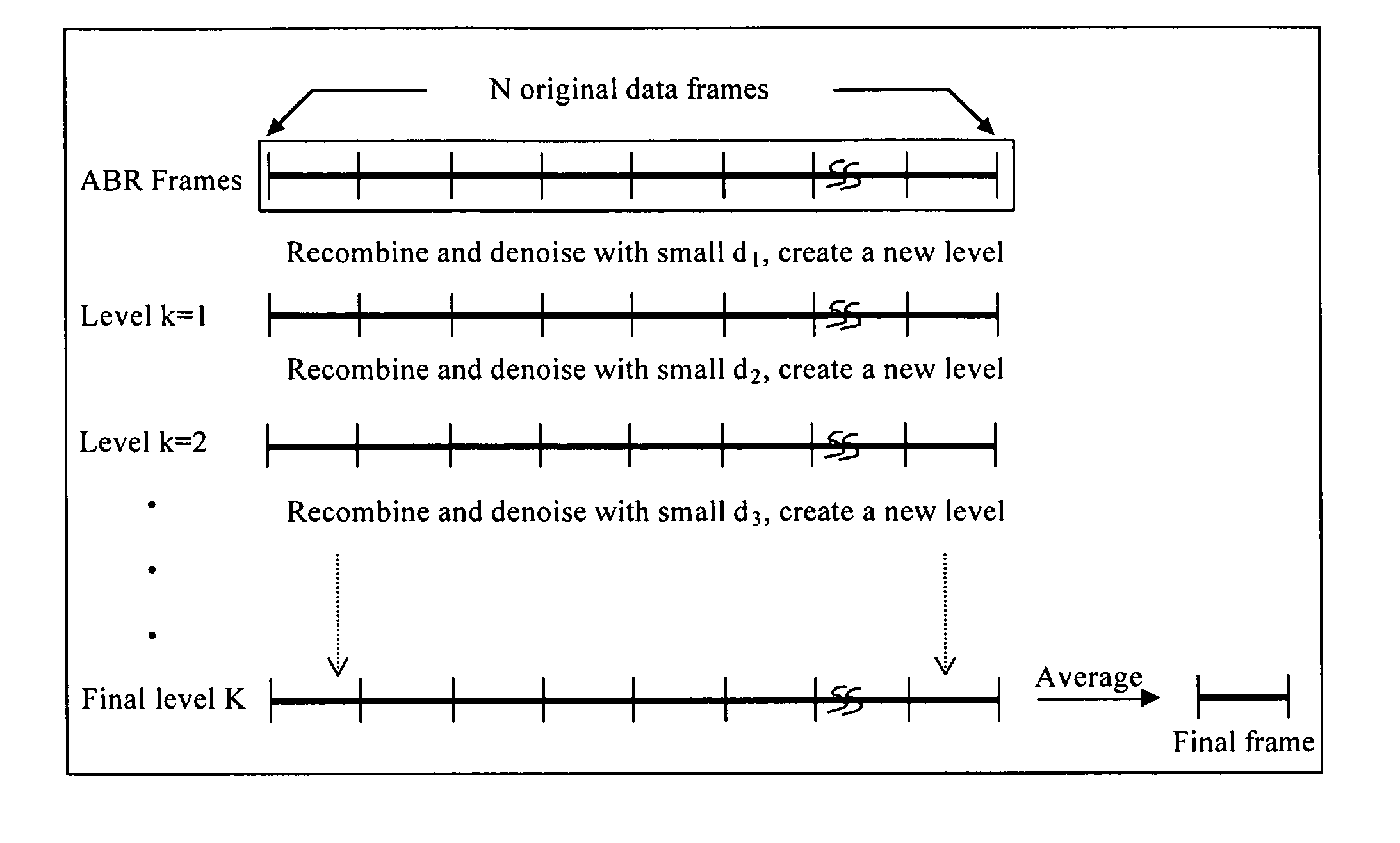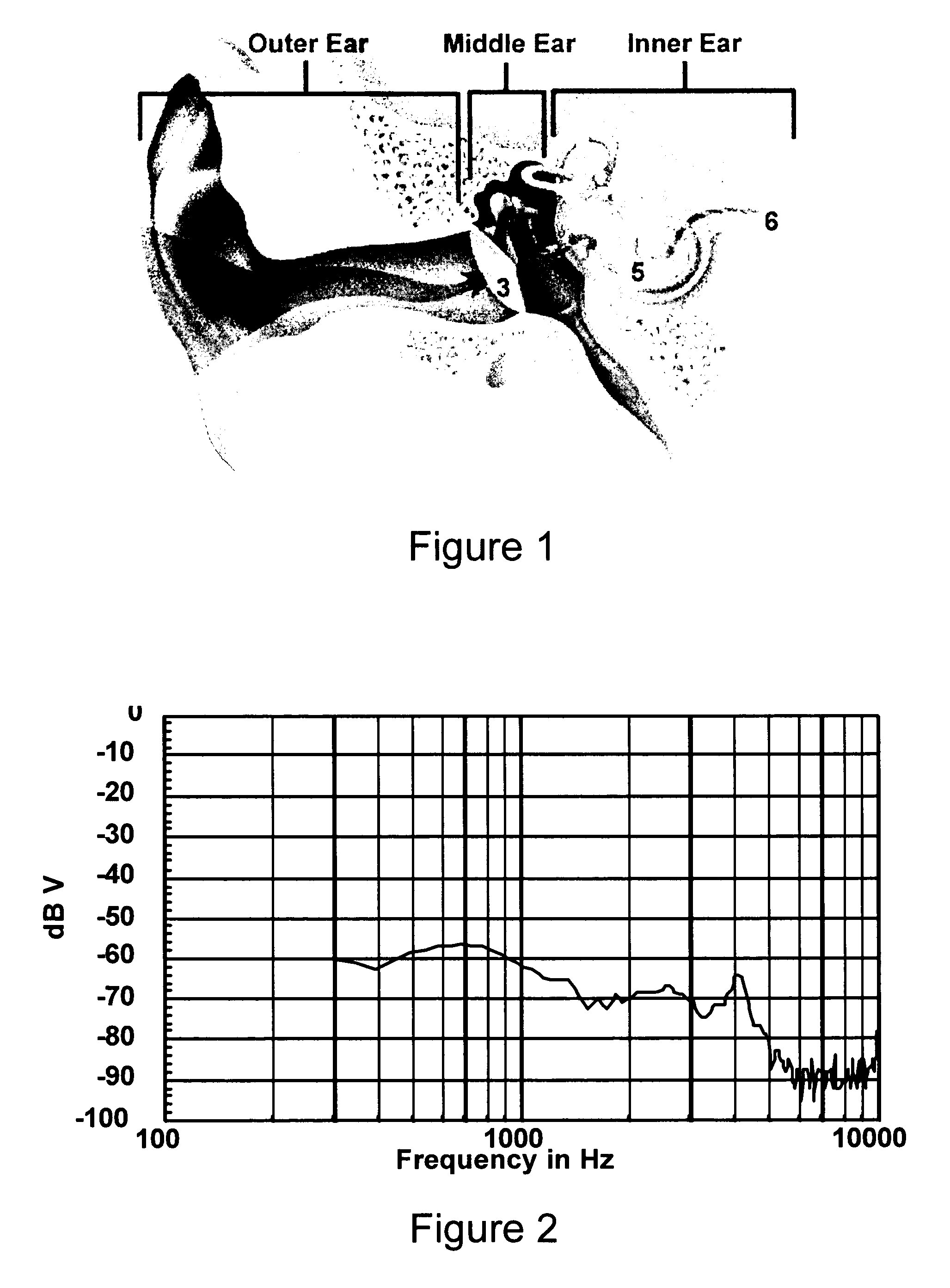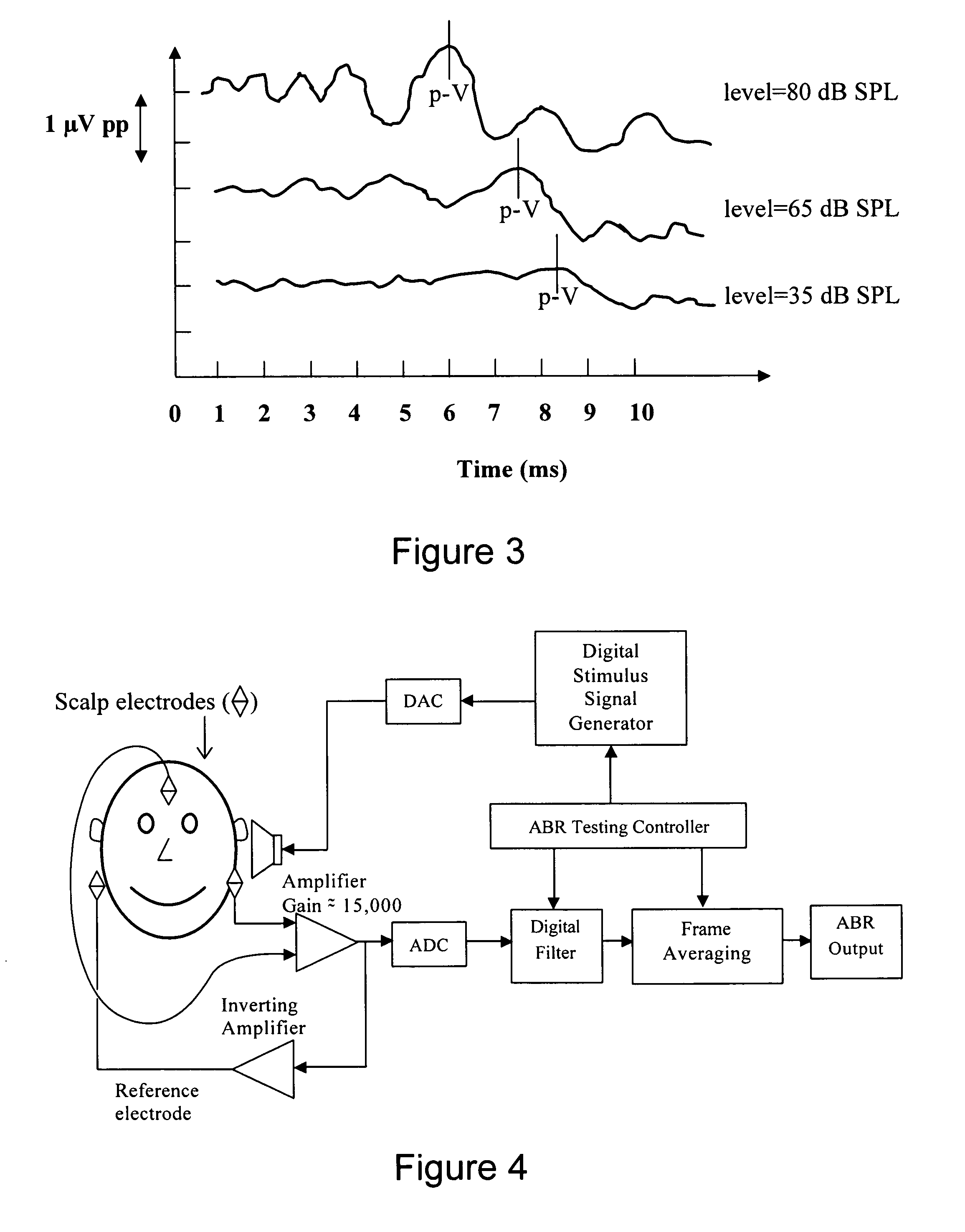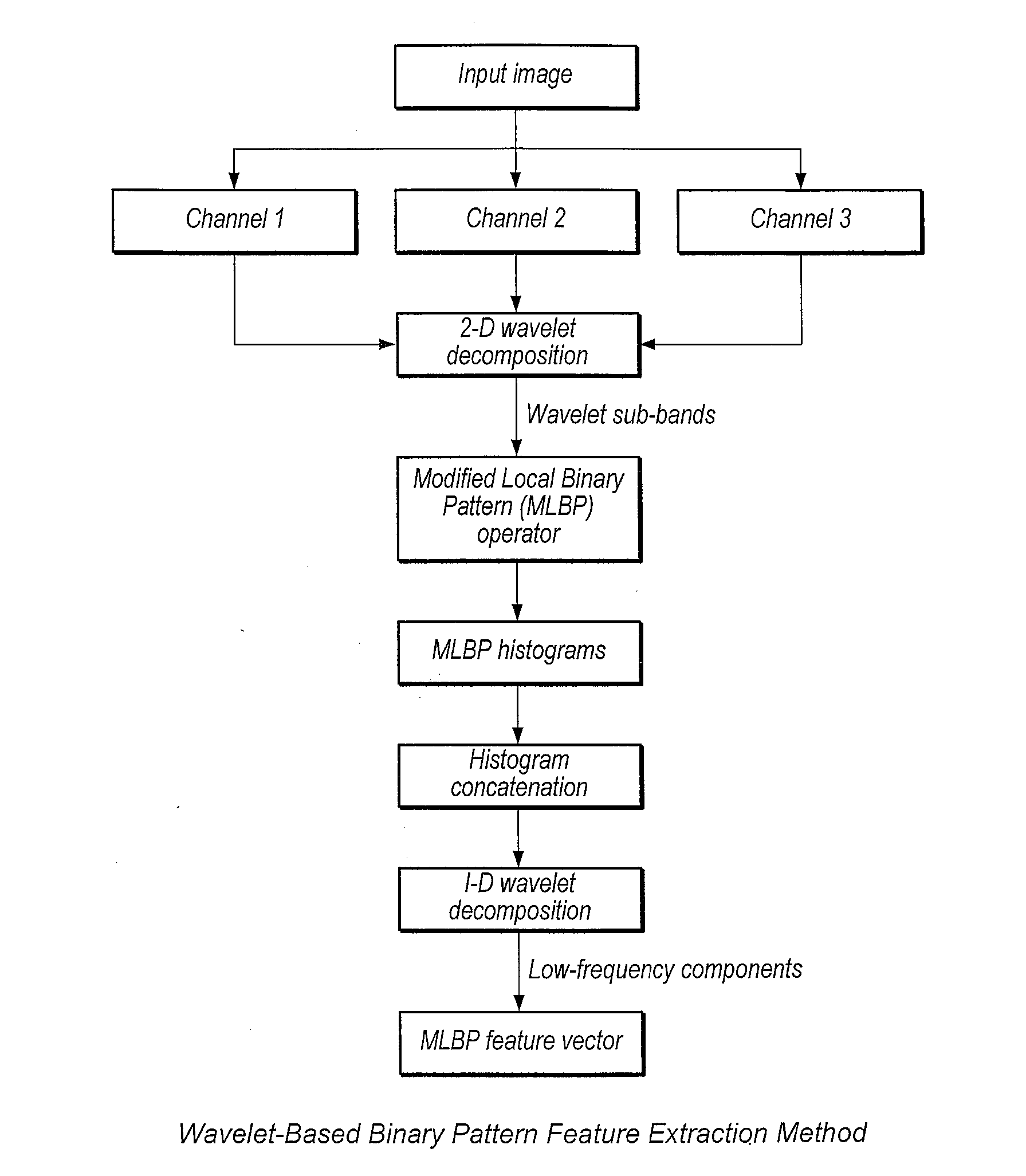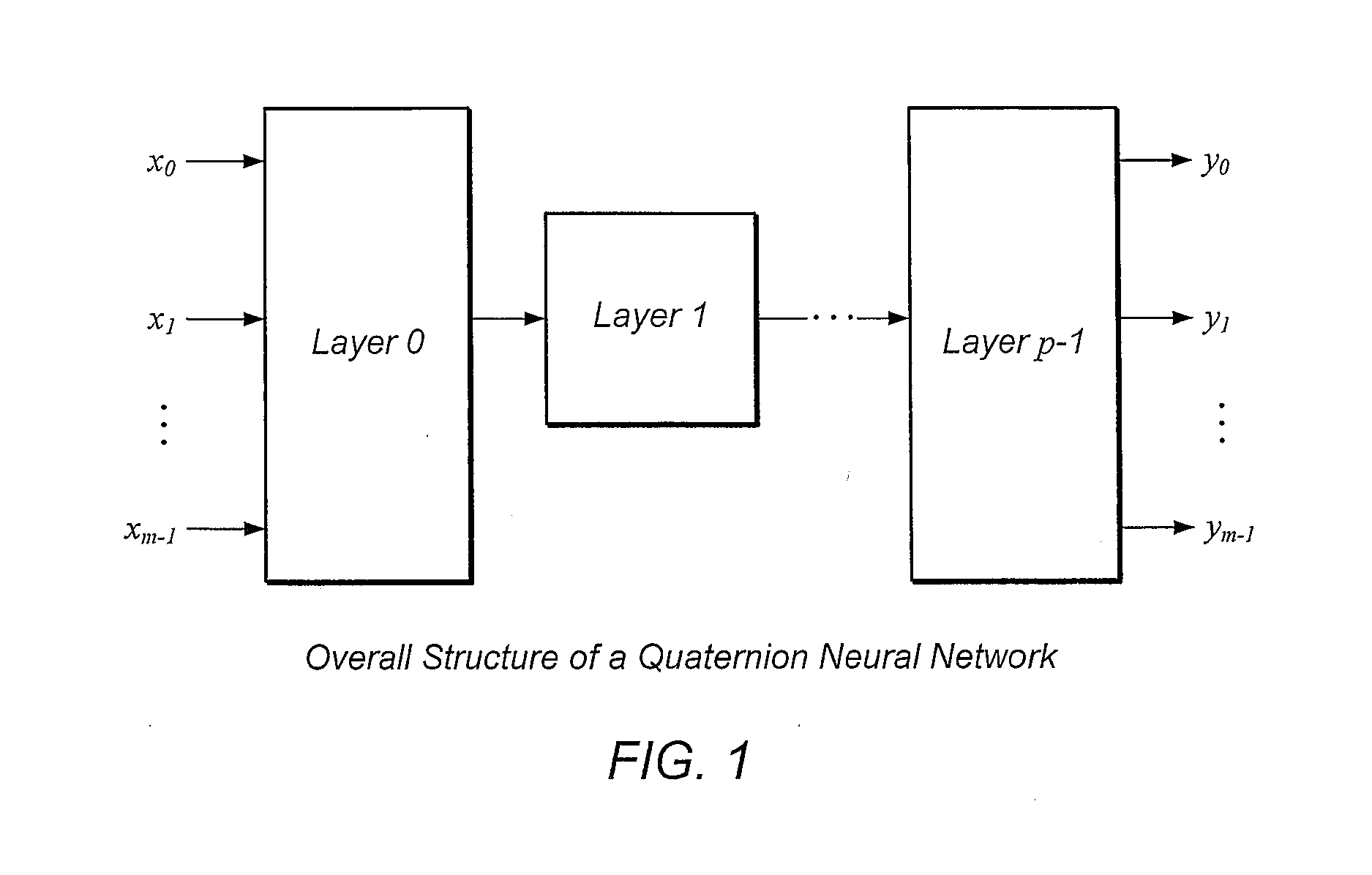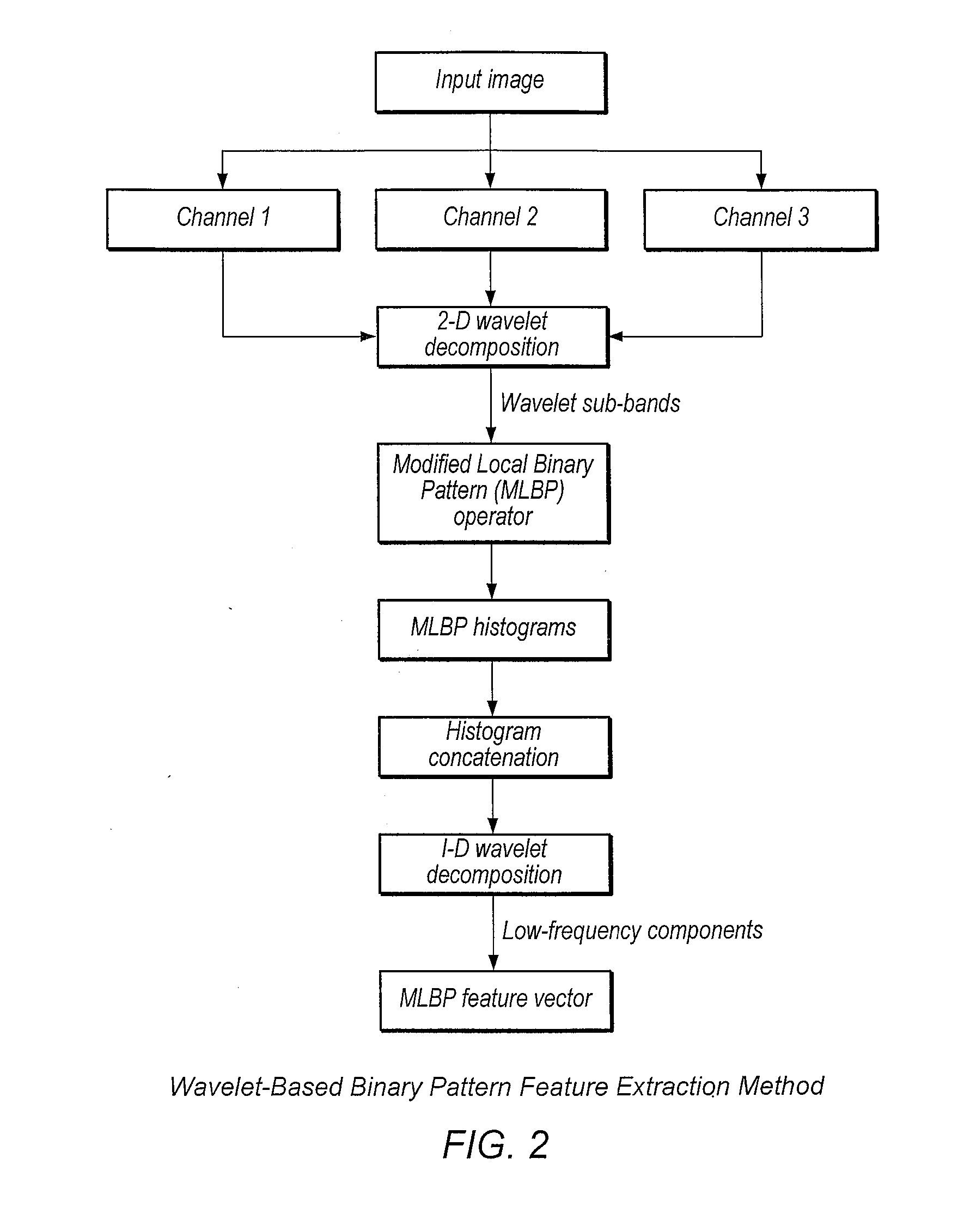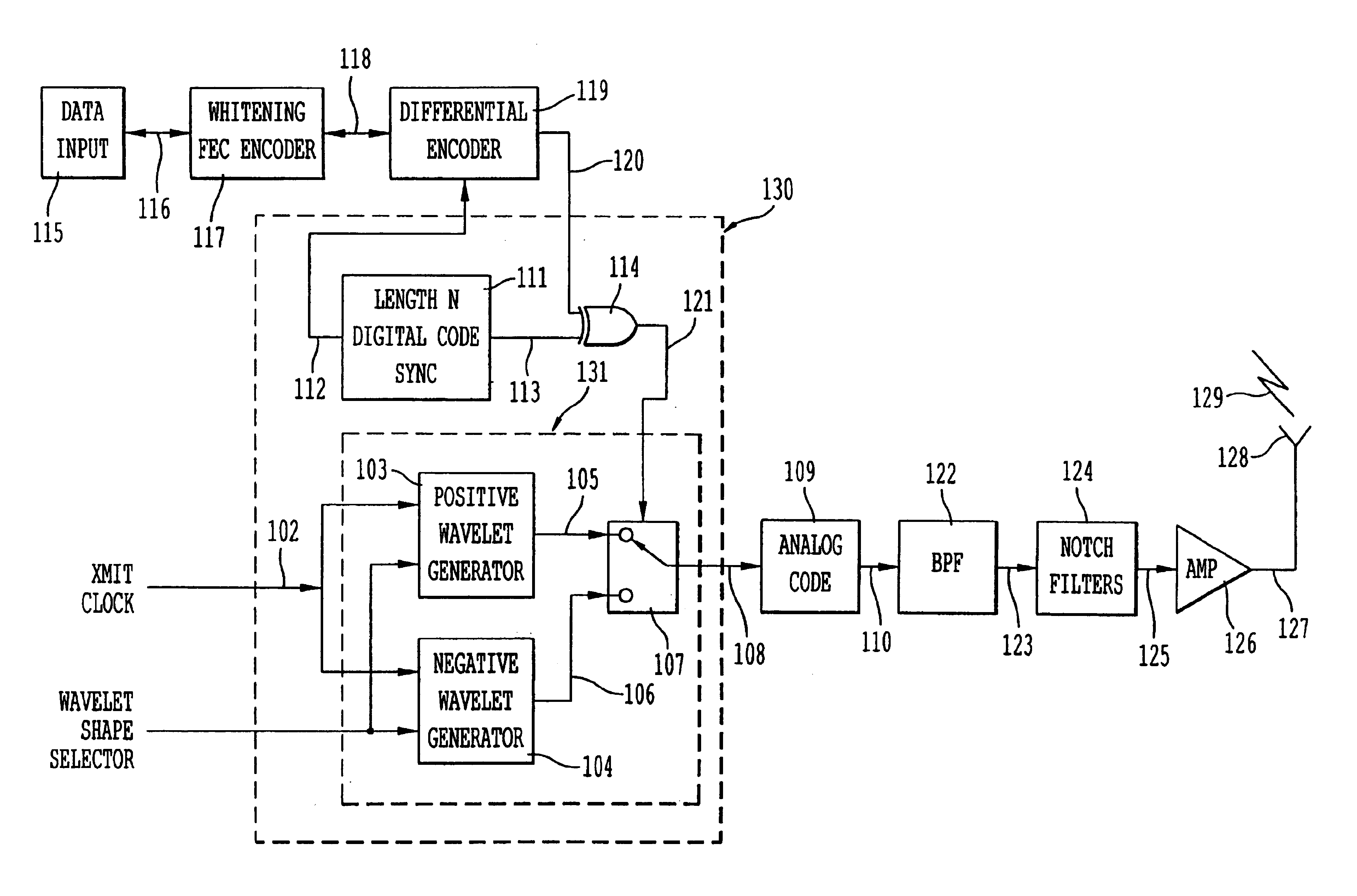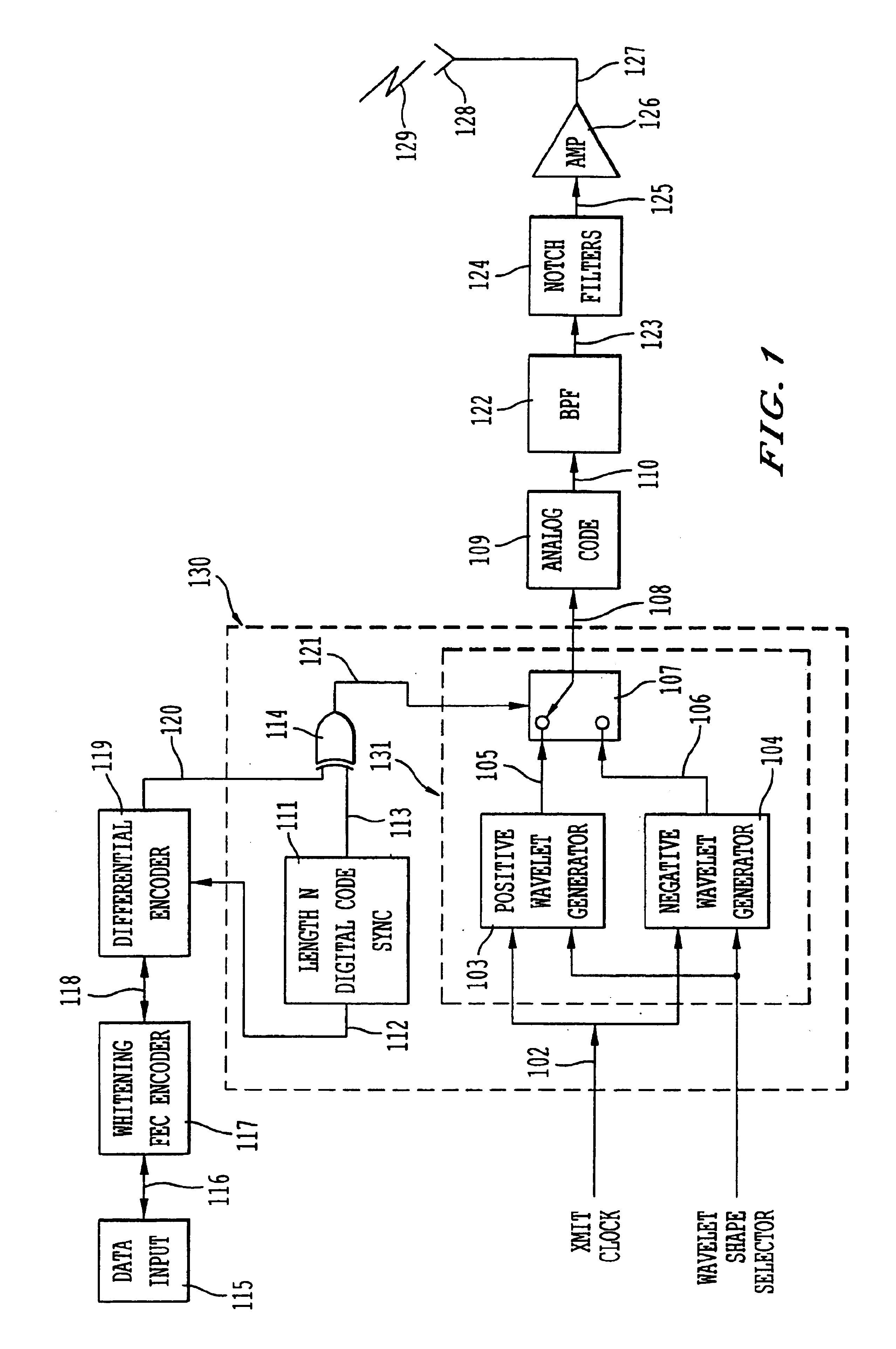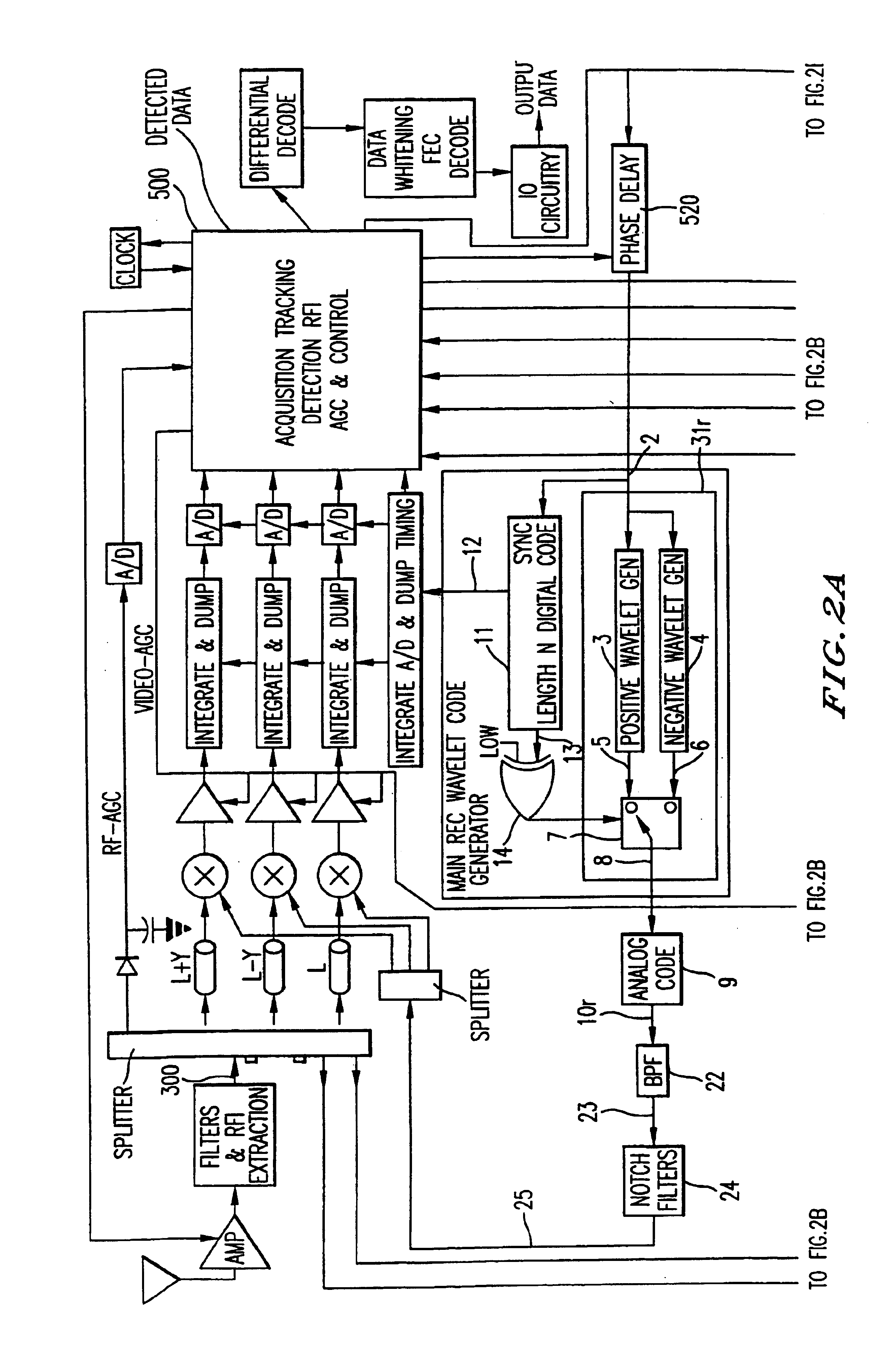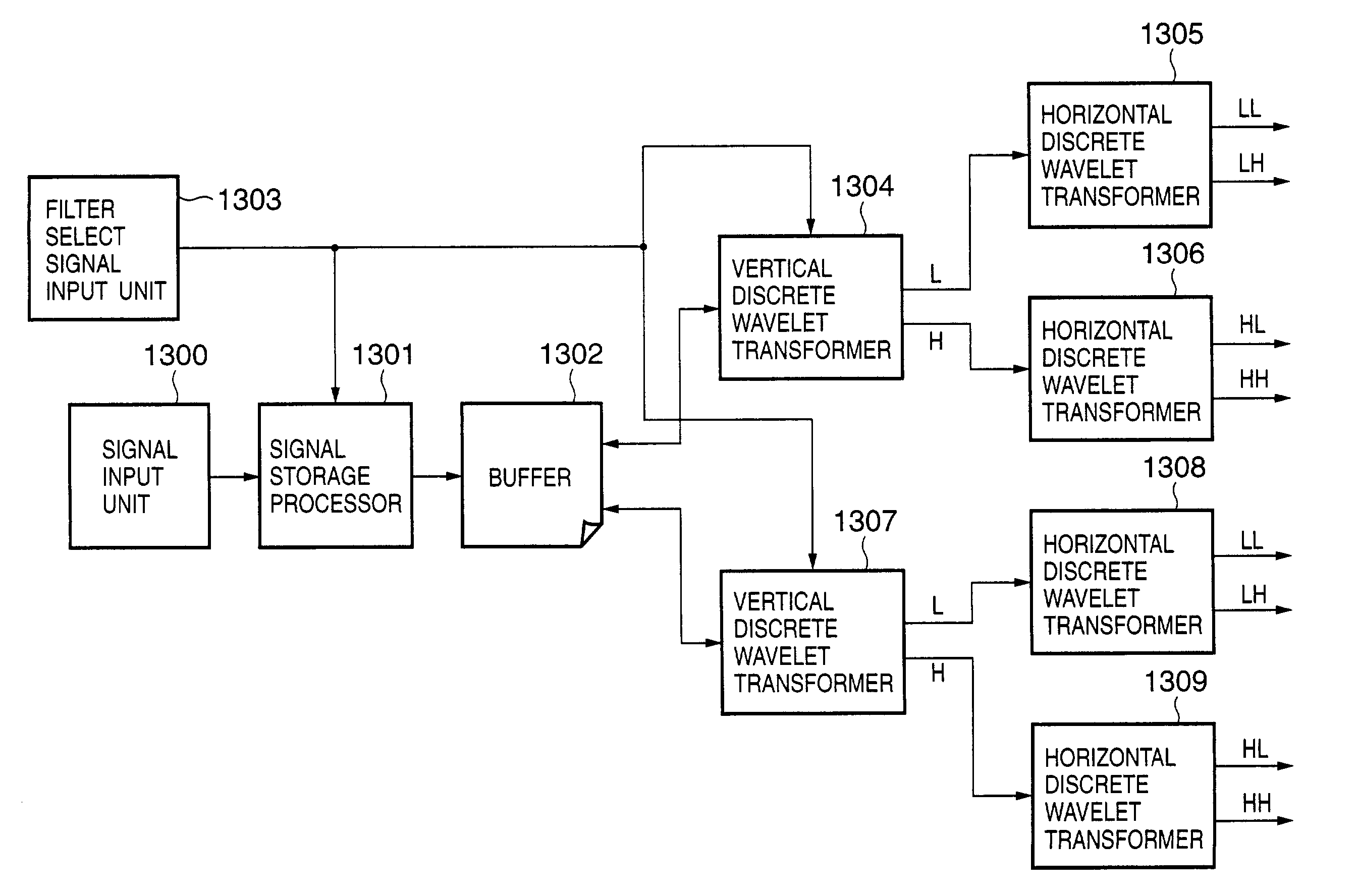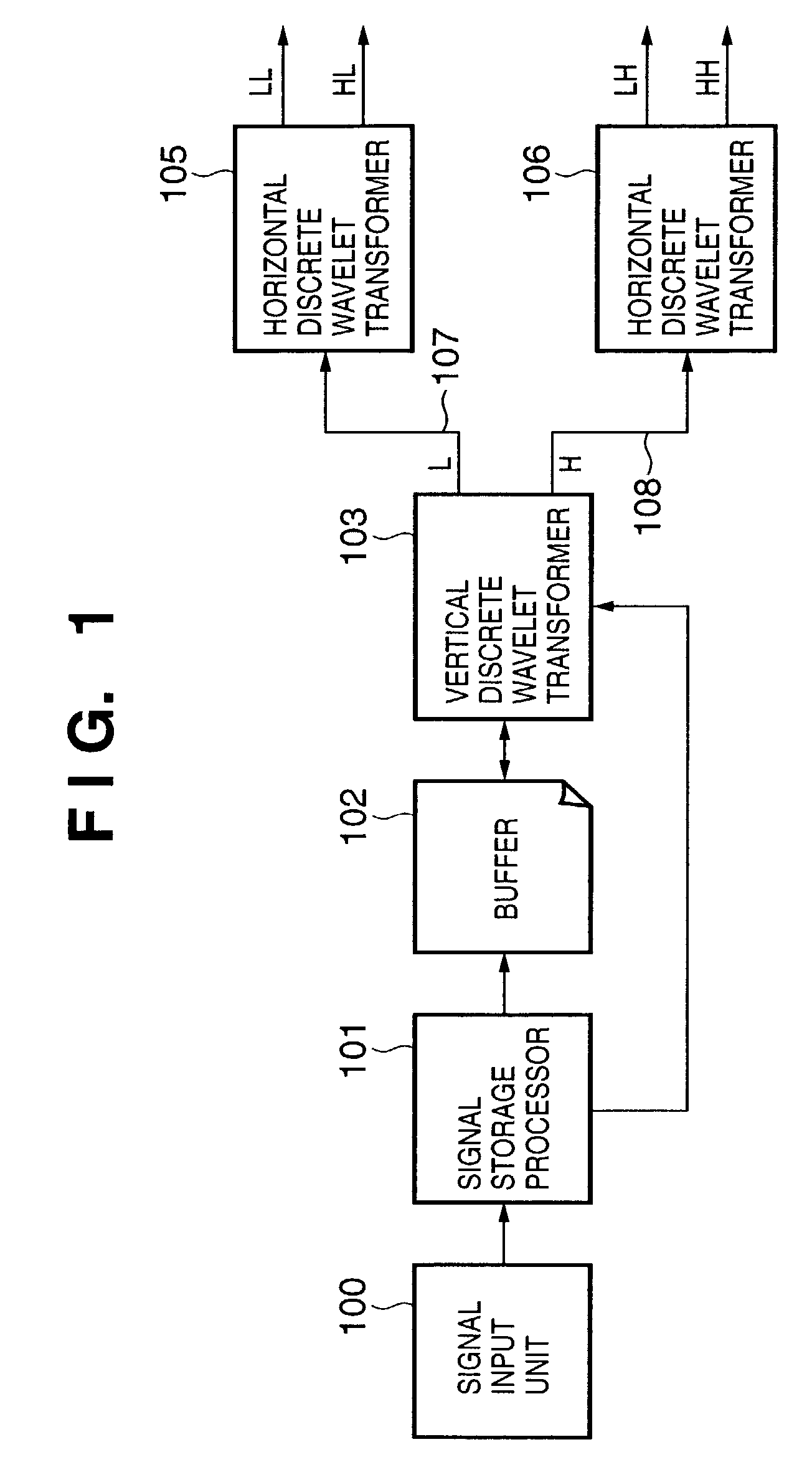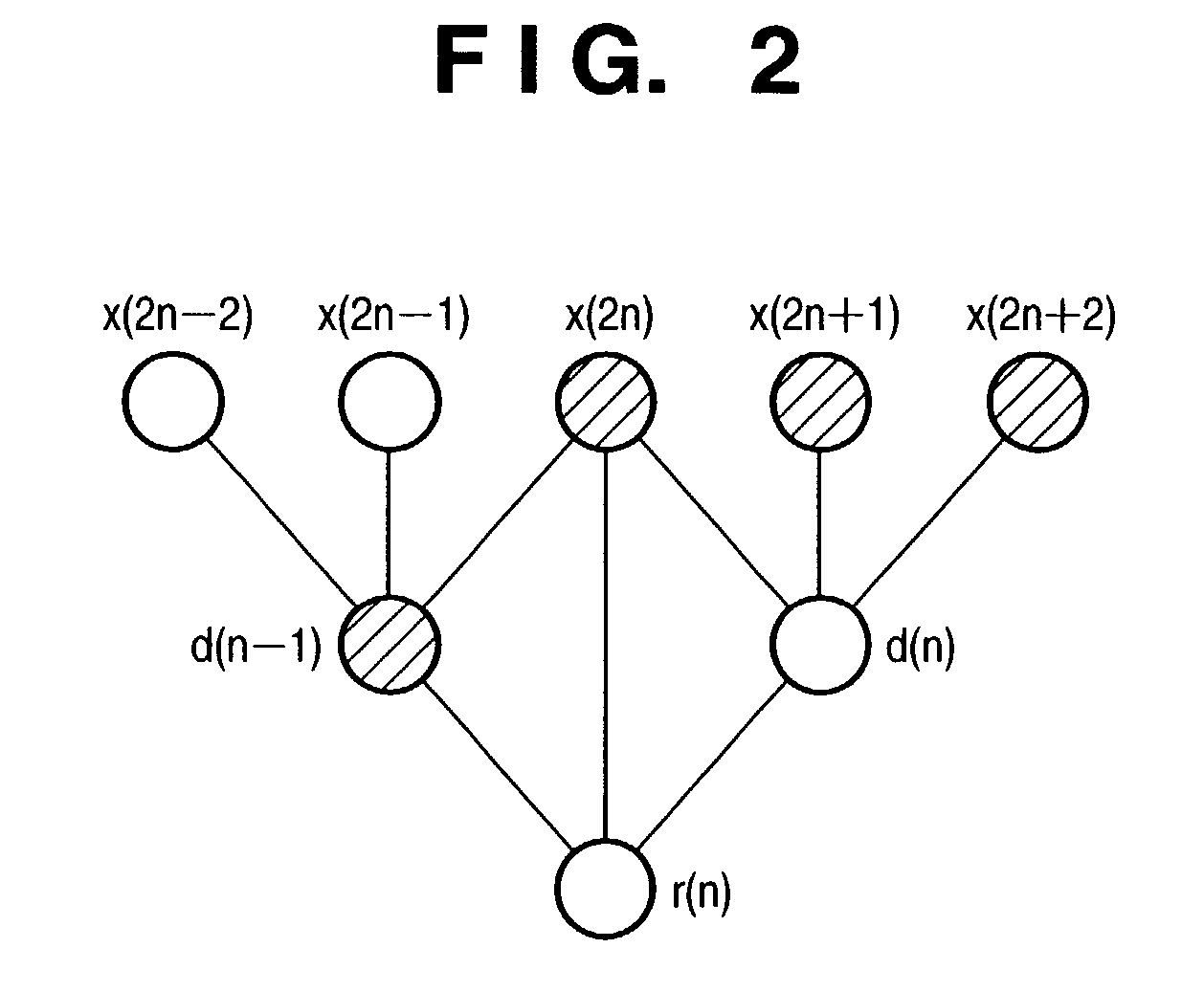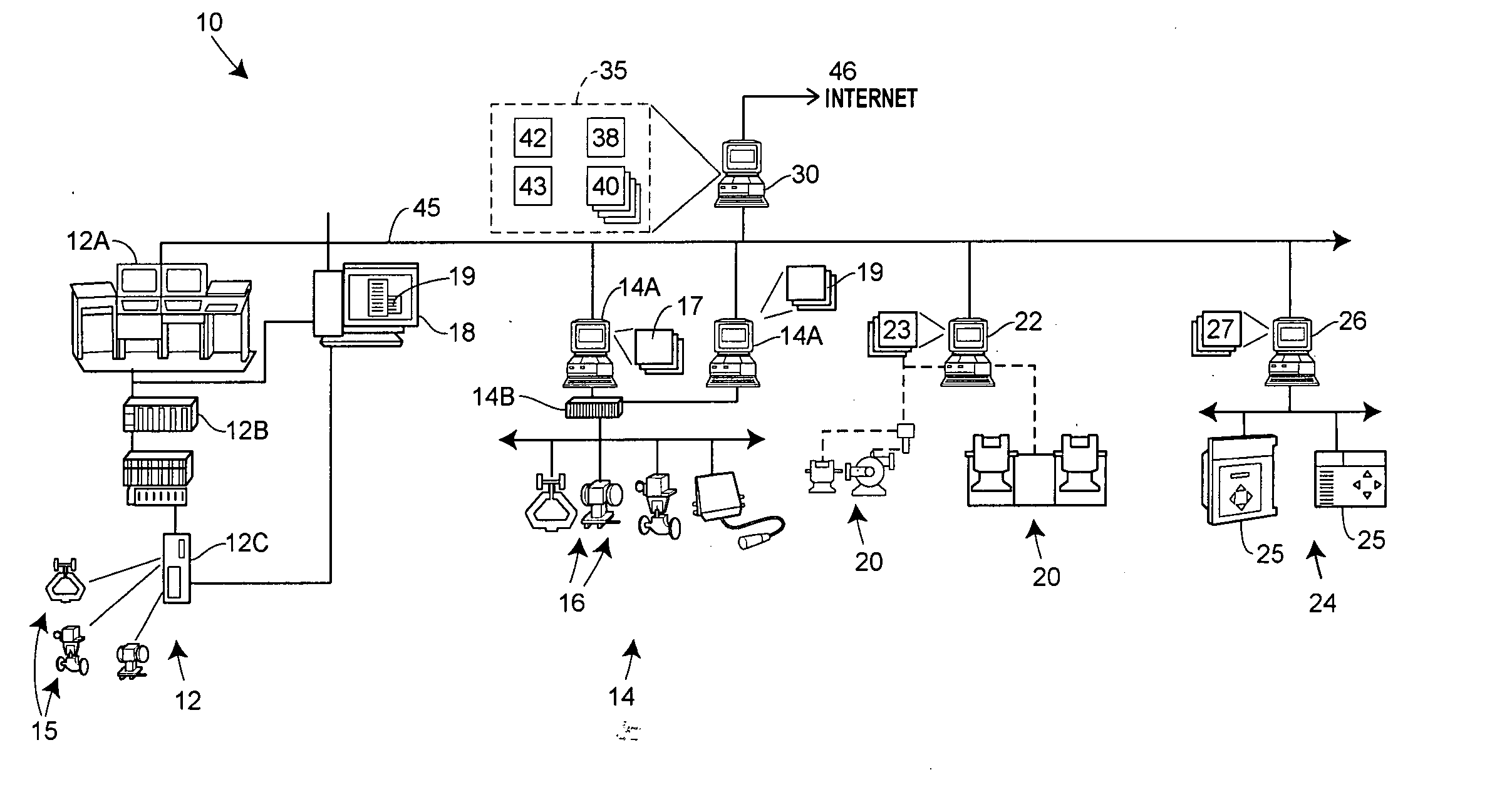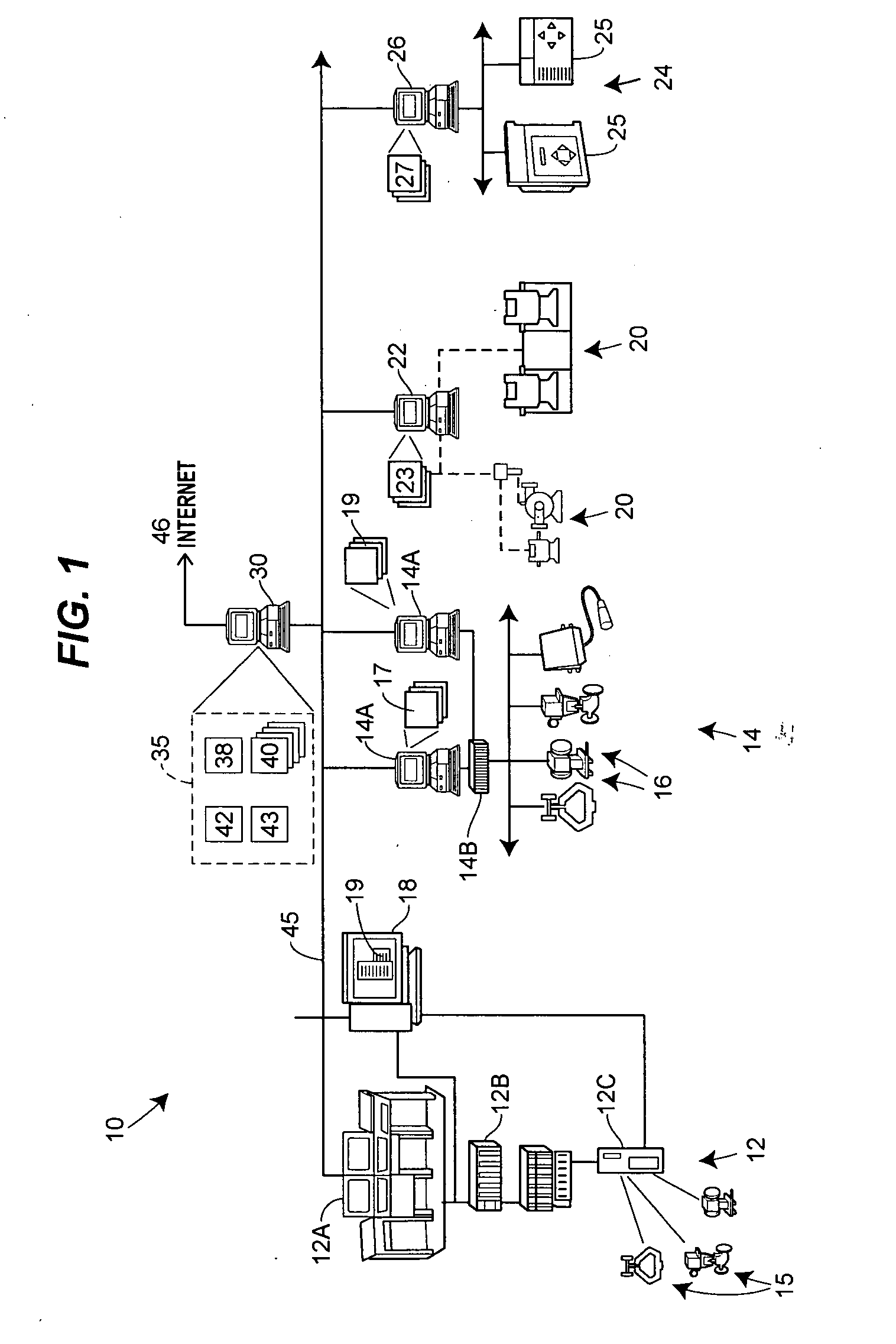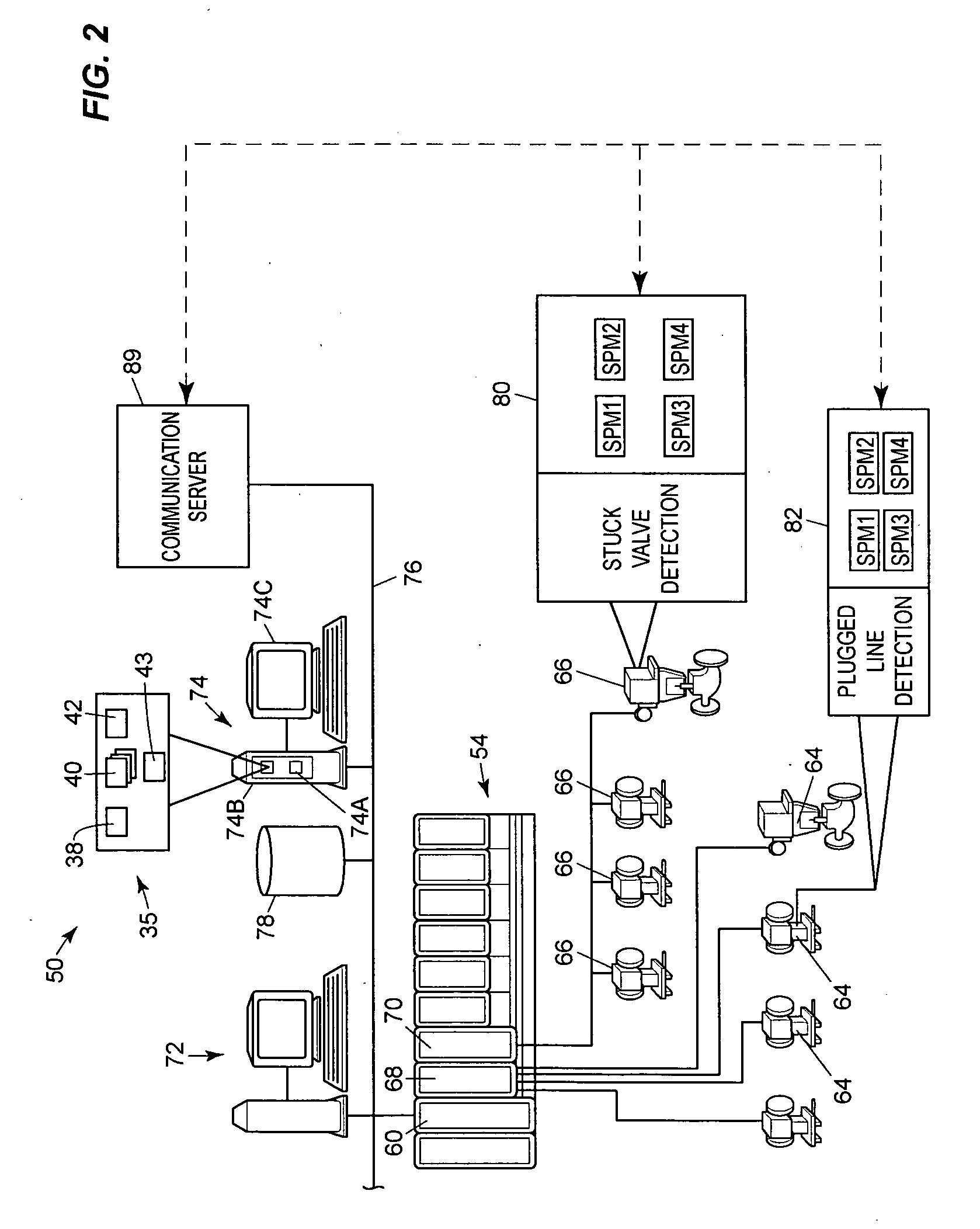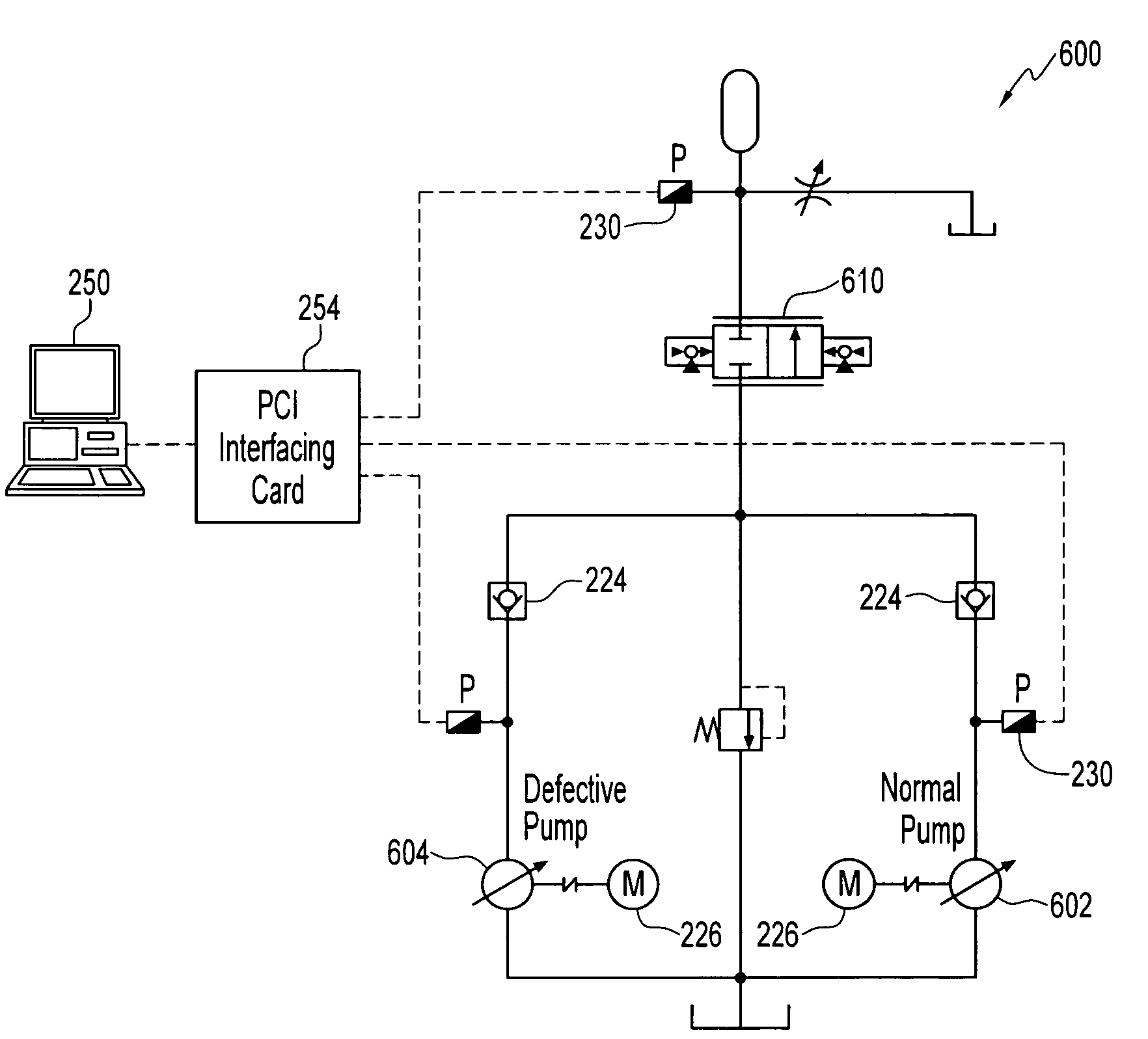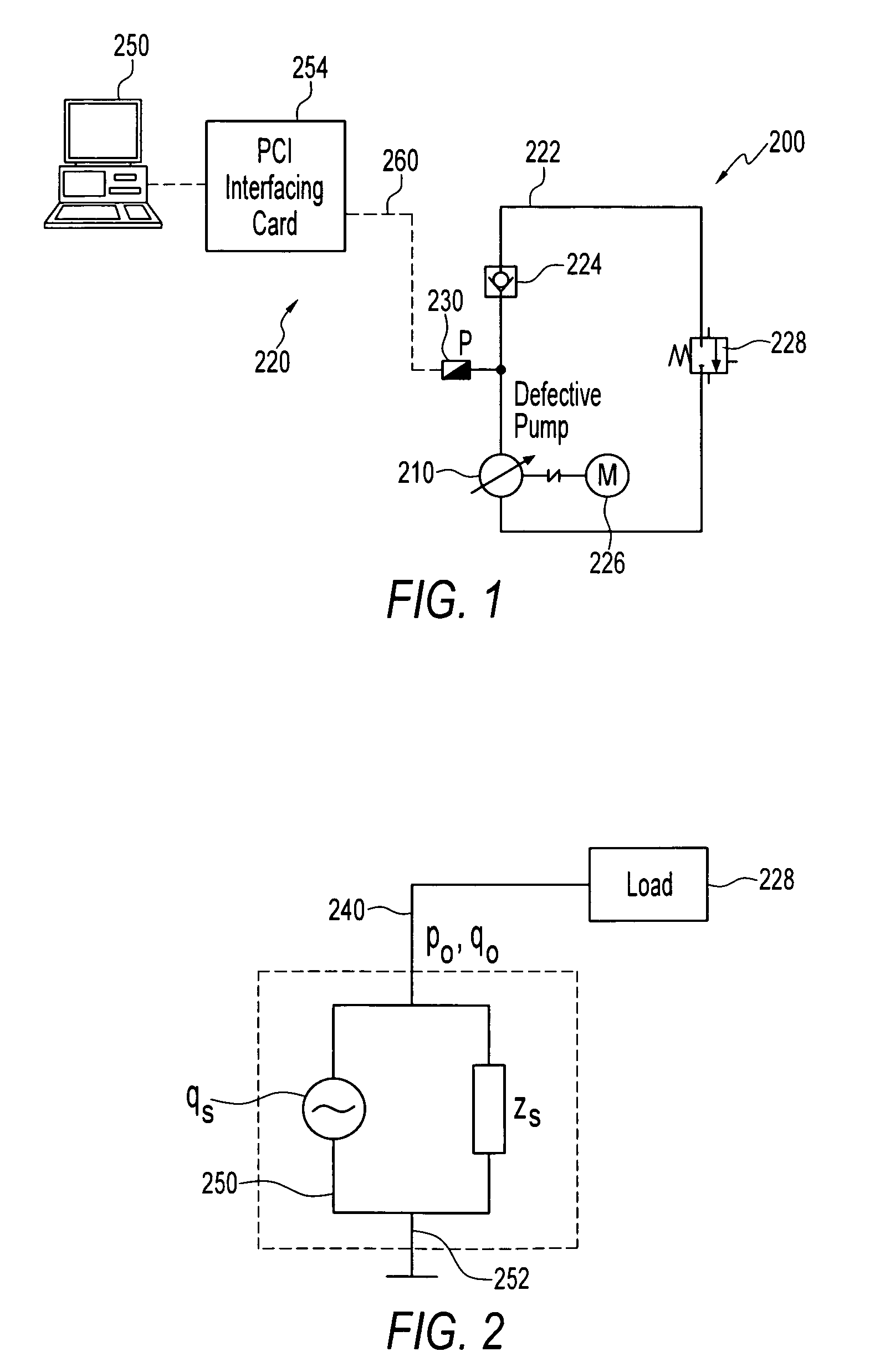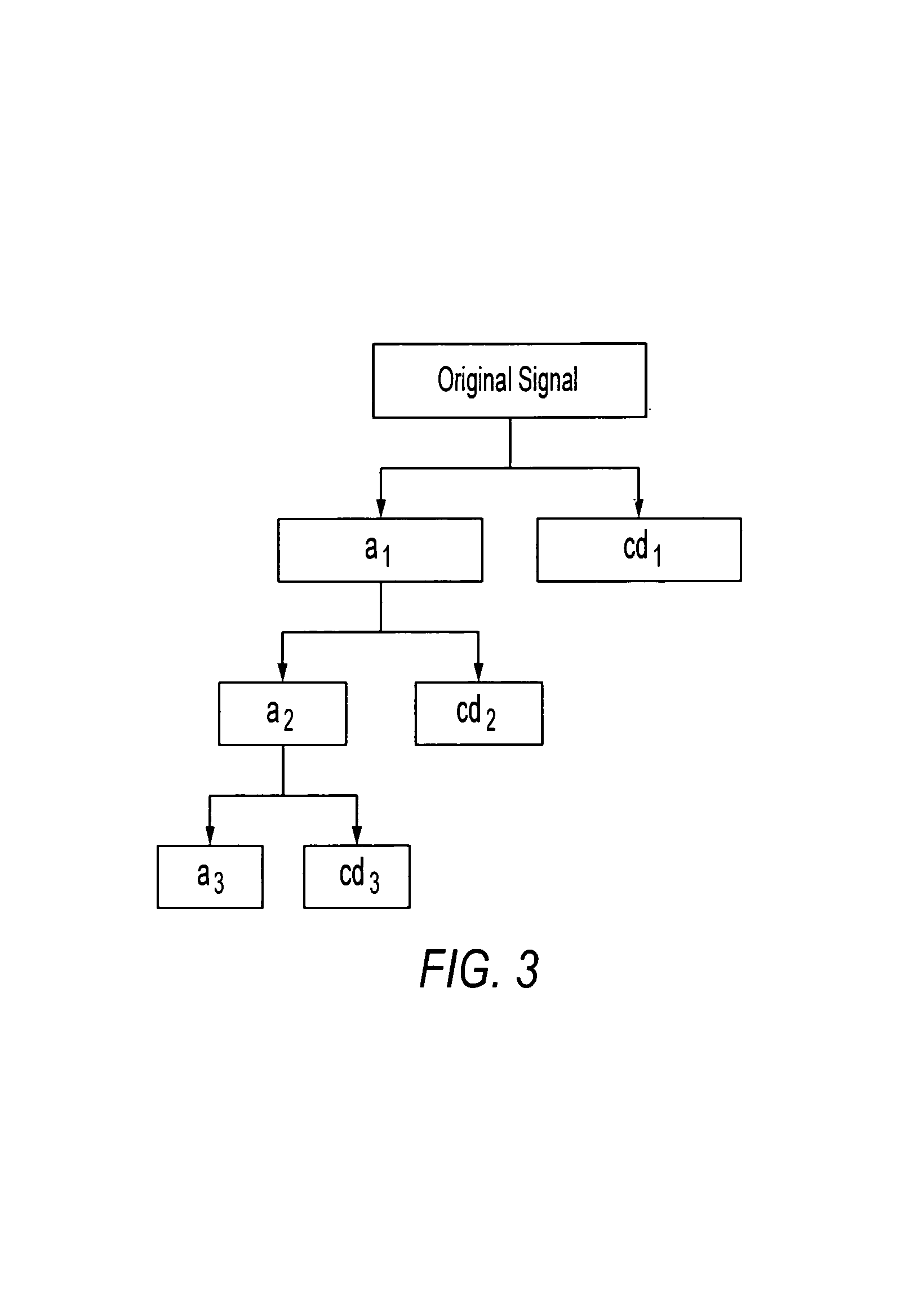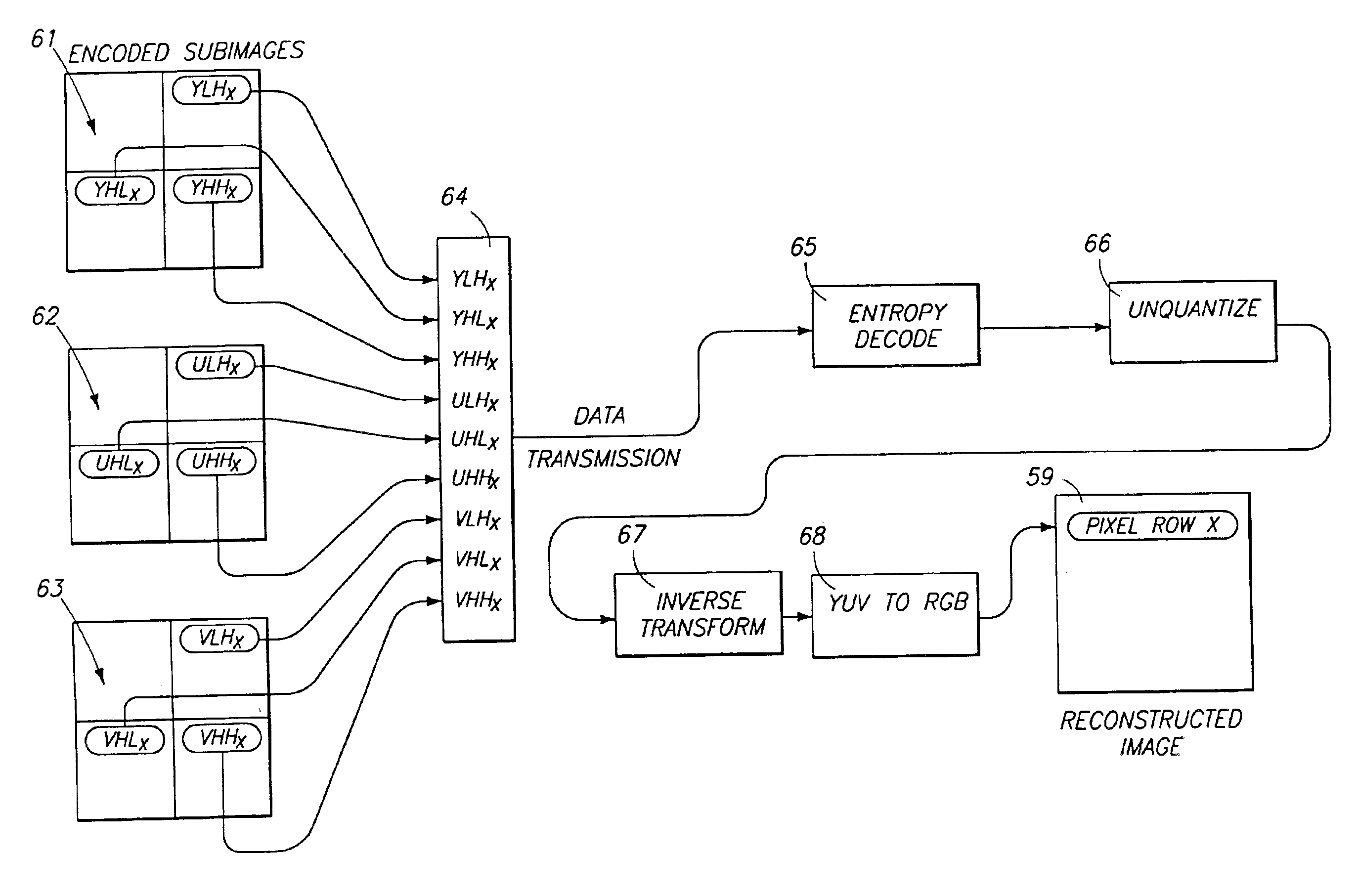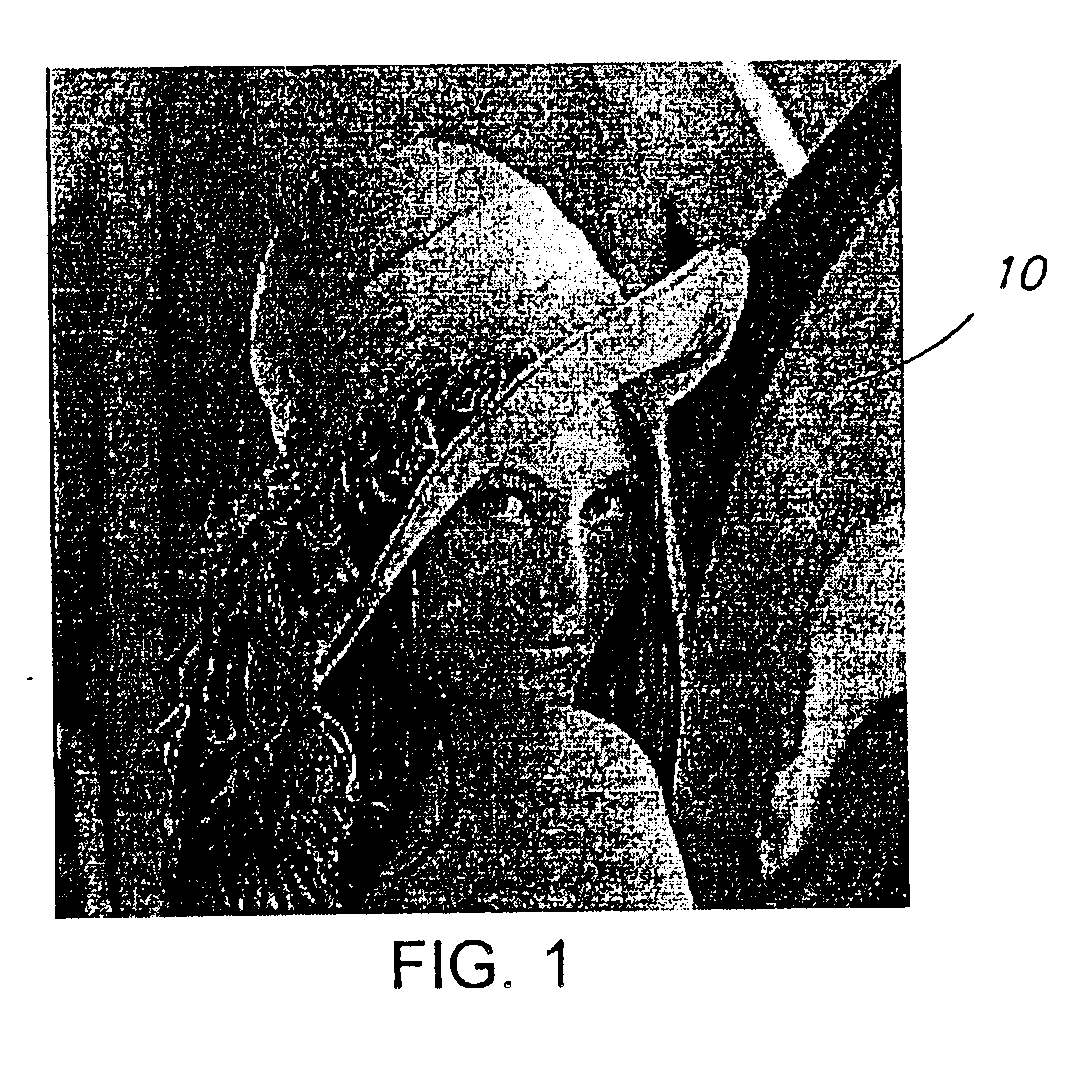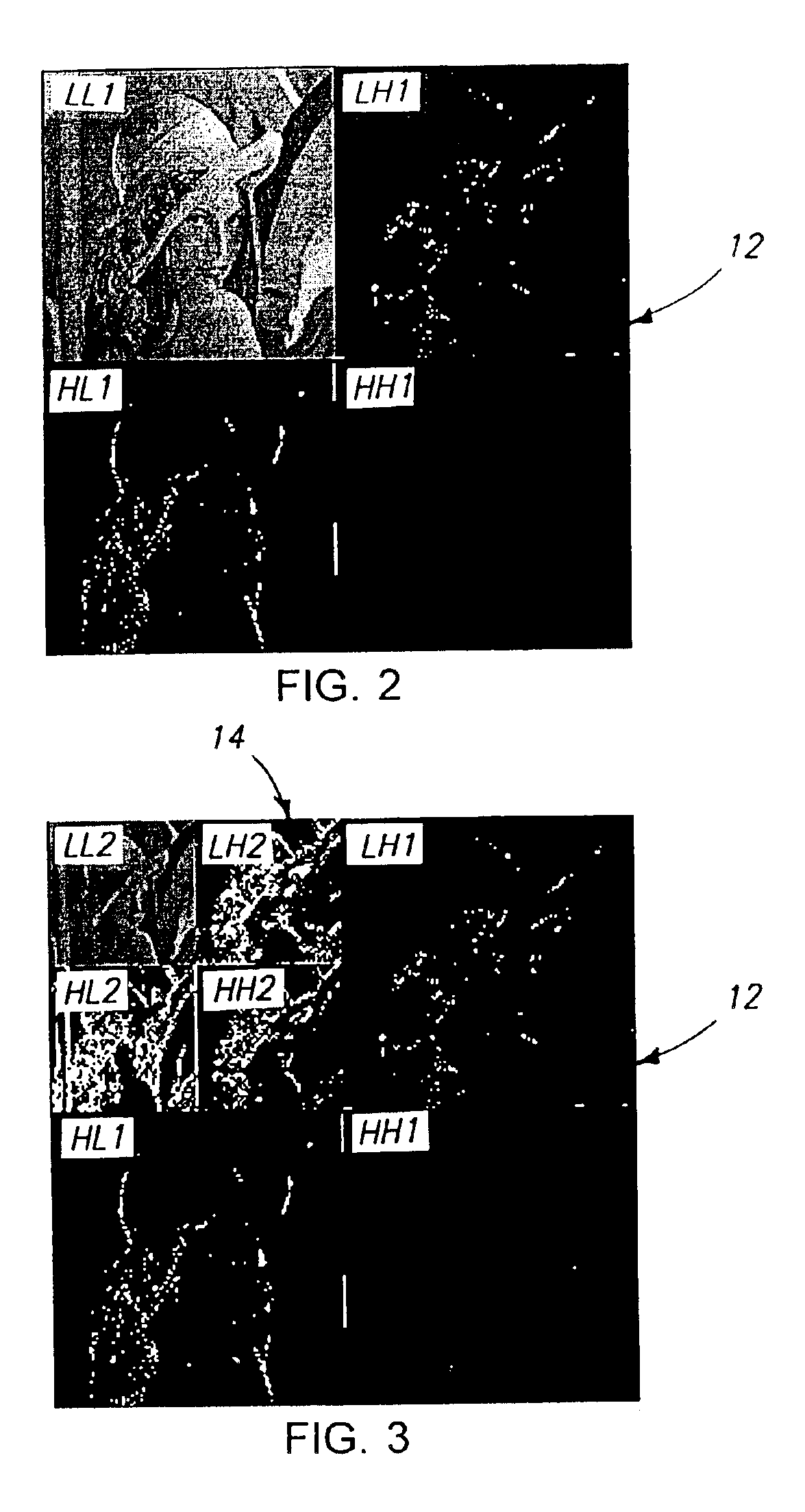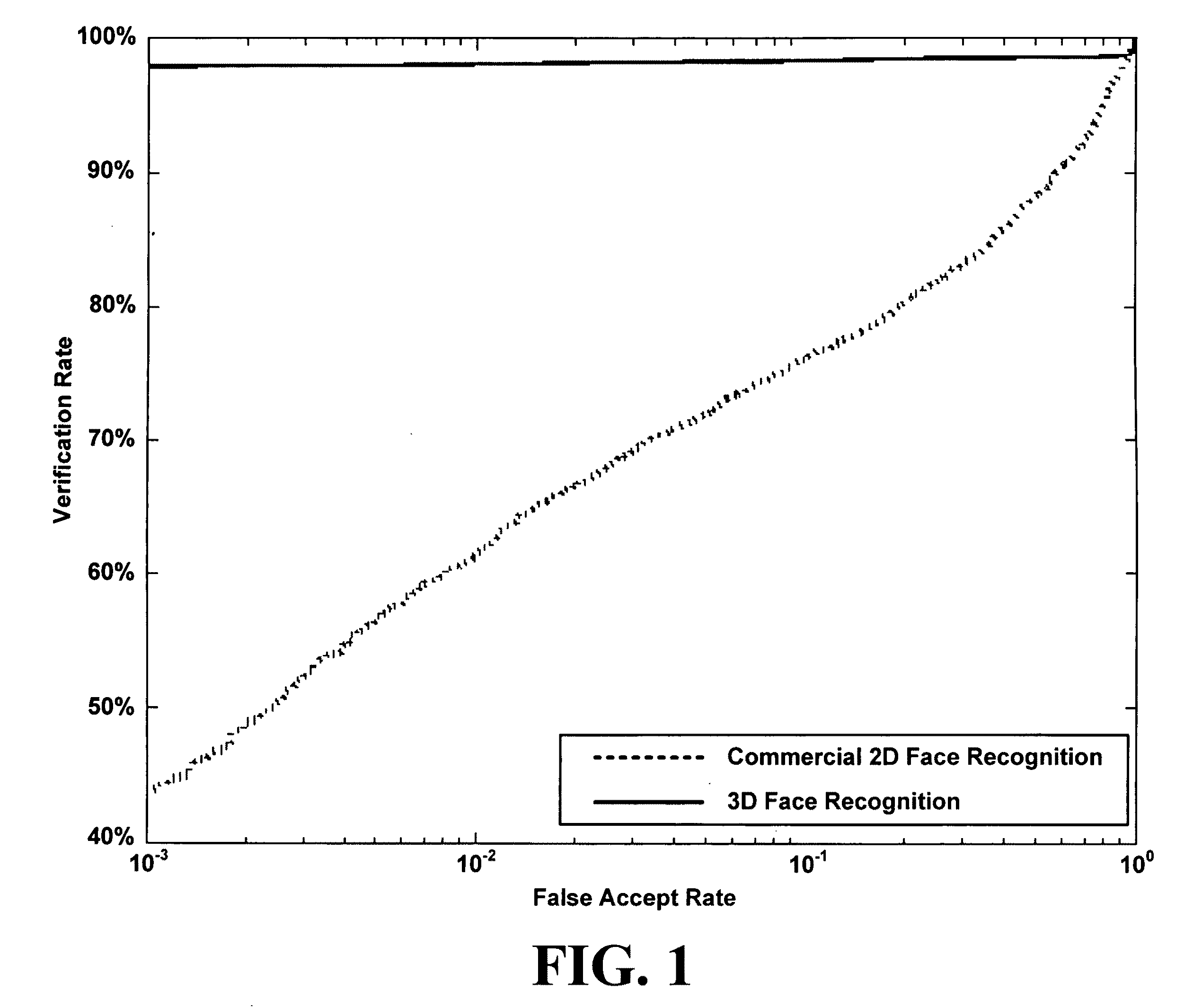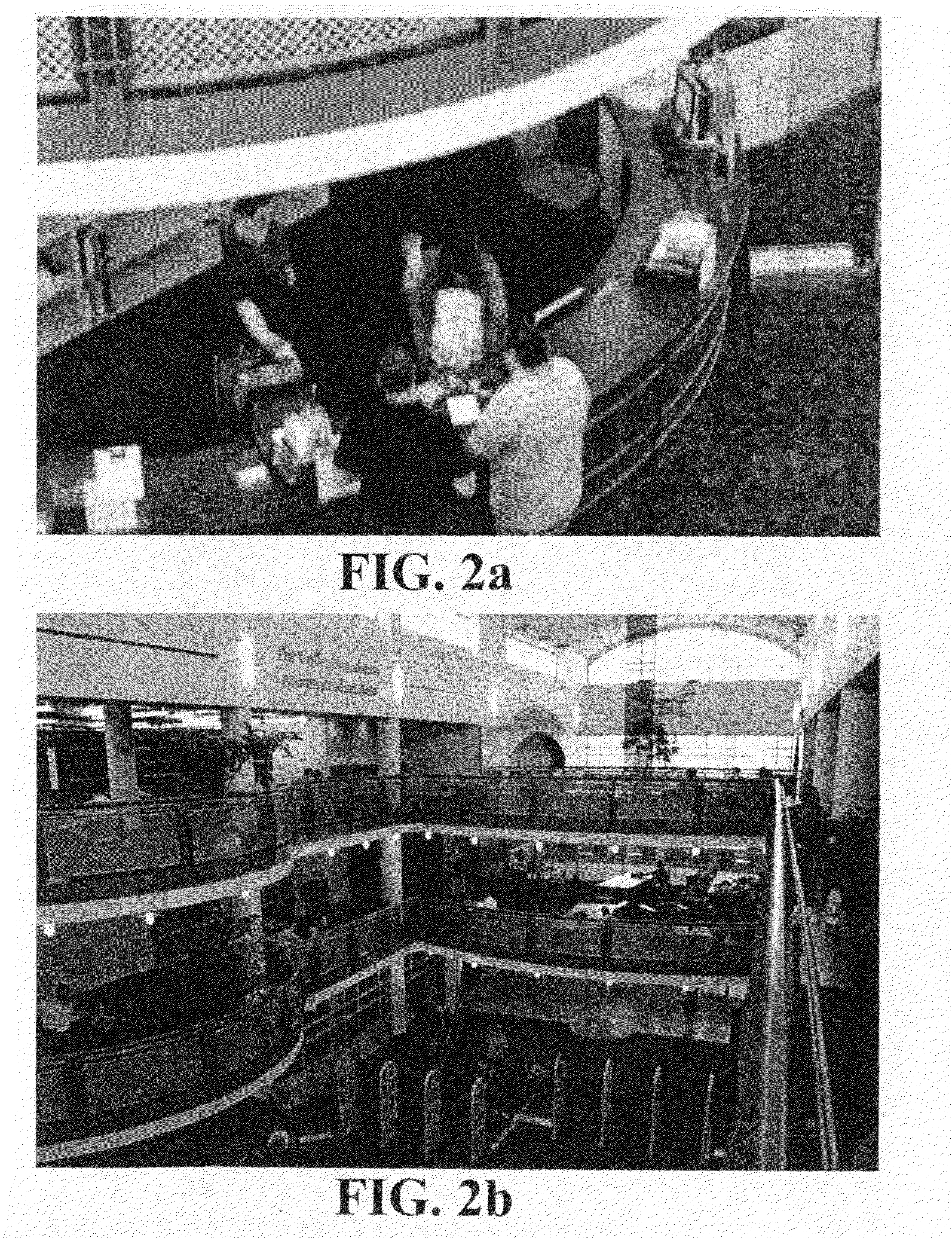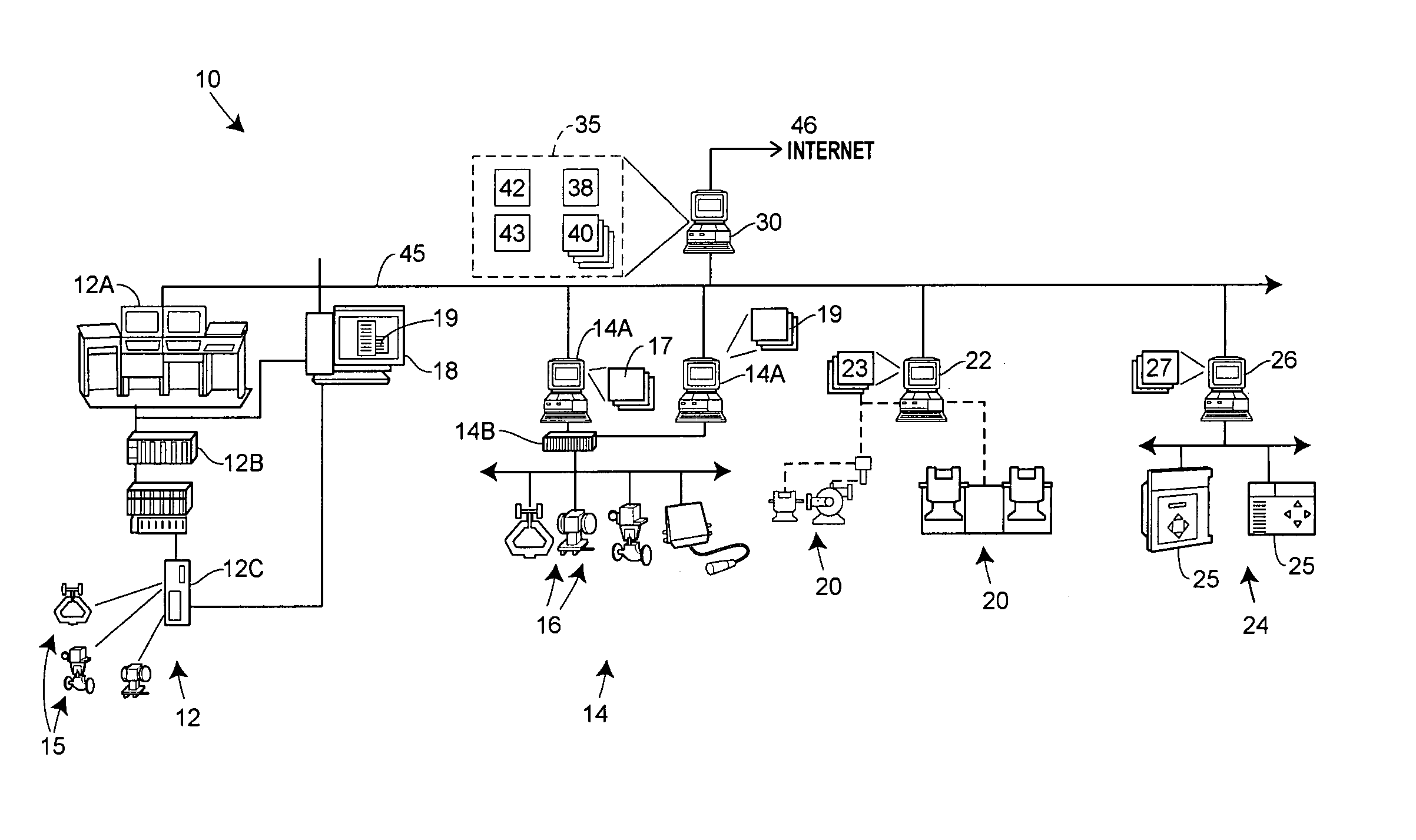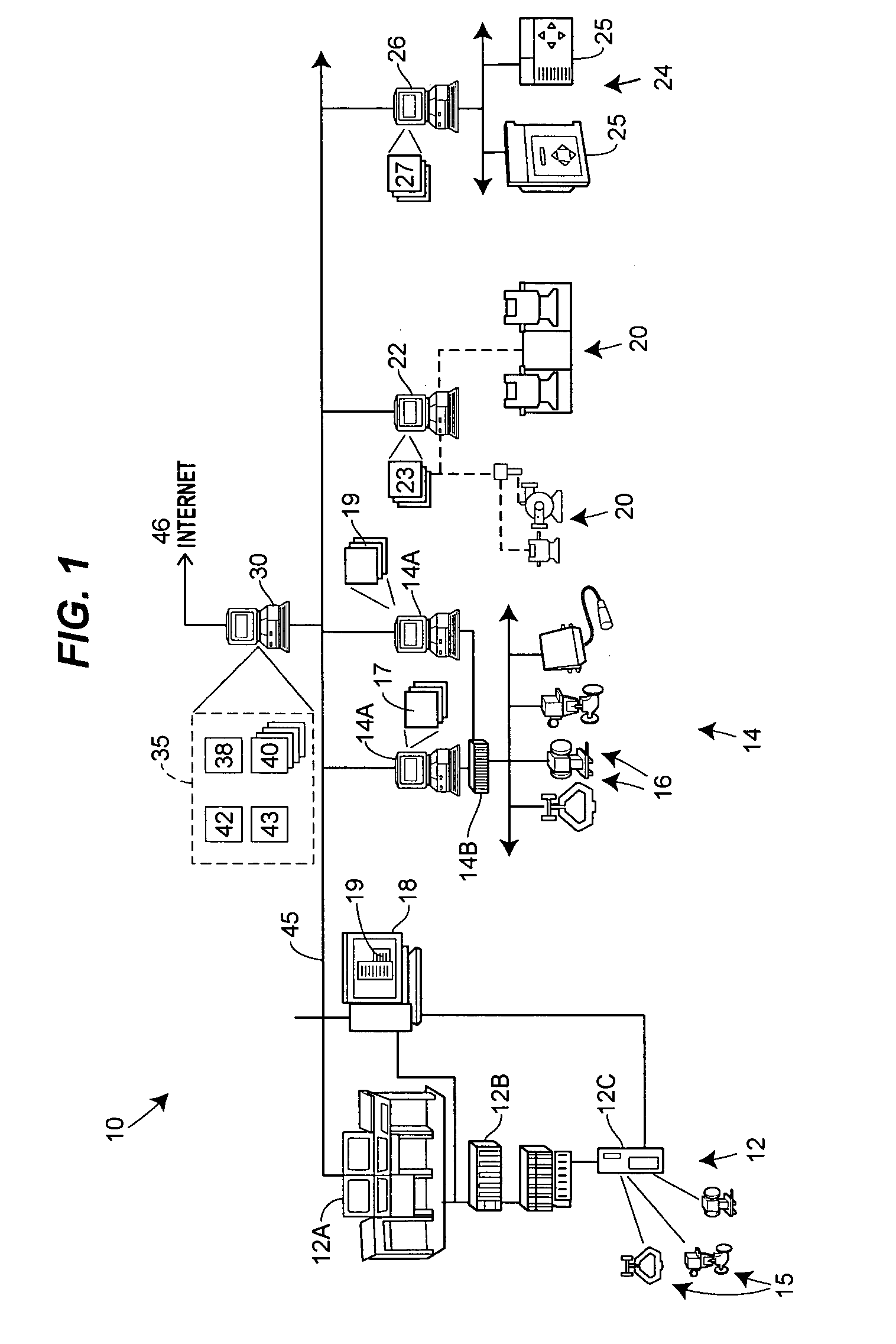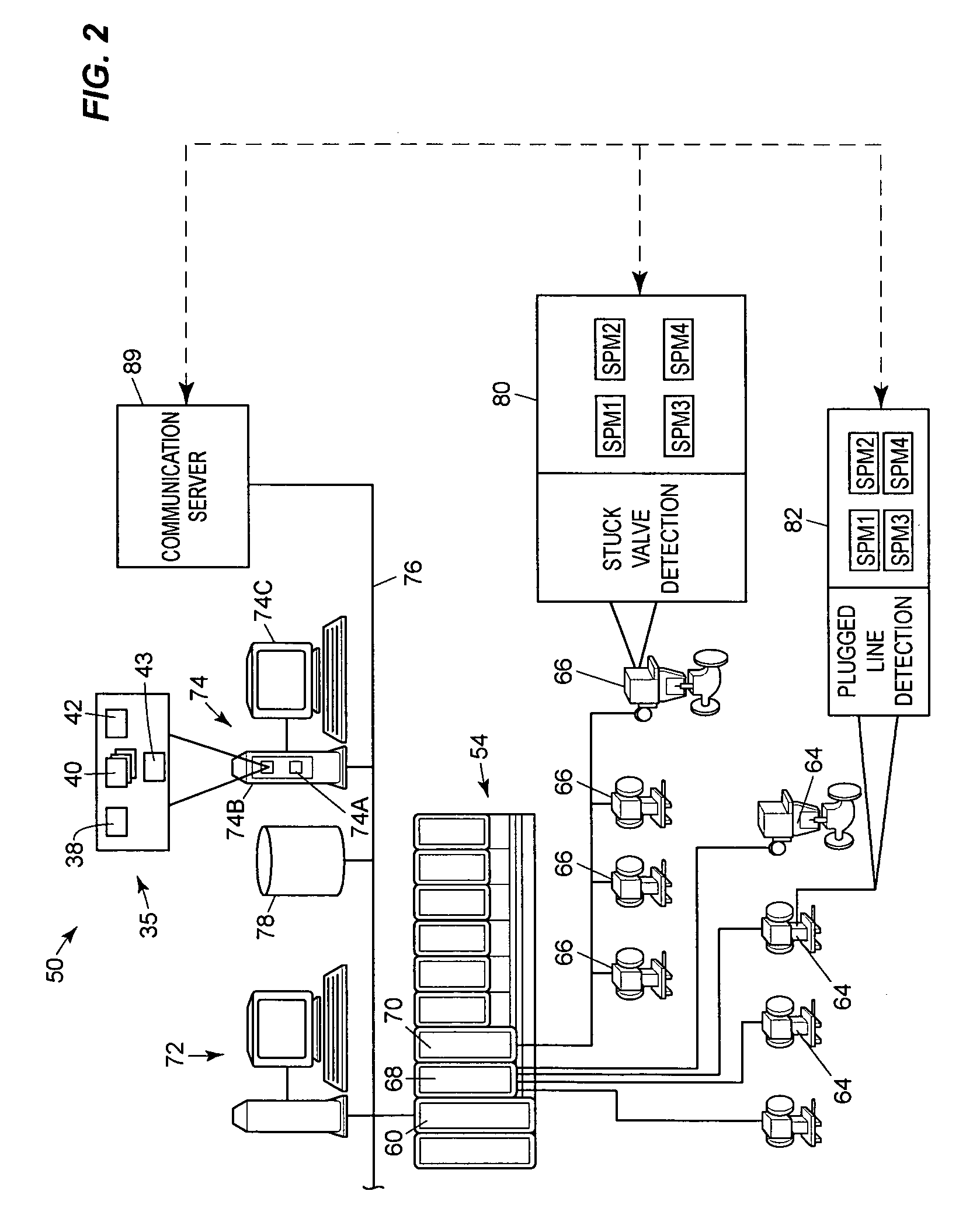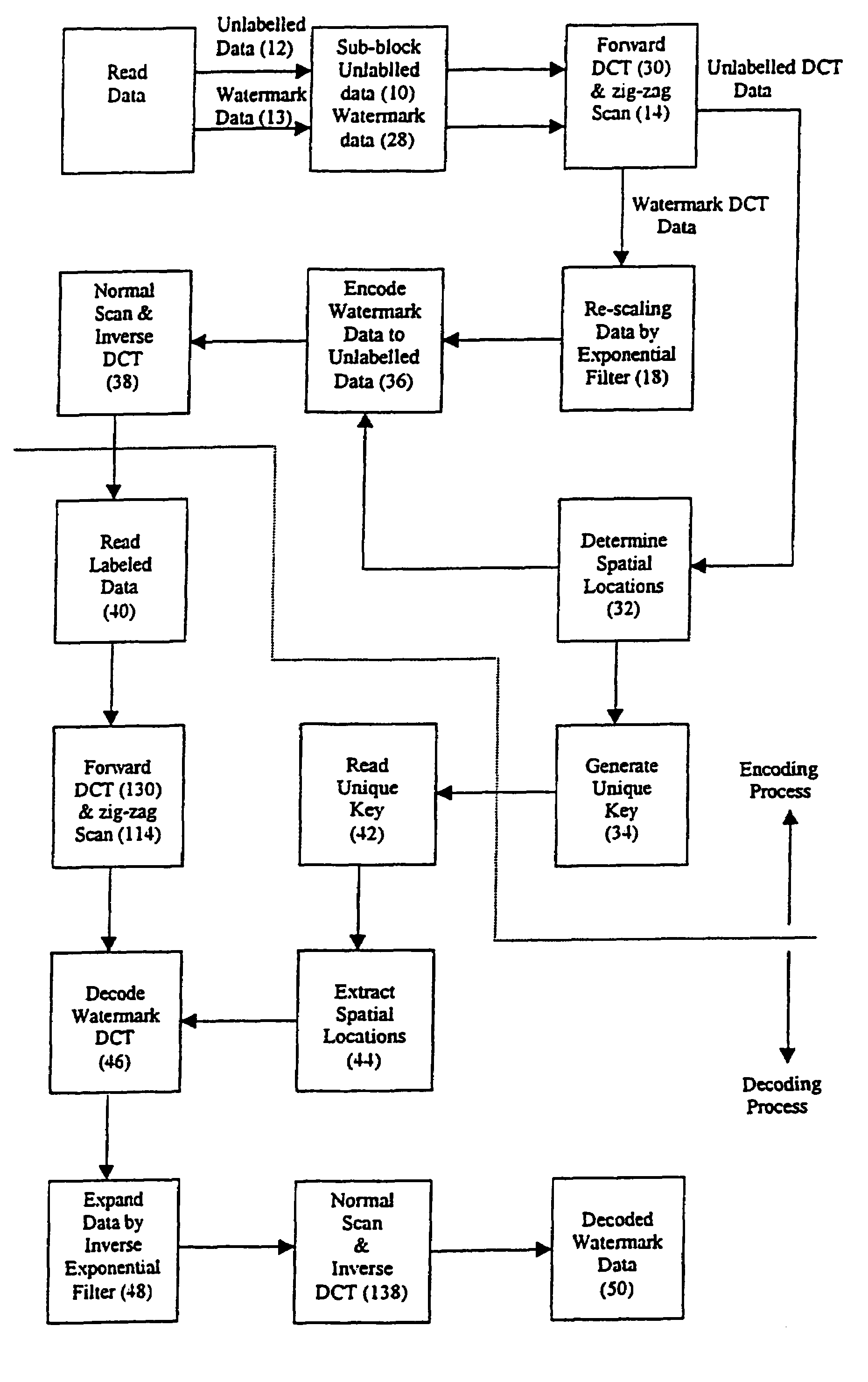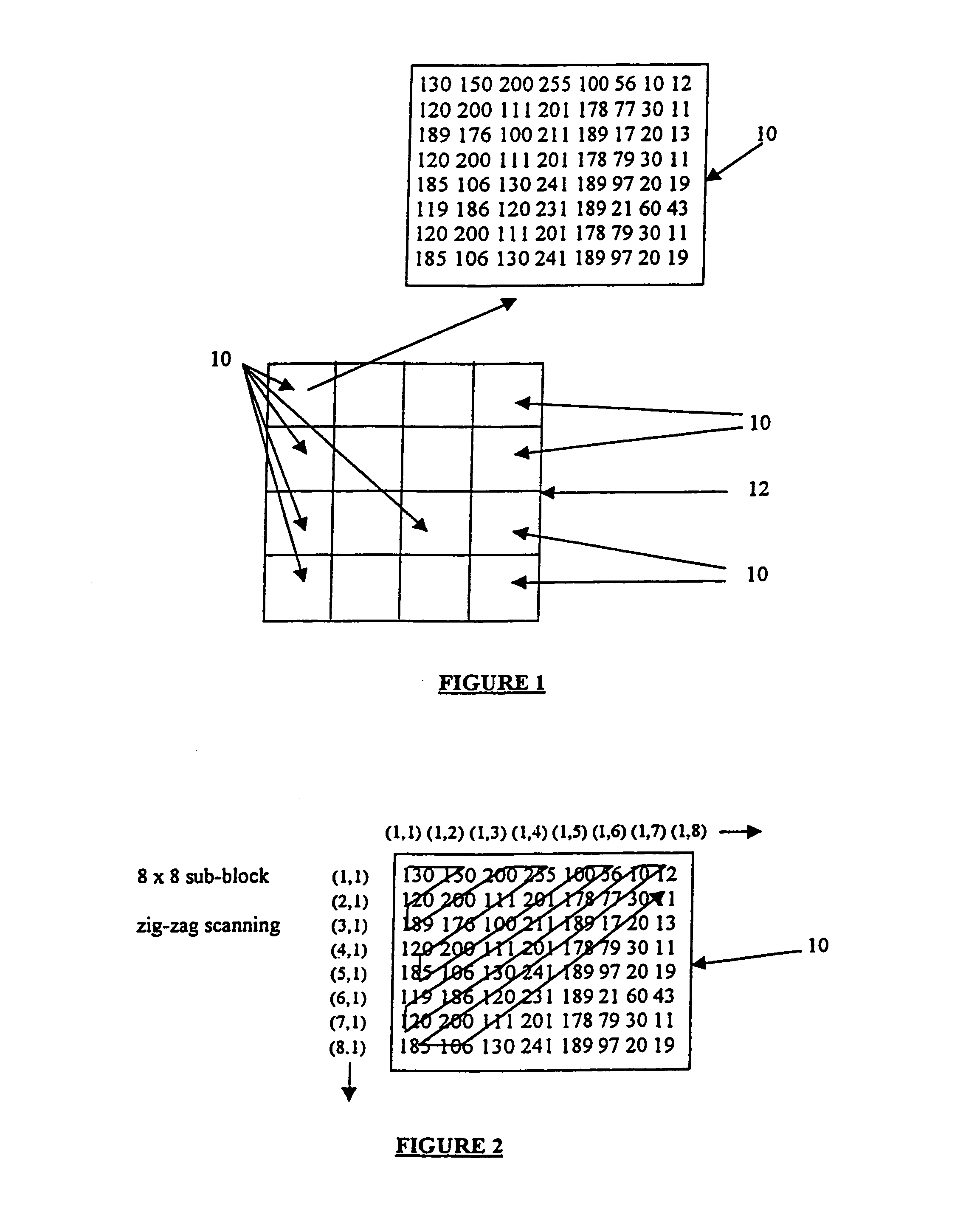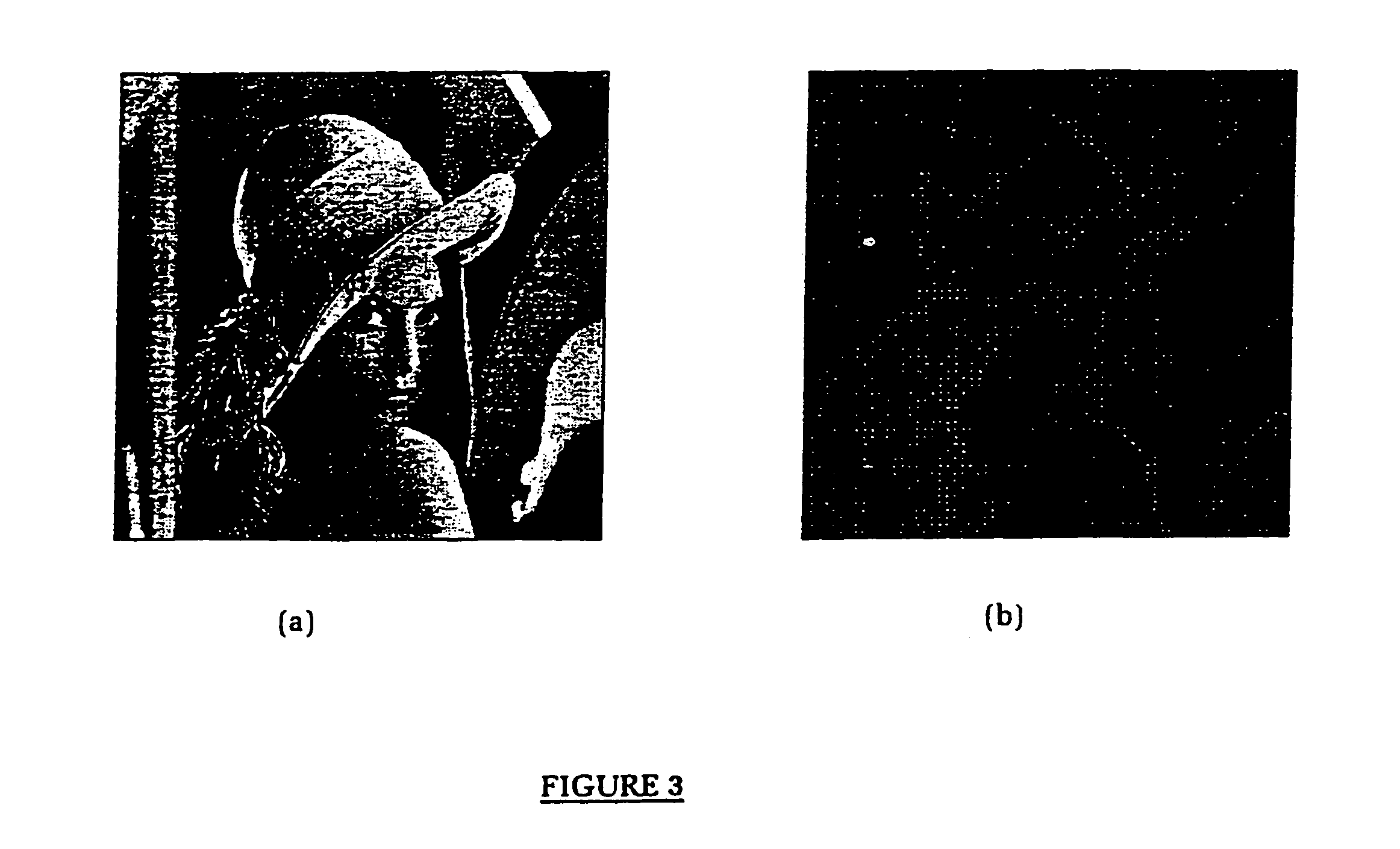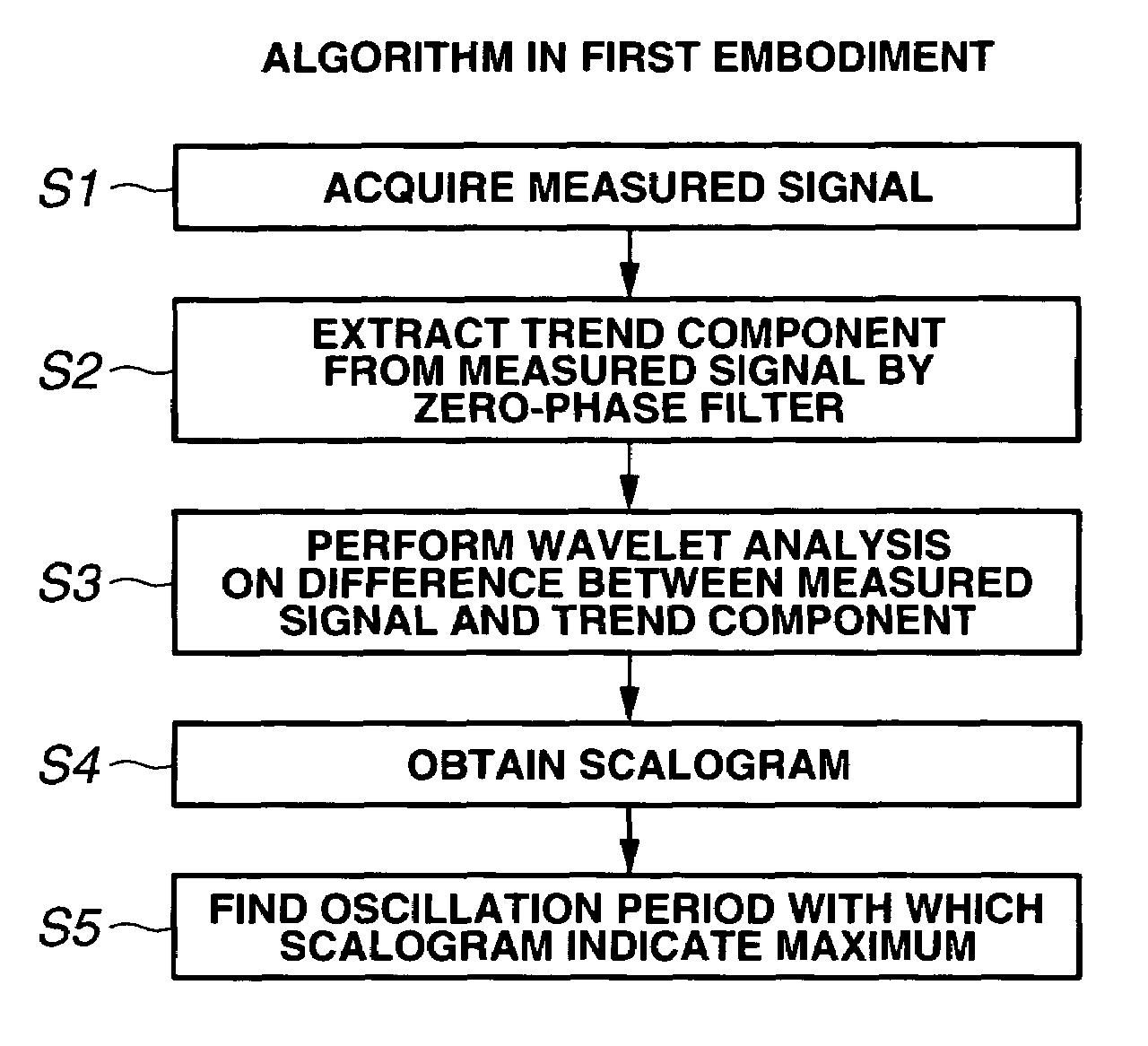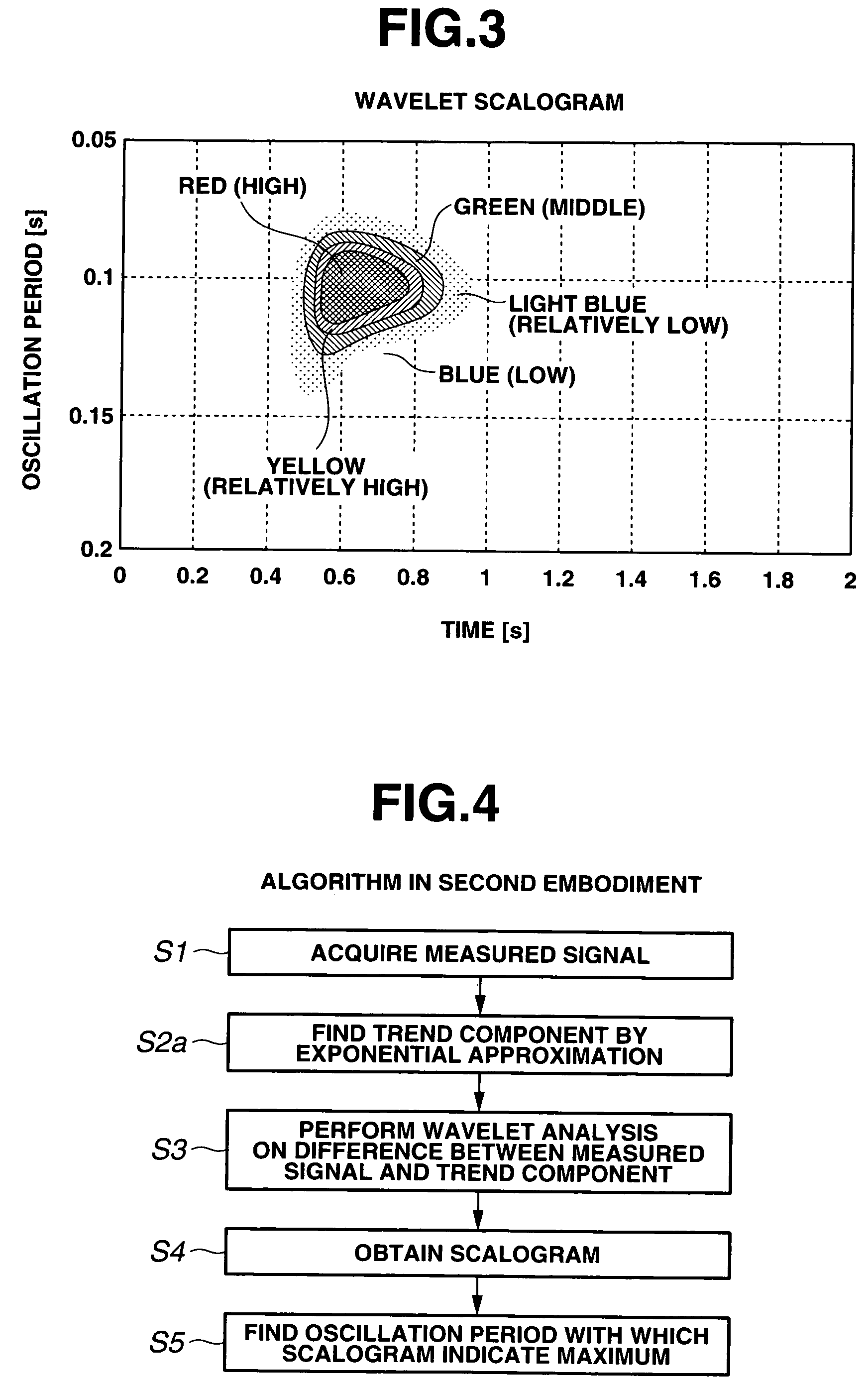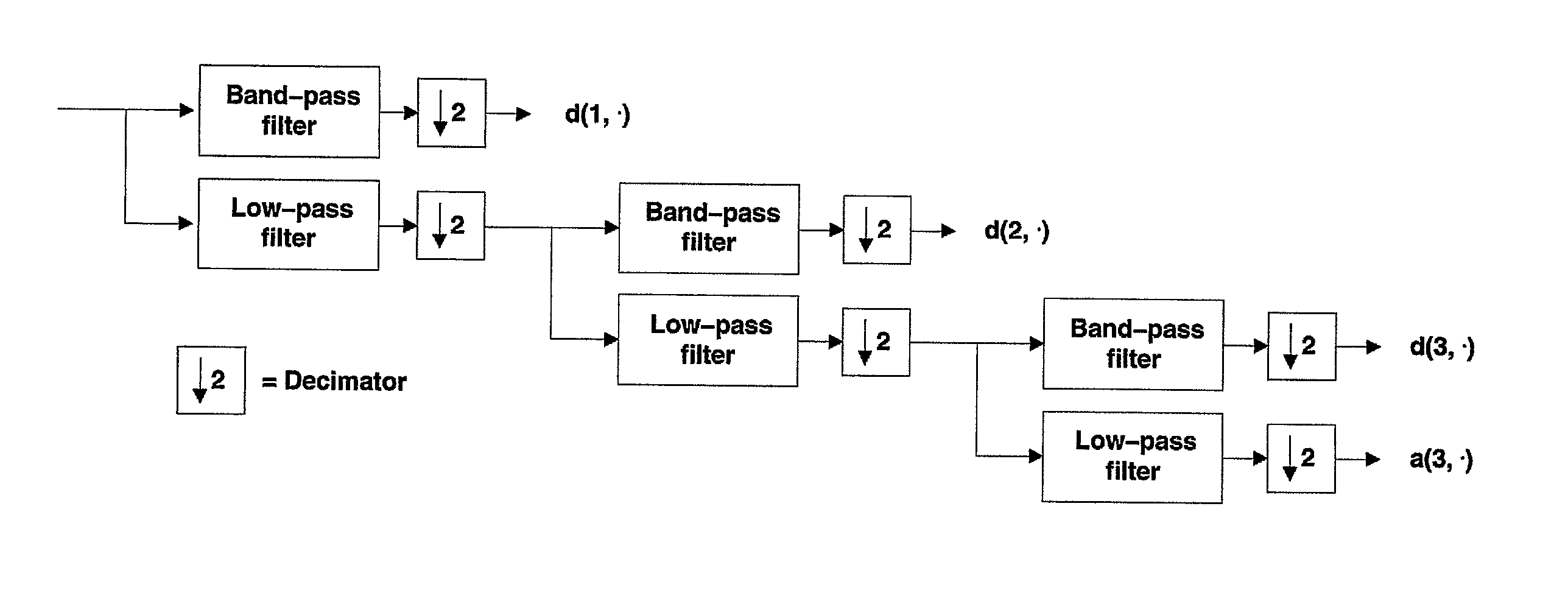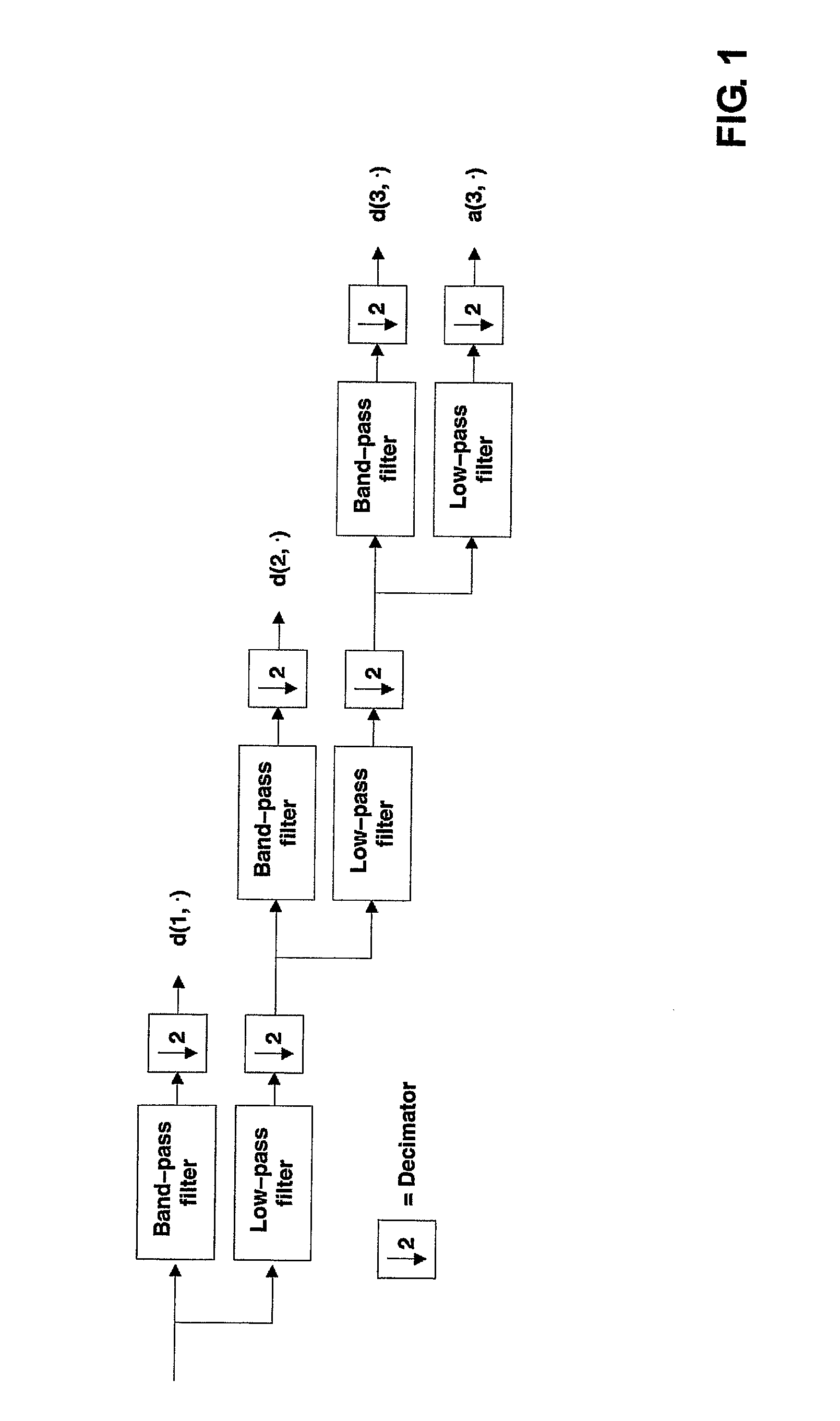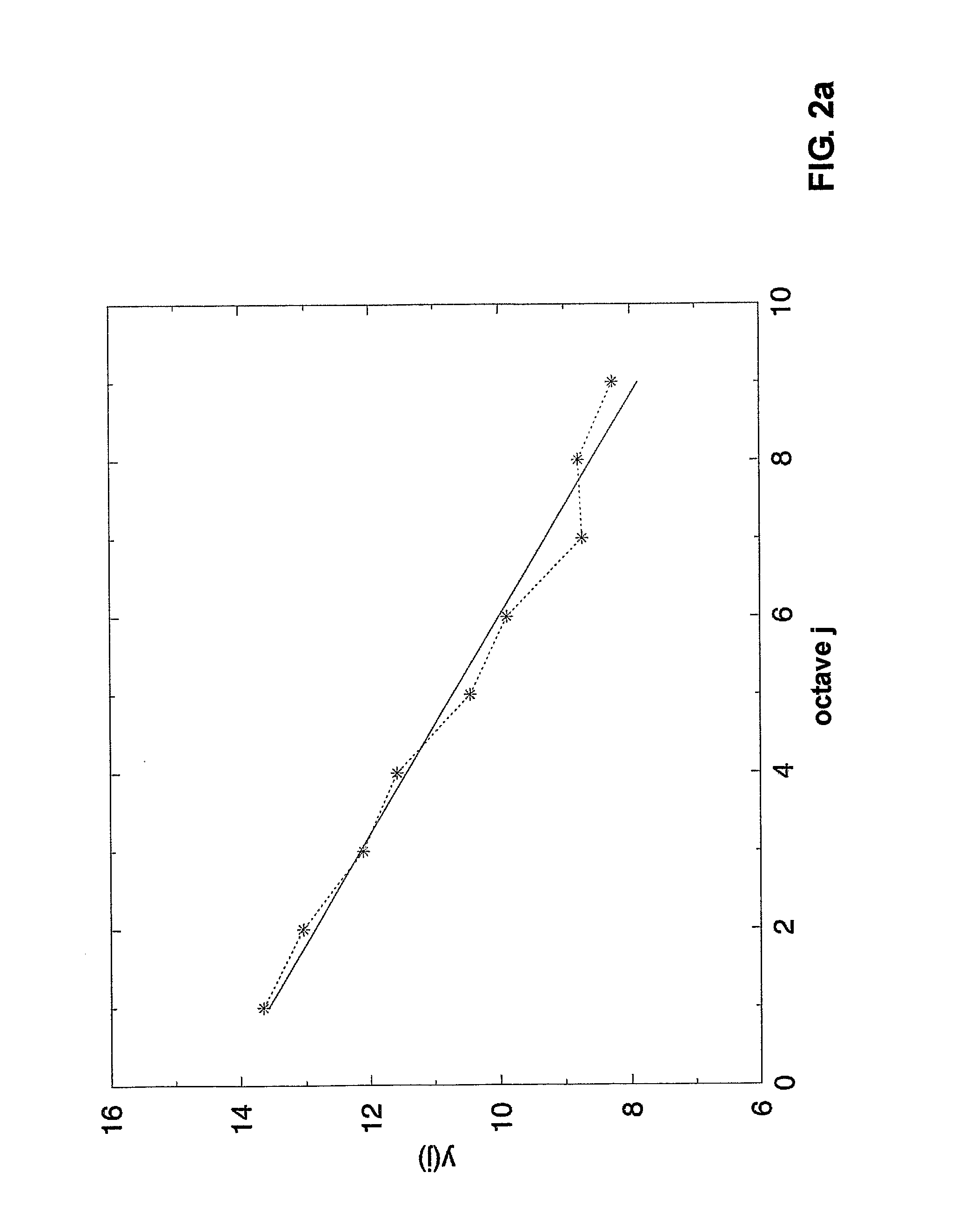Patents
Literature
Hiro is an intelligent assistant for R&D personnel, combined with Patent DNA, to facilitate innovative research.
5539 results about "Wavelet" patented technology
Efficacy Topic
Property
Owner
Technical Advancement
Application Domain
Technology Topic
Technology Field Word
Patent Country/Region
Patent Type
Patent Status
Application Year
Inventor
A wavelet is a wave-like oscillation with an amplitude that begins at zero, increases, and then decreases back to zero. It can typically be visualized as a "brief oscillation" like one recorded by a seismograph or heart monitor. Generally, wavelets are intentionally crafted to have specific properties that make them useful for signal processing. Using a "reverse, shift, multiply and integrate" technique called convolution, wavelets can be combined with known portions of a damaged signal to extract information from the unknown portions.
Image capture and identification system and process
InactiveUS7016532B2Fast and reliable detection and recognitionReduce sizeDigital data information retrievalImage analysisDigital imageImage capture
An identification method and process for objects from digitally captured images thereof that uses image characteristics to identify an object from a plurality of objects in a database. The image is broken down into parameters such as a Shape Comparison, Grayscale Comparison, Wavelet Comparison, and Color Cube Comparison with object data in one or more databases to identify the actual object of a digital image.
Owner:NANT HLDG IP LLC
Multicarrier Sub-Layer for Direct Sequence Channel and Multiple-Access Coding
InactiveUS20070211786A1Low costImprove system performanceSecret communicationMultiplex code generationUltra-widebandTransmission protocol
Carrier Interferometry (CI) provides wideband transmission protocols with frequency-band selectivity to improve interference rejection, reduce multipath fading, and enable operation across non-continuous frequency bands. Direct-sequence protocols, such as DS-CDMA, are provided with CI to greatly improve performance and reduce transceiver complexity. CI introduces families of orthogonal polyphase codes that can be used for channel coding, spreading, and / or multiple access. Unlike conventional DS-CDMA, CI coding is not necessary for energy spreading because a set of CI carriers has an inherently wide aggregate bandwidth. Instead, CI codes are used for channelization, energy smoothing in the frequency domain, and interference suppression. CI-based ultra-wideband protocols are implemented via frequency-domain processing to reduce synchronization problems, transceiver complexity, and poor multipath performance of conventional ultra-wideband systems. CI allows wideband protocols to be implemented with space-frequency processing and other array-processing techniques to provide either or both diversity combining and sub-space processing. CI also enables spatial processing without antenna arrays. Even the bandwidth efficiency of multicarrier protocols is greatly enhanced with CI. CI-based wavelets avoid time and frequency resolution trade-offs associated with conventional wavelet processing. CI-based Fourier transforms eliminate all multiplications, which greatly simplifies multi-frequency processing. The quantum-wave principles of CI improve all types of baseband and radio processing.
Owner:GENGHISCOMM HLDG
Multi-domain motion estimation and plethysmographic recognition using fuzzy neural-nets
ActiveUS6931269B2Enhanced signalImprove filtering effectSurgeryCatheterPattern recognitionHidden layer
Pulse oximetry is improved through classification of plethysmographic signals by processing the plethysmographic signals using a neural network that receives input coefficients from multiple signal domains including, for example, spectral, bispectral, cepstral and Wavelet filtered signal domains. In one embodiment, a plethysmographic signal obtained from a patient is transformed (240) from a first domain to a plurality of different signal domains (242, 243, 244, 245) to obtain a corresponding plurality of transformed plethysmographic signals. A plurality of sets of coefficients derived from the transformed plethysmographic signals are selected and directed to an input layer (251) of a neural network (250). The plethysmographic signal is classified by an output layer (253) of the neural network (250) that is connected to the input layer (251) by one or more hidden layers (252).
Owner:DATEX OHMEDA
Watermarking scheme for image authentication
InactiveUS6285775B1Effective distributionQuick checkCharacter and pattern recognitionImage data processing detailsWatermark methodJPEG
A digital watermarking process whereby an invisible watermark inserted into a host image is utilized to determine whether or not the image has been altered and, if so, where in the image such alteration occurred. The watermarking method includes the steps of providing a look-up table containing a plurality of coefficients and corresponding values; transforming the image into a plurality of blocks, wherein each block contains coefficients matching coefficients in the look-up table; and embedding the watermark in the image by performing the following substeps for at least some of the blocks: First, a coefficient is selected for insertion of a marking value representative of a corresponding portion of the watermark. Next, the value of the selected coefficient to used to identify a corresponding value in the look-up table. Finally, the identified coefficient is left unchanged if the corresponding value is the same as the marking value, and is changed if the corresponding value is different from the marking value. After the insertion of the watermark, the image may be stored in a lossy-compression form, thus permitting efficient storage and distribution. Moreover, the method may be used to produce two output signals for authentication: (1) a meaningful pattern to facilitate a quick visual check, and (2) an additional signal to detect unauthorized alteration. The method can be applied to an image compressed using JPEG or other techniques, such as Wavelet compression, and the marked image can be kept in the compressed format. Any alteration made on the marked image can be localized, making the method suitable for use in a "trustworthy" digital camera or camcorder.
Owner:TRUSTEES OF THE UNIV OF PRINCETON THE
Miniaturized Inertial Measurement Unit and Associated Methods
InactiveUS20070032951A1Reduce noiseThe result is accurateNavigation by speed/acceleration measurementsDigital computer detailsDigital signal processingAccelerometer
A self-contained, integrated micro-cube-sized inertial measurement unit is provided wherein accuracy is achieved through the use of specifically oriented sensors, the orientation serving to substantially cancel noise and other first-order effects, and the use of a noise-reducing algorithm such as wavelet cascade denoising and an error correcting algorithm such as a Kalman filter embedded in a digital signal processor device. In a particular embodiment, a pair of three sets of angle rate sensors are orientable triaxially in opposite directions, wherein each set is mounted on a different sector of a base orientable normal to the other two and comprising N gyroscopes oriented at 360 / N-degree increments, where N≧2. At least one accelerometer is included to provide triaxial data. Signals are output from the angle rate sensors and accelerometer for calculating a change in attitude, position, angular rate, acceleration, and / or velocity of the unit.
Owner:JAYMART SENSORS
System and method for data communication over power lines
InactiveUS7986711B2Improve data communication rateReduce distractionsDc network circuit arrangementsTransmission/receiving by adding signal to waveLow voltageTransformer
A system and method for broadband communications over power lines has a low-voltage transformer for the house connection unit and / or the electricity distribution inside the house. The system method allow for several parallel asynchronous data communications in different sub-channels with individual transmit power in each sub-channel. Sub-channel separation uses pass-band filters with high stop-band attenuation. High data rate in each sub-channel is achieved through the use of discrete wavelet multi-tone modulation. Coarse synchronization in each sub-channel and the optimization of the coefficients of the time-domain equalizer are carried out using a training sequence.
Owner:ACN ADVANCED COMM NETWORK
Techniques using heat flow management, stimulation, and signal analysis to treat medical disorders
InactiveUS6882881B1Maintain charge balanceAvoid damageElectrotherapySurgeryMedical disorderElectrical stimulations
A device and a method of use for treating a medical disorder by surgically implanting into a patient at least one sensor element capable of detecting and conveying cell signals: attaching a management unit such that a micro controller of the management unit is connected to at least one sensor element; and connecting the management unit via a lead bundle to at least one treatment device. The treatment device may be an electrical stimulation device, a magnetic stimulation device, a heat transfer device, or a medication delivery device. Responsive to signals from the one or more sensor elements, mathematical algorithms of the management unit use wavelet crosscorrelation analysis to prompt delivery of at least one treatment modality, such heat transfer, current pulses, magnetic stimulation or medication. The medical disorder may arise from the brain, central nervous system or organs and tissues outside of the central nervous system.
Owner:THE JOHN HOPKINS UNIV SCHOOL OF MEDICINE
Method for diagnosing heart disease, predicting sudden death, and analyzing treatment response using multifractal analysis
InactiveUS6993377B2Reducing minimum sizeIncreased analytic detailMedical simulationMedical report generationTest batterySudden death
A method of analyzing electrocardiogram (EKG) data for use in the diagnosis of heart disease, prognosis of cardiac conditions, and the monitoring of heart disease therapies is disclosed. The method utilizes a wavelet-based multifractal analysis with one or more of (1) a discrete wavelet smoothing step to remove the effects of abnormal beats; (2) “Levy flight” analysis to detect the frequency of abnormal beats known to adversely affect the multifractal (MF) analysis; and (3) MF alpha analysis, a multifractal extension of monofractal short term (ST) alpha analysis. The invention further comprises an EKG test battery comprising Levy flight anomalous beat / beat cluster screening, followed by (ST) MF alpha analysis and MF Holder analysis (when validated by the Levy flight analysis). The wavelet smoothing step can also be used to classify human EKGs by observing the effect of sequential smoothing on the MF Holder coefficient. Alternative choices to the wavelet smoothing approach to removal of abnormal beat effects include probability distribution function analysis to determine the MF Holder coefficient directly, abnormal beat ridge skeleton removal to remove the offending beats based on a direct multifractal spectrum calculation, and the calculation of various types of entropy coefficients for the EKG time series.
Owner:THE BOARD OF TRUSTEES OF THE UNIV OF ARKANSAS
Configuration system and method for abnormal situation prevention in a process plant
A system for gathering data associated with a process plant, in which parameters are generated by a plurality of signal processing data collection blocks, automatically determines parameters to be monitored. The signal processing data collection blocks may generate data such as statistical data, frequency analysis data, auto regression data, wavelets data, etc. Then, the system monitors the determined parameters.
Owner:FISHER-ROSEMOUNT SYST INC
System and method for pre-processing waveforms
A technique is provided for processing a physiological signal. The technique includes performing one or more multi-resolution decompositions on a physiological signal and one or more morphological operations on some or all of the respective decomposition components. In one embodiment, the technique is implemented as iteratively wavelet transformations where morphological operations, such as erosions and dilations, are applied to modify some or all of the respective wavelet coefficients. The modified wavelet coefficients may then be reconstructed to generate a clean version of the physiological signal from which some or all of the noise and / or artifacts have been removed.
Owner:TYCO HEALTHCARE GRP LP
Active learning system for object fingerprinting
Described is an active learning system for fingerprinting an object identified in an image frame. The active learning system comprises a flow-based object segmentation module for segmenting a potential object candidate from a video sequence, a fixed-basis function decomposition module using Haar wavelets to extract a relevant feature set from the potential object candidate, a static classifier for initial classification of the potential object candidate, an incremental learning module for predicting a general class of the potential object candidate, an oriented localized filter module to extract features from the potential object candidate, and a learning-feature graph-fingerprinting module configured to receive the features and build a fingerprint of the object for tracking the object.
Owner:HRL LAB
Three-dimensional wavelet based video fingerprinting
ActiveUS8094872B1Quickly and efficiently identifyImprove the display effectUser identity/authority verificationCharacter and pattern recognitionComputer graphics (images)Stop time
A method and system generates and compares fingerprints for videos in a video library. The video fingerprints provide a compact representation of the spatial and sequential characteristics of the video that can be used to quickly and efficiently identify video content. Because the fingerprints are based on spatial and sequential characteristics rather than exact bit sequences, visual content of videos can be effectively compared even when there are small differences between the videos in compression factors, source resolutions, start and stop times, frame rates, and so on. Comparison of video fingerprints can be used, for example, to search for and remove copyright protected videos from a video library. Further, duplicate videos can be detected and discarded in order to preserve storage space.
Owner:GOOGLE LLC
Method apparatus and system for compressing data that wavelet decomposes by color plane and then divides by magnitude range non-dc terms between a scalar quantizer and a vector quantizer
InactiveUS6865291B1Color television with pulse code modulationColor television with bandwidth reductionData compressionImaging quality
An apparatus and method for image data compression performs a modified zero-tree coding on a range of image bit plane values from the largest to a defined smaller value, and a vector quantizer codes the remaining values and lossless coding is performed on the results of the two coding steps. The defined smaller value can be adjusted iteratively to meet a preselected compressed image size criterion or to meet a predefined level of image quality, as determined by any suitable metric. If the image to be compressed is in RGB color space, the apparatus converts the RGB image to a less redundant color space before commencing further processing.
Owner:WDE
Data presentation system for abnormal situation prevention in a process plant
InactiveUS20050197805A1Safety arrangmentsFrequency-division multiplex detailsData systemComputer science
A system for visually presenting data receives signal processing data generated signal processing data collection blocks corresponding to devices associated with a process plant. The signal processing data collection blocks may generate data such as statistical data, frequency analysis data, auto regression data, wavelets data, etc. The system displays an image representative of the devices and representative of a context of the devices within the process plant. Additionally, data based on signal processing data corresponding to one or more devices is displayed. For example, the signal processing data for the device could be displayed. As another example, data may be generated based on the signal processing data and this generated data may be displayed.
Owner:FISHER-ROSEMOUNT SYST INC
Apparatus and method for detecting heartbeat using PPG
The present invention relates to an apparatus and method capable of detecting a heartbeat using a photoplethysmography (PPG) even under a motion of a user. A primary object of the present invention is to allow the heartbeat of the user to be effectively detected from a PPG signal even under the motion. The object of the present invention is accomplished by the following process of acquiring the PPG signal from the user through a PPG sensor unit, detecting candidate heartbeat sequences from the PPG signal after calculating an expected mean interbeat interval through a signal processing technique based on the wavelet transformation and an autocorrelation function, and extracting an optimal heartbeat sequence or mean heart rate from the candidate heartbeat sequences.
Owner:SAMSUNG ELECTRONICS CO LTD
Image encoding method and apparatus
InactiveUS6937773B1Without placing a burden upon the userColor television with pulse code modulationColor television with bandwidth reductionMotion vectorTransformation unit
An image signal is input from an image input unit and is divided into different spatial frequency bands by applying a discrete wavelet transform thereto using a discrete wavelet transformation unit. On the basis of values of spatial frequency components, a region-of-interest extracts a region of interest by obtaining a distribution of motion vectors in the input image. A quantization unit applies quantization processing to the extracted region of interest and different quantization processing to other regions, and an encoder encodes the quantized image signal. Alternatively, motion of an image contained in the input image may be detected and the region of interest may be obtained based upon motion of this image.
Owner:CANON KK
Method and apparatus for interferometry
InactiveUS20110235045A1High measurementImprove scanning accuracyRadiation pyrometryInterferometric spectrometryHelical computed tomographyEngineering
A method and an arrangement are provided for scalable confocal interferometry for distance measurement, for 3-D detection of an object, for OC tomography with an object imaging interferometer and at least one light source. The interferometer has an optical path difference not equal to zero at each optically detected object element. Thus, the maxima of a sinusoidal frequency wavelet, associated with each detected object element, each have a frequency difference Δf_Objekt. At least one spectrally integrally detecting, rastered detector is arranged to record the object. The light source preferably has a frequency comb, and the frequency comb differences Δf_Quelle are changed in a predefined manner over time in a scan during measuring. In the process, the frequency differences Δf_Quelle are made equal to the frequency difference Δf_Objekt or equal to an integer multiple of the frequency differences Δf_Objekt at least once for each object element.
Owner:UNIV STUTTGART
High-resolution, three-dimensional whole body ultrasound imaging system
InactiveUS6135960AQuality improvementHigh resolutionUltrasonic/sonic/infrasonic diagnosticsInfrasonic diagnosticsSonificationWhole body
This invention incorporates the techniques of geophysical technology into medical imaging. Ultrasound waves are generated from multiple, simultaneous sources tuned for maximum penetration, resolution, and image quality. Digitally recorded reflections from throughout the body are combined into a file available for automated interpretation and wavelet attribute analyses. Unique points within the object are imaged from multiple positions for signal-to-noise enhancement and wavelet velocity determinations. This system describes gaining critical efficiencies by reducing equation variables to known quantities. Sources and receivers are locked in invariant, known positions. Statistically valid measurements of densities and wavelet velocities are combined with object models and initial parameter assumptions. This makes possible three-dimensional images for viewing manipulation, mathematical analyses, and detailed interpretation, even of the body in motion. The invention imposes a Cartesian coordinate system on the image of the object. This makes reference to any structure within the object repeatable and precise. Finally, the invention teaches how the recording and storing of the received signals from a whole body analysis makes a subsequent search for structures and details within the object possible without reexamining the object.
Owner:HOLMBERG LINDA JEAN
Fast wavelet estimation of weak bio-signals using novel algorithms for generating multiple additional data frames
InactiveUS7054454B2Improve signal qualityQuick estimateElectroencephalographySupply voltage controlData setSignal-to-noise ratio (imaging)
A method and apparatus for de-noising weak bio-signals having a relatively low signal to noise ratio utilizes an iterative process of wavelet de-noising a data set comprised of a new set of frames of wavelet coefficients partially generated through a cyclic shift algorithm. The method preferably operates on a data set having 2N frames, and the iteration is performed N−1 times. The resultant wavelet coefficients are then linearly averaged and an inverse discrete wavelet transform is performed to arrive at the de-noised original signal. The method is preferably carried out in a digital processor.
Owner:BRAINSCOPE SPV LLC +1
Systems and methods for quantitative analysis of histopathology images using multiclassifier ensemble schemes
Owner:THE BOARD OF TRUSTEES OF THE LELAND STANFORD JUNIOR UNIV +1
Ultra wide bandwidth spread-spectrum communications system
InactiveUS6901112B2Modulated carrier system with waveletsMultiplex communicationMultipath interferenceEngineering
An ultra wide bandwidth, high speed, spread spectrum communications system uses short wavelets of electromagnetic energy to transmit information through objects such as walls or earth. The communication system uses baseband codes formed from time shifted and inverted wavelets to encode data on a RF signal. Typical wavelet pulse durations are on the order of 100 to 1000 picoseconds with a bandwidth of approximately 8 GHz to 1 GHz, respectively. The combination of short duration wavelets and encoding techniques are used to spread the signal energy over an ultra wide frequency band such that the energy is not concentrated in any particular narrow band (e.g. VHF: 30-300 MHz or UHF: 300-1000 MHz) and is not detected by conventional narrow band receivers so it does not interfere with those communication systems. The use of pulse codes composed of time shifted and inverted wavelets gives the system according to the present invention has a spatial resolution on the order of 1 foot which is sufficient to minimize the negative effects of multipath interference and permit time domain rake processing.
Owner:NORTH STAR INNOVATIONS
Signal processing apparatus and method, program, and storage medium
A signal storage processor (101) stores signals input from a signal input unit (100) in a buffer (102) for respective lines. A vertical discrete wavelet transformer (103) reads out an index value L from the signal storage processor (101), and obtains a reference address B from the value L. If L=2, B=2. If L=4, B=0. Furthermore, the vertical discrete wavelet transformer (103) reads out the i-th column of sets of data, which are stored in the buffer (102) and are continuous in the vertical direction (i.e., data read out from four addresses (addresses in the buffer (102)) i×4+B, i×4+mod((B+1),4), i×4+mod((B+2),4), and i×4+mod((B+3),4)), and computes the one-dimensional discrete wavelet transforms of the readout data.
Owner:CANON KK
Abnormal situation prevention in a process plant
A system detects abnormal conditions associated with a process plant. The system receives signal processing data generated by signal processing data collection blocks implemented by a plurality of devices. The signal processing data collection blocks may generate data such as statistical data, frequency analysis data, auto regression data, wavelets data, etc. The system includes an analysis engine configured to detect at least one abnormal condition associated with the process plant. The signal processing data is provided to the analysis engine, and the analysis engine determines if an action should be taken.
Owner:FISHER-ROSEMOUNT SYST INC
Method and apparatus for analyzing performance of a hydraulic pump
A method and apparatus for analyzing a hydraulic pump in real-time. A pressure signal is provided representing a discharge pressure of the hydraulic pump, and the pressure signal is decomposed into a plurality of levels. Each of the plurality of levels has at least one frequency band. A feature pressure signal is located in at least one of the frequency bands and compared to a reference wavelet to determine if a fault exists in the hydraulic pump and / or a type of defect in the hydraulic pump.
Owner:THE BOARD OF TRUSTEES OF THE UNIV OF ILLINOIS
Progressive image transmission using discrete wavelet transforms
InactiveUS6847468B2Convenient previewImprove the level ofDigitally marking record carriersGeometric image transformationDecompositionImage transfer
Disclosed herein is a method of storing and of progressively transferring a still image so that it can be conveniently previewed during the transfer and so that a user can terminate the transfer at an early stage if the image turns out to be undesirable. The methods of the invention include transforming the image into a plurality of decomposition levels using a discrete wavelet transform. Each decomposition level comprises a plurality of subimages which allow reconstruction of an image representation of the still image. The decomposition levels are transmitted beginning with a base decomposition level providing a low level of image resolution and then proceeding with decomposition levels providing increasingly higher levels of image resolution. Within each decomposition level, rows of the various subimages are arranged or interlaced together in contiguous blocks, so that all data for a single row, at a single decomposition level, is transmitted together. At the receiving end of the transfer, the row blocks are reconstructed and displayed as they are received. The invention enables the initial display of a low resolution image which is gradually updated and sharpened, on a row-by-row basis, until a desired high resolution is achieved. The user may terminate the transfer at any point.
Owner:MICROSOFT TECH LICENSING LLC
An automated method for human face modeling and relighting with application to face recognition
A novel method and system for 3d-aided-2D face recognition under large pose and illumination variations is disclosed. The method and system includes enrolling a face of a subject into a gallery database using raw 3D data. The method also includes verifying and / or identifying a target face form data produced by a 2D imagining or scanning device. A statistically derived annotated face model is fitted using a subdivision-based deformable model framework to the raw 3D data. The annotated face model is capable of being smoothly deformed into any face so it acts as a universal facial template. During authentication or identification, only a single 2D image is required. The subject specific fitted annotated face model from the gallery is used to lift a texture of a face from a 2D probe image, and a bidirectional relighting algorithm is employed to change the illumination of the gallery texture to match that of the probe. Then, the relit texture is compared to the gallery texture using a view-dependent complex wavelet structural similarity index metric.
Owner:UNIV HOUSTON SYST
Abnormal situation prevention in a process plant
A system detects abnormal conditions associated with a process plant. The system receives signal processing data generated by signal processing data collection blocks implemented by a plurality of devices. The signal processing data collection blocks may generate data such as statistical data, frequency analysis data, auto regression data, wavelets data, etc. The system includes an analysis engine configured to detect at least one abnormal condition associated with the process plant. The signal processing data is provided to the analysis engine, and the analysis engine determines if an action should be taken.
Owner:FISHER-ROSEMOUNT SYST INC
Methods for embedding image, audio and video watermarks in digital data
InactiveUS6983057B1Less coefficientTelevision system detailsRecord information storageDigital dataThe Internet
A method for embedding an entire image, audio or video watermark sequence within another image, audio or video data sequence with minimum loss of data quality is presented. The method exploits the de-correlation property of data coefficients in the orthogonal transform domain, similar to the application in data compression through transform coding. The present invention describes the usage of a Discrete Cosine Transform as the embedding domain. However, other orthogonal transforms such as Fourier, Walsh-Hadamard, Haar, Sine and Wavelet can also be used for this operation. A unique key derived adaptively from spatial locations registering the thresholds of the ac transform energies is used to unlock or de-watermark the embedded image or audio sequence. Moreover, an exponential filter has been developed to compress and expand the watermark coefficients prior to the embedding and retrieval process. The method can be used in resolving multimedia copyright protection issues arising on the Internet and in the music industry, such as the inclusion of a company's logo or an artist's recorded voice. The method can also be incorporated as a built-in feature for digital recording devices, such as still and video cameras, as well as more recent devices such as VCD and DVD players. Moreover, the method can be applied to the commercial and service sectors, where security in transmission and reception of private information in terms of speech or image is of the utmost importance.
Owner:ST ELECTRONICS INFO SECURITY
Method for analyzing signal waveform and analyzing vehicle dynamic characteristic
ActiveUS7523011B2Amplifier modifications to reduce noise influenceResistance/reactance/impedenceVehicle dynamicsWaveform analysis
A signal waveform analysis method includes: determining a trend component of an object signal by applying a zero-phase filter to the object signal; determining an oscillatory component of the object signal by removing the trend component from the object signal; determining a wavelet scalogram by performing a wavelet analysis on the oscillatory component; and determining an oscillation period of the object signal with which the wavelet scalogram indicates a maximum. The signal waveform analysis method is employed to evaluate vehicle dynamic characteristics.
Owner:MEIDENSHA ELECTRIC MFG CO LTD +1
Method for Automatic Speaker Recognition
InactiveUS20070233484A1Improve accuracyReduce the amount of calculationSpeech recognitionFractional Brownian motionTime segment
It is proposed a text-independent automatic speaker recognition (ASkR) system which employs a new speech feature and a new classifier. The statistical feature pH is a vector of Hurst parameters obtained by applying a wavelet-based multi-dimensional estimator (M dim wavelets) to the windowed short-time segments of speech. The proposed classifier for the speaker identification and verification tasks is based on the multi-dimensional fBm (fractional Brownian motion) model, denoted by M dim fBm. For a given sequence of input speech features, the speaker model is obtained from the sequence of vectors of H parameters, means and variances of these features.
Owner:COELHO ROSANGELO FERNANDES
Features
- R&D
- Intellectual Property
- Life Sciences
- Materials
- Tech Scout
Why Patsnap Eureka
- Unparalleled Data Quality
- Higher Quality Content
- 60% Fewer Hallucinations
Social media
Patsnap Eureka Blog
Learn More Browse by: Latest US Patents, China's latest patents, Technical Efficacy Thesaurus, Application Domain, Technology Topic, Popular Technical Reports.
© 2025 PatSnap. All rights reserved.Legal|Privacy policy|Modern Slavery Act Transparency Statement|Sitemap|About US| Contact US: help@patsnap.com
